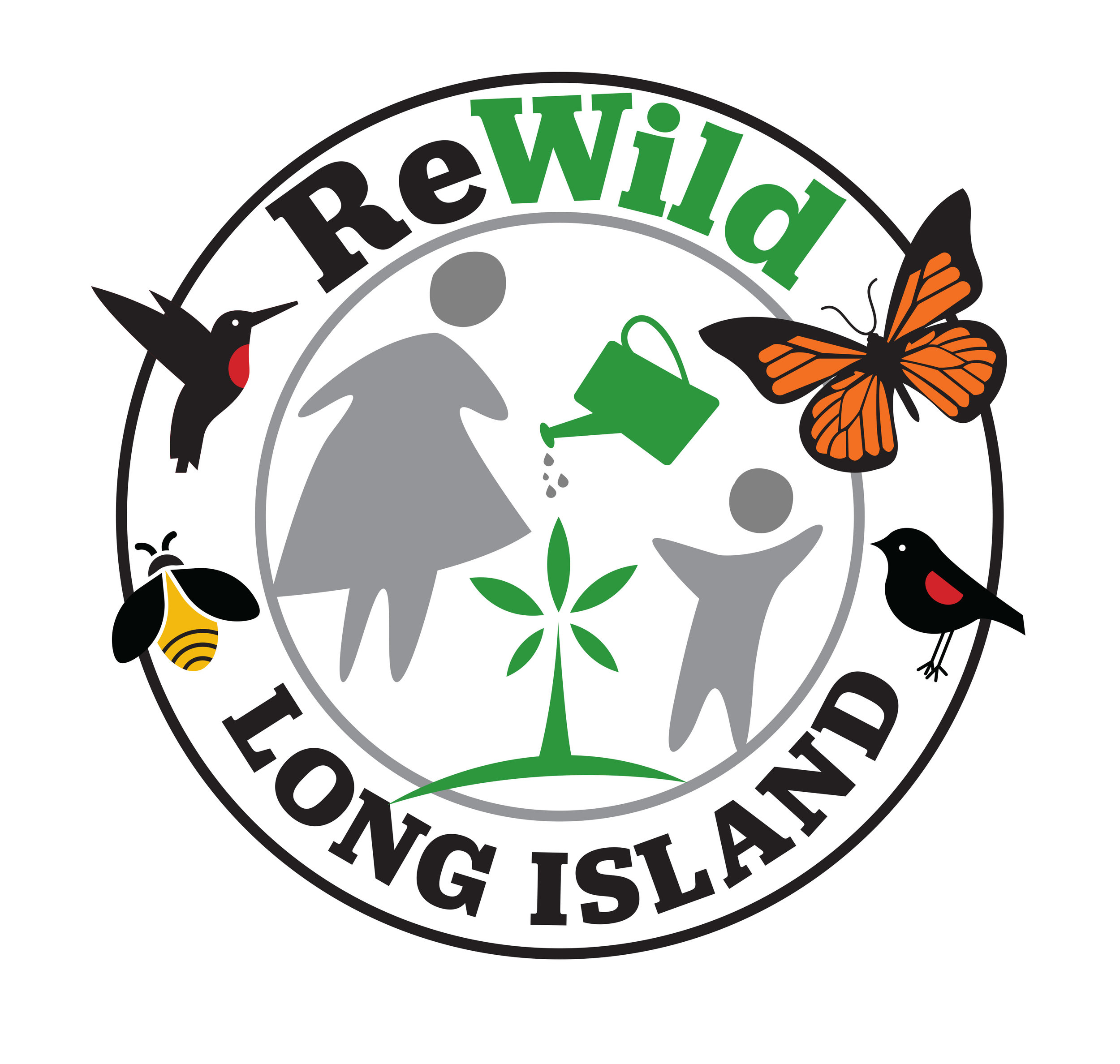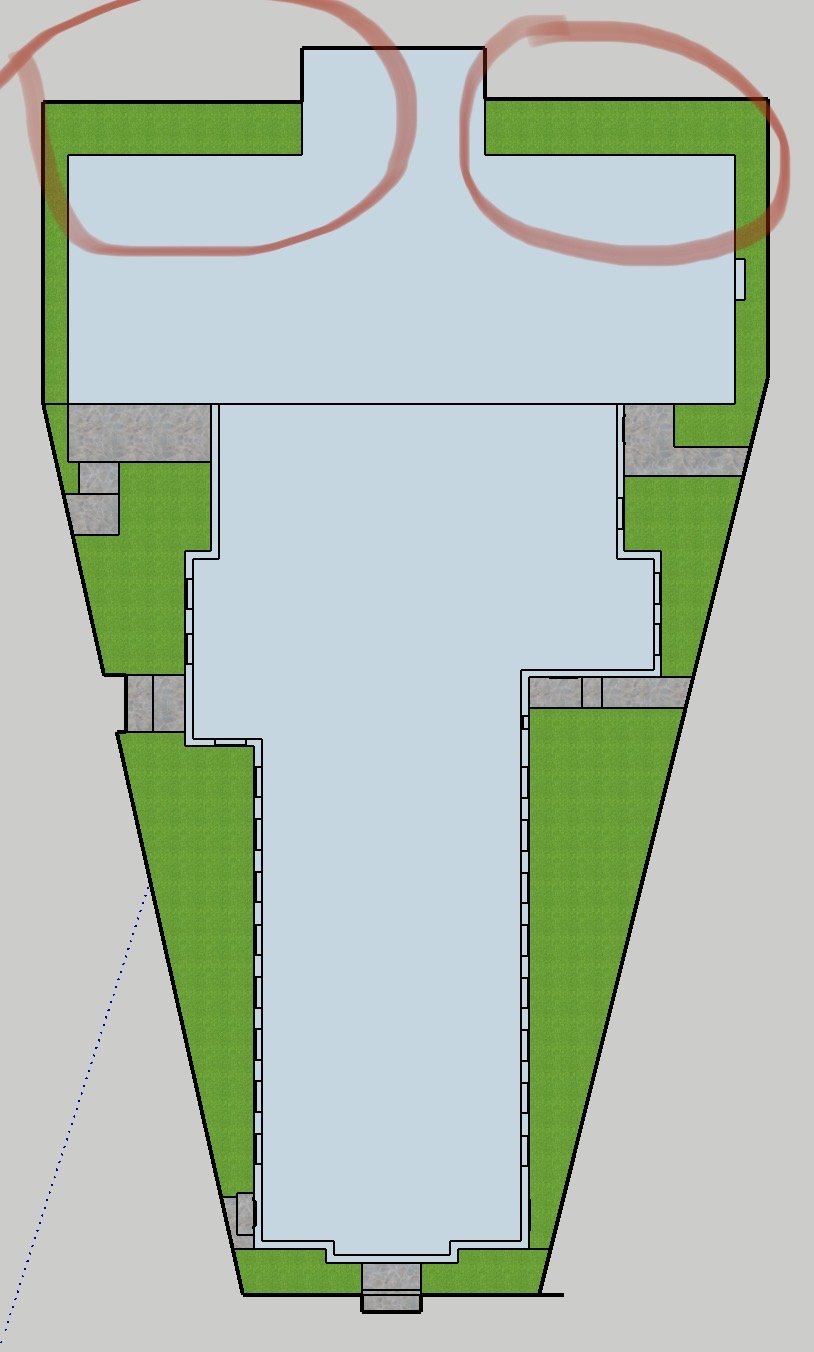ReWild Gardens Program
What is the rewild gardens program?
A rewild garden is a space that promotes biodiversity and climate resilience using native perennials as a core component of the design (over 50% of the space). We use this term to encompass gardens that feature permaculture practices, responsible (non-invasive, pollinator friendly) ornamentals, organic vegetables, composting, soil building and other earth-friendly practices. These gardens are important as “pollinator stopovers” so critical to our native and migratory fauna and insects, as they clean our soil, water and air to help make humans, animals and the Island’s ecosystem healthier.
ReWild believes that winning hearts and minds to the cause of sustainable landscaping is the path to climate resilience, biodiversity, clean air and water, as well as the general well being of Long Island residents. The Rewild Gardens program is at the heart of our mission by inviting communities across Long Island to create spaces where we can learn through experimentation, and educate by example.
The program works by identifying committed groups of volunteers with a feasible garden space and access to water, as well as a commitment to dedicating more than half the garden to plants, shrubs and trees that are native to Long Island.
Depending on the group’s needs, ReWild provides professional garden design/installation consulting, land clearing/preparation, free plants, garden supplies, irrigation installation, signage, on-site maintenance and weeding advice, as well as help in getting more of the community involved with the project. ReWild and the group both commit to a 2-year term of engagement that is needed for perennial plants to establish, and the Garden group to develop expertise in maintenance.
A BRIEF HISTORY OF THE PROGRAM
In November 2022, ReWild Long Island was fortunate to be the recipient of a generous seed grant from the Long Island Community Foundation, targeted at creating sustainable gardens. This was supplemented by another generous matching grant from an anomymous private donor.
Scrambling to put the program together in January 2023, ReWild sent out a call to communities across
The ReWild Gardens Program began in January 2023 as ReWild invited small community groups of motivated people to be supported in creating their own rewild gardens. Schools, Spiritual spaces, Historic Societies, Garden Clubs, … ReWild was delighted and overwhelmed by the community response.
ReWild was fortunate to hire Maggie Muzante as our first employee and ReWild Gardens Program Manager. Maggie is a Farmingdale State College Graduate with a passion for creating gardens, photography and art. Soon we were also joined by Peter Meleady, a long experienced consultant who agreed to be co-chair on the Gardens Program. Thanks to the efforts of Maggie and Peter, assisted by the board of ReWild and a host of volunteers, we were able to successfully design and install 11 different gardens across Long Island.
Program Leaders
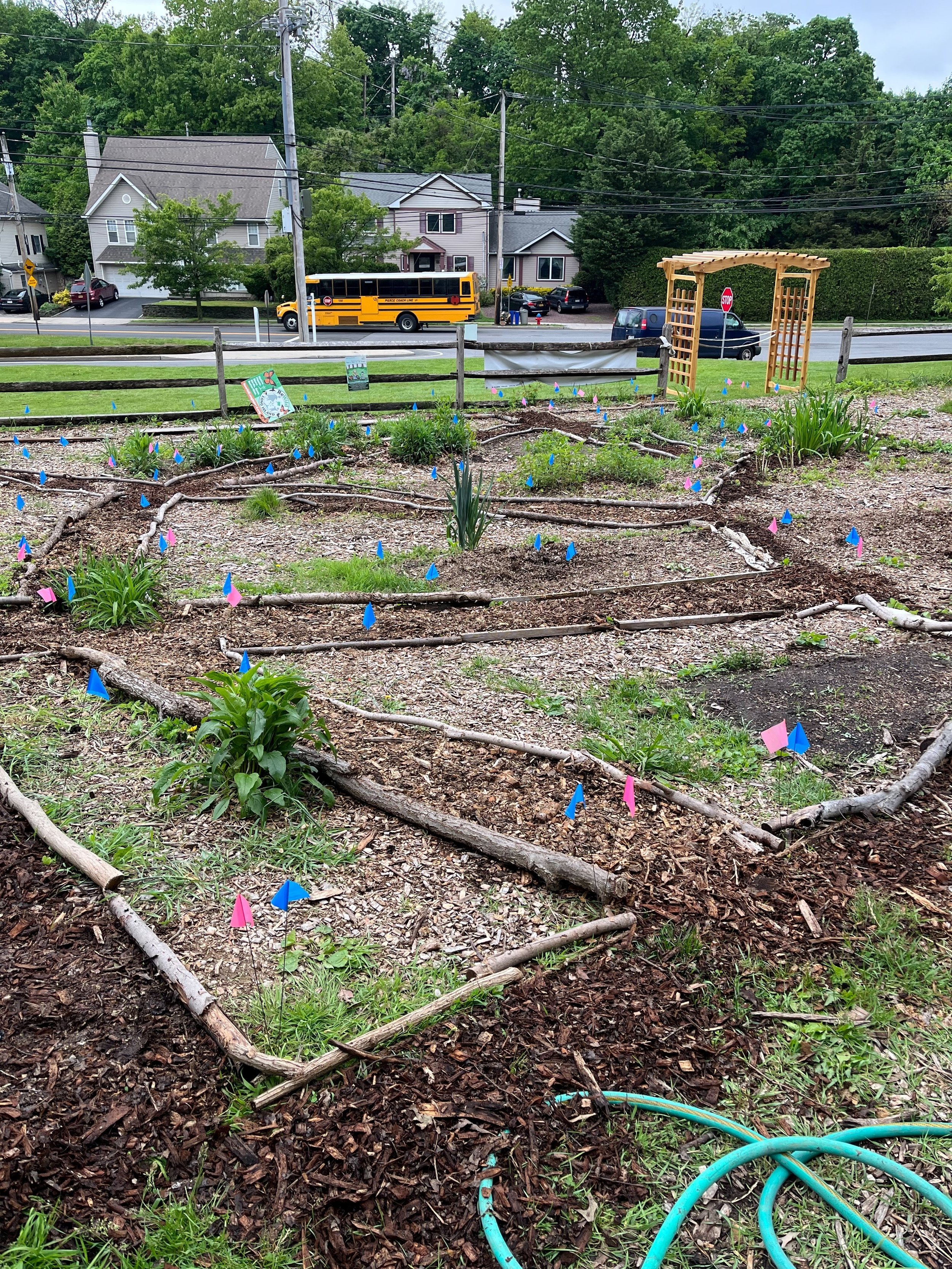
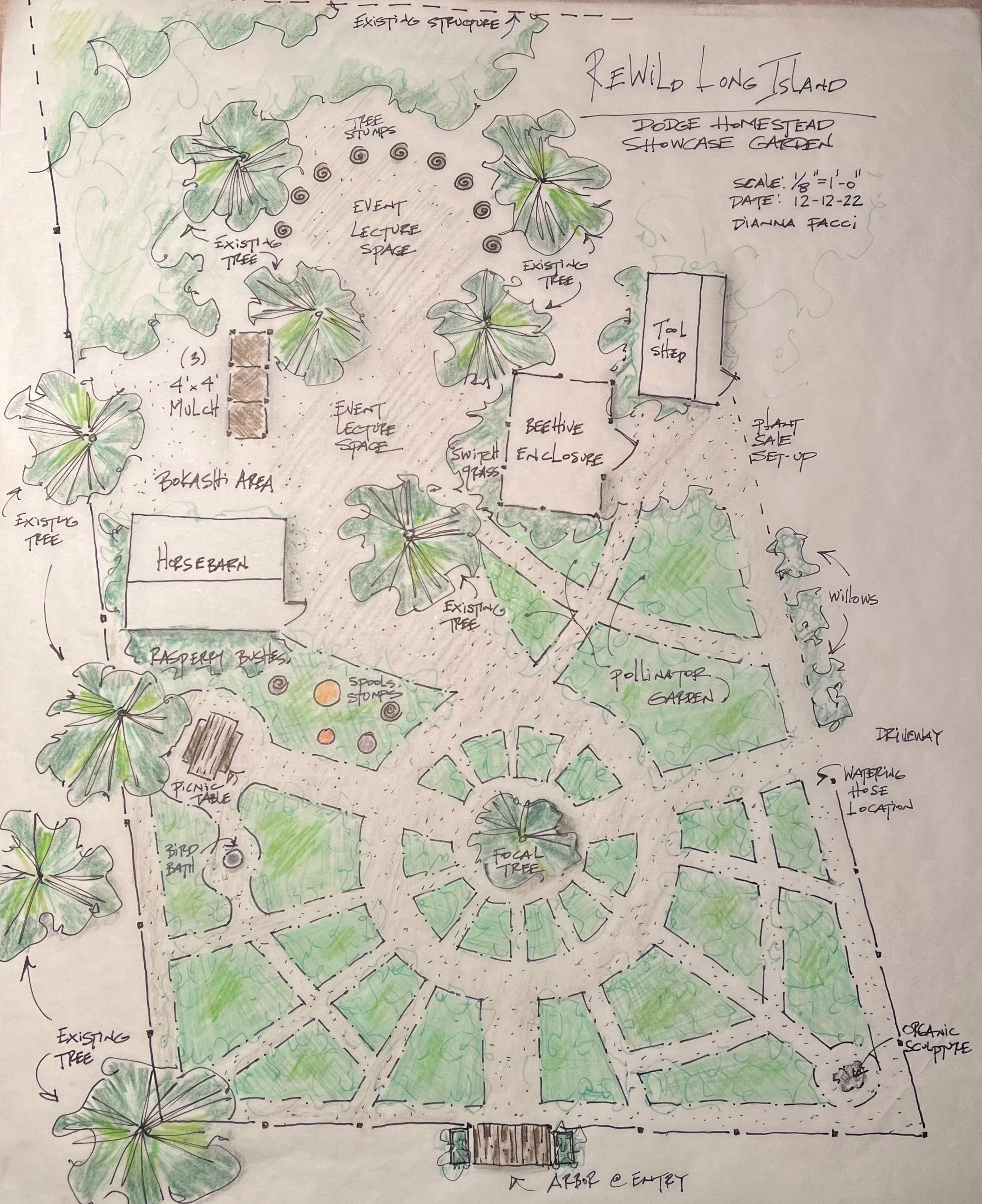

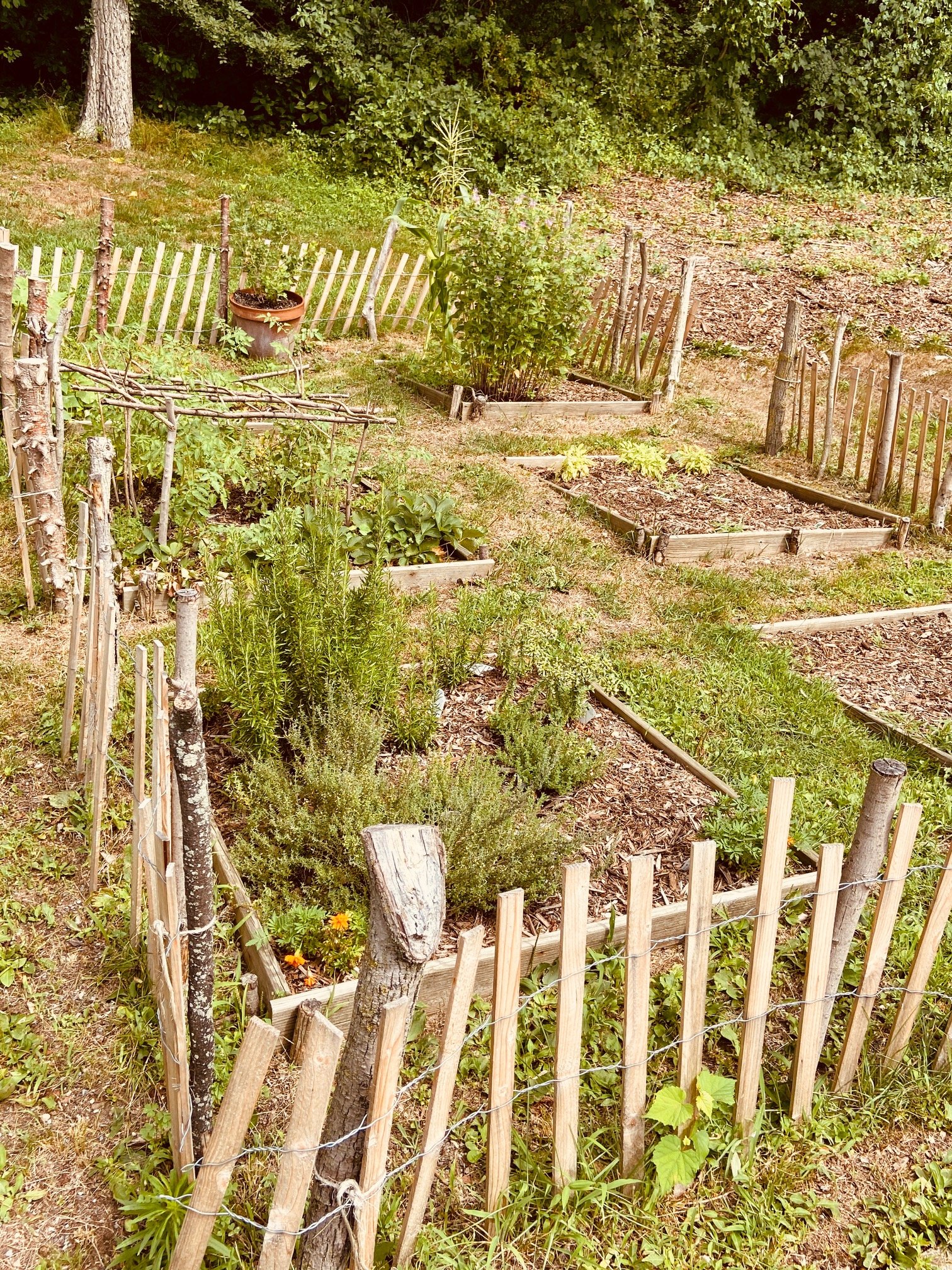
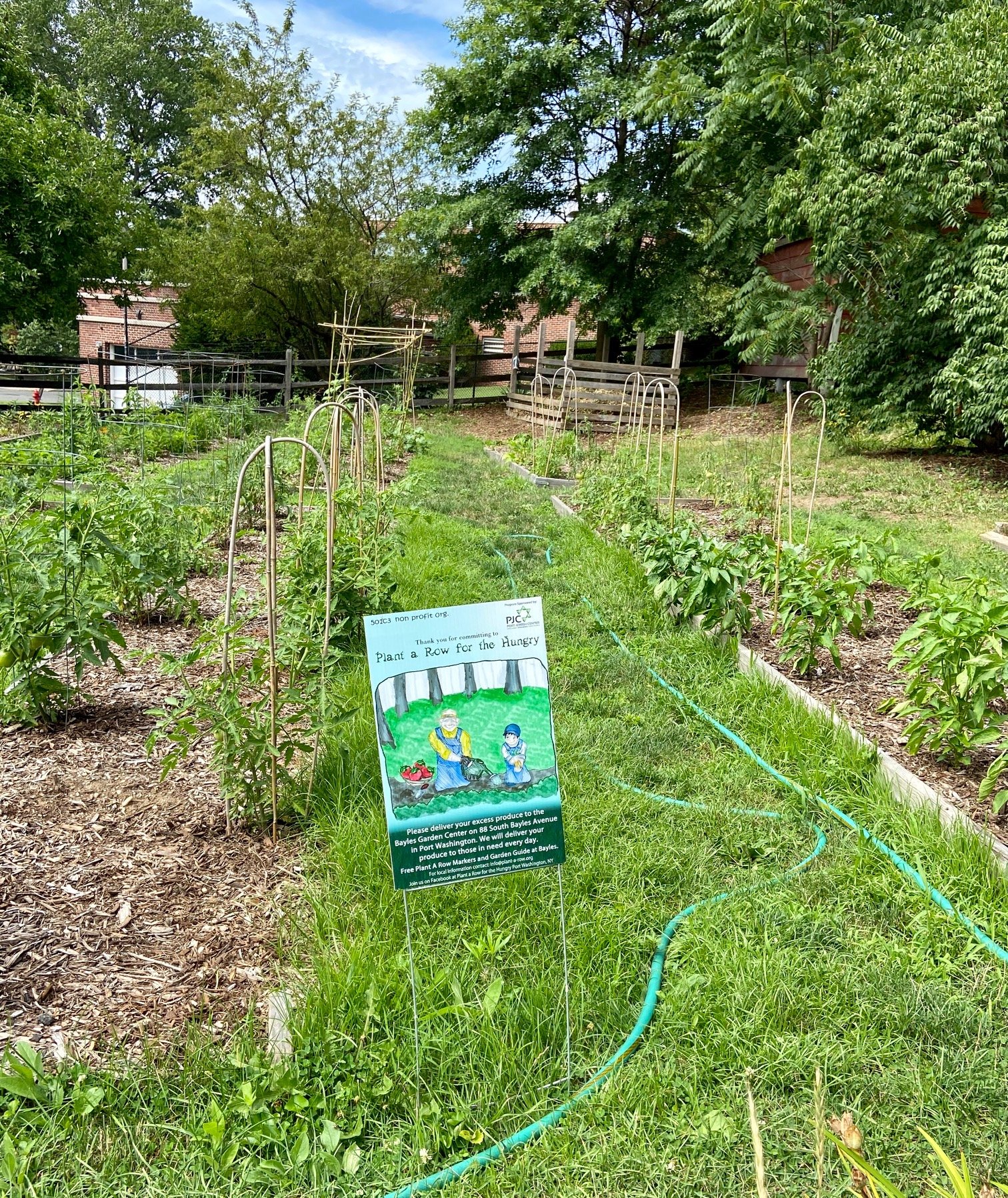
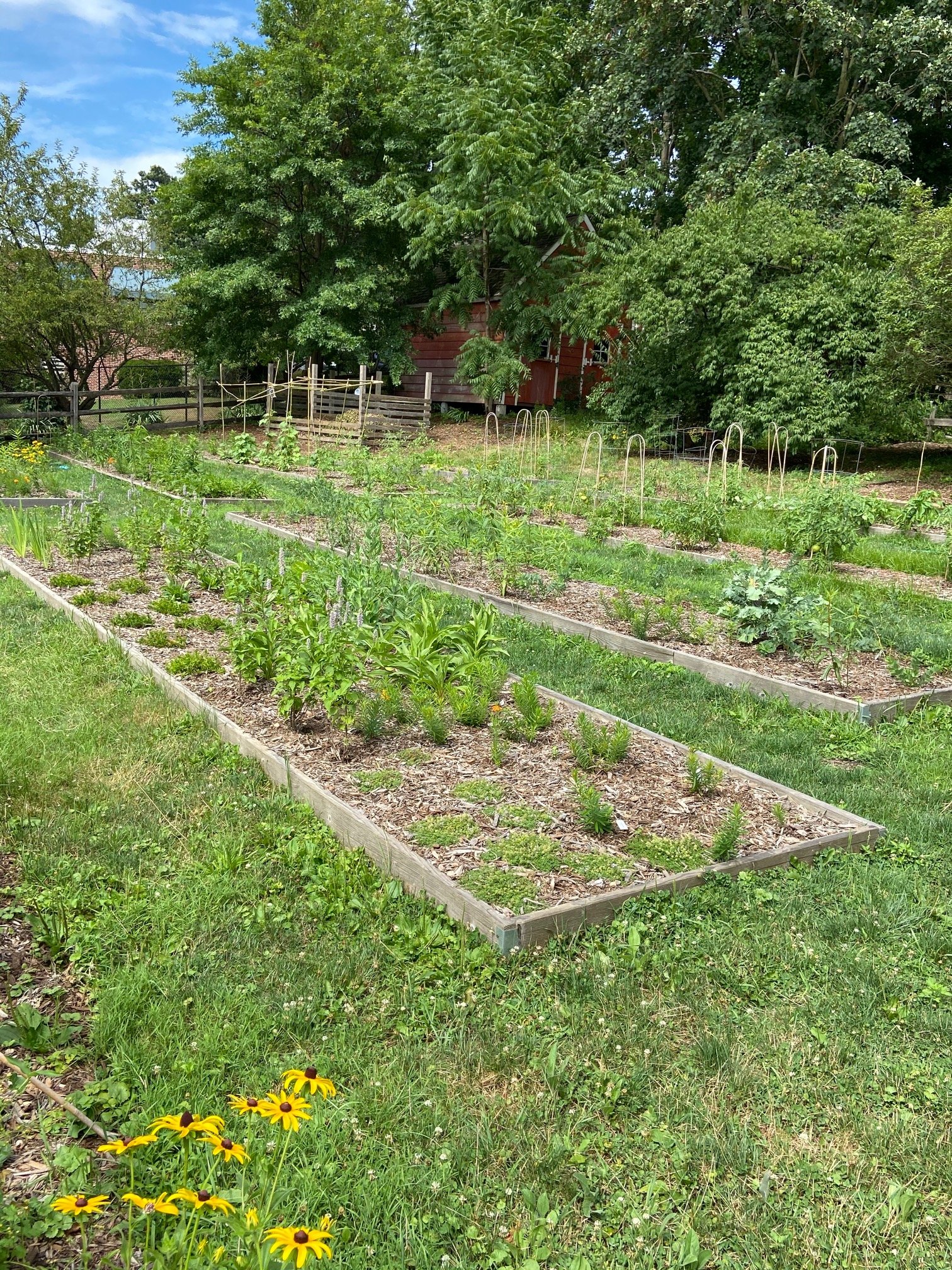
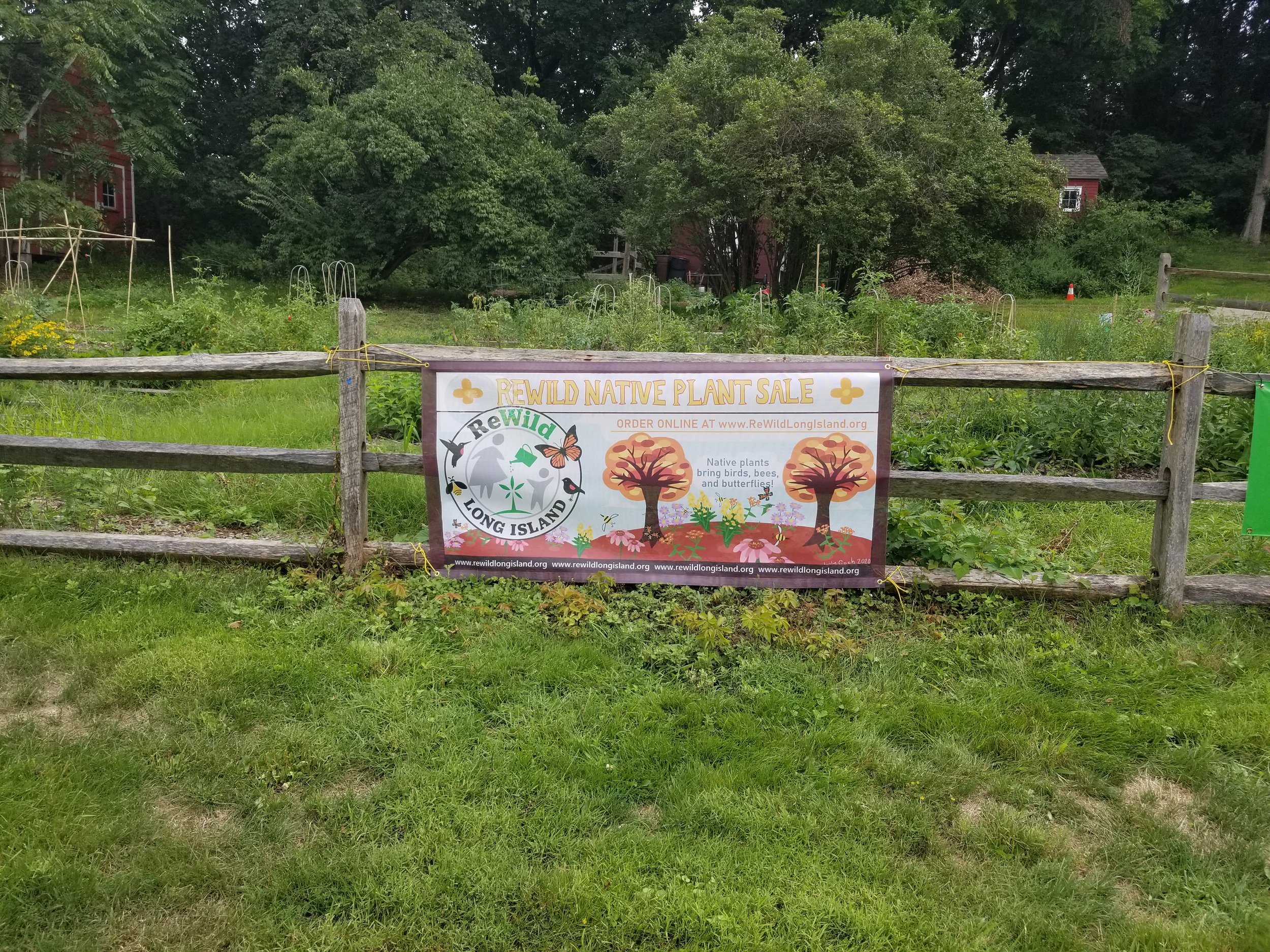
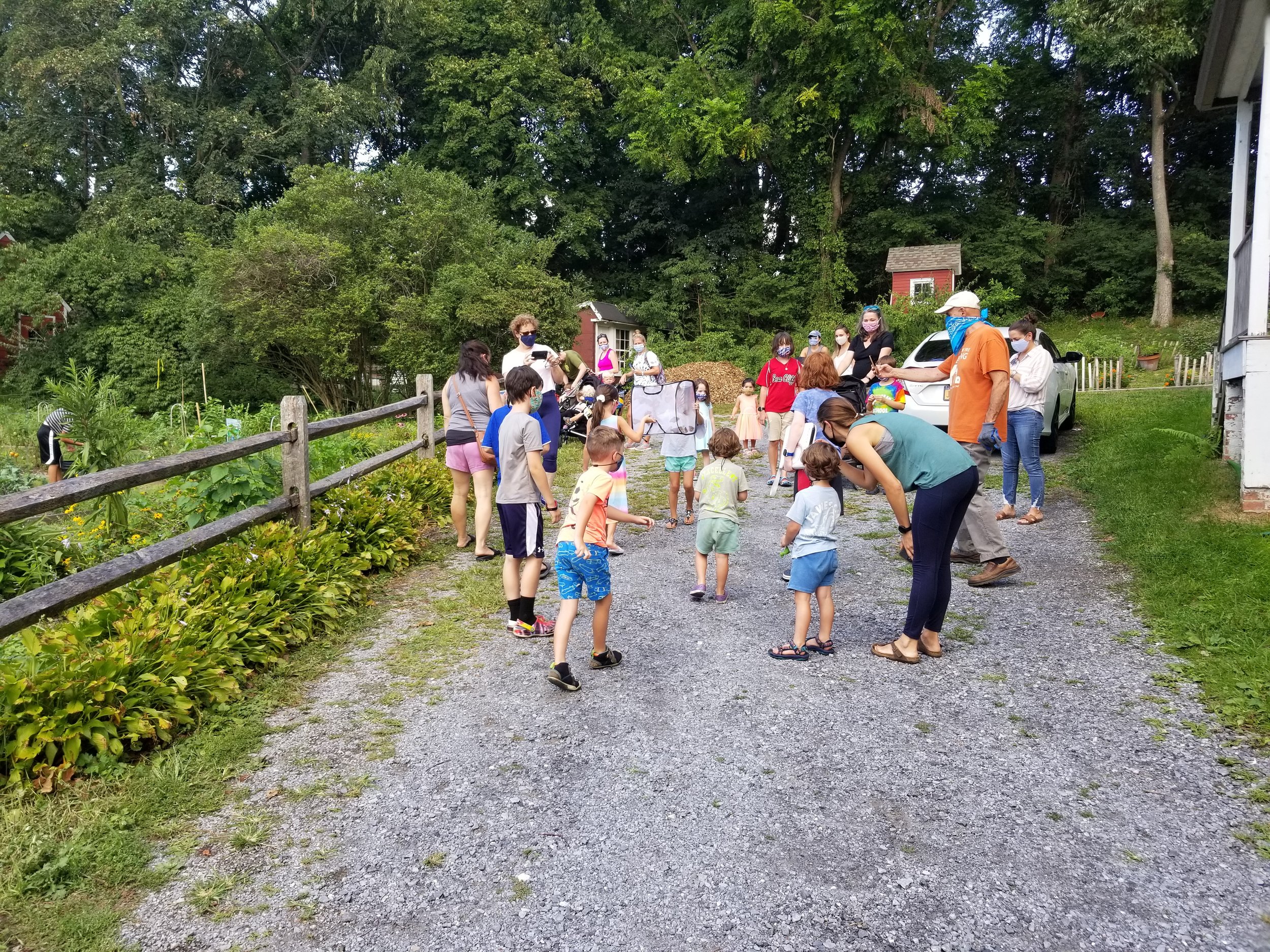
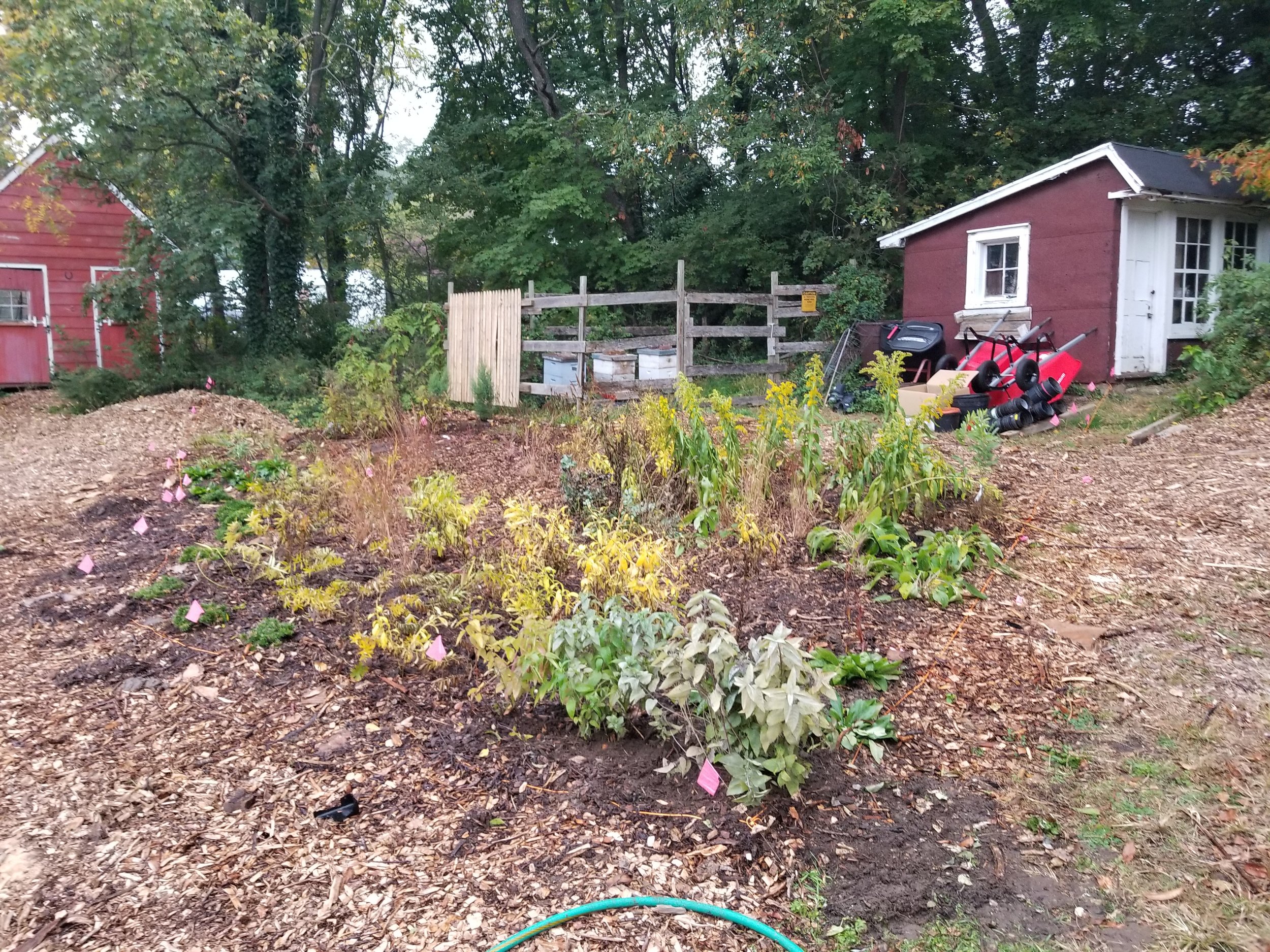
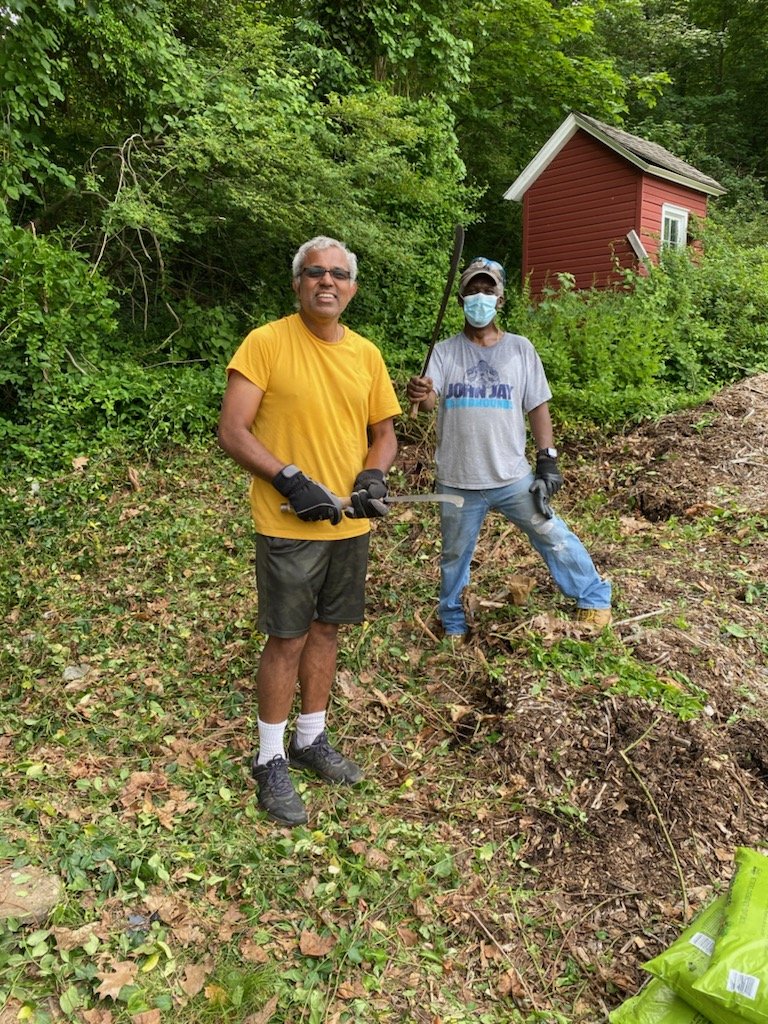
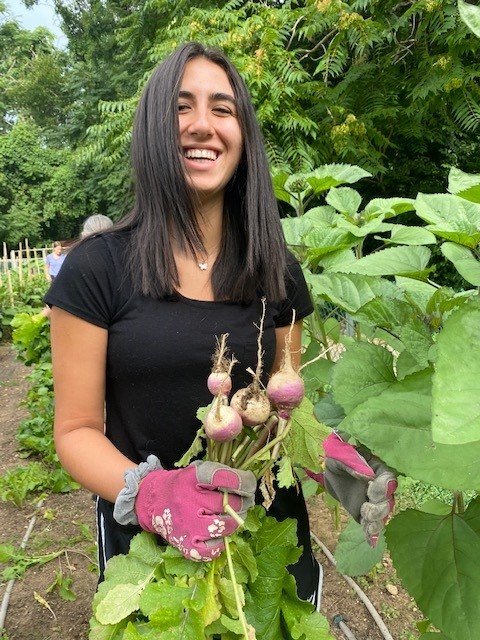



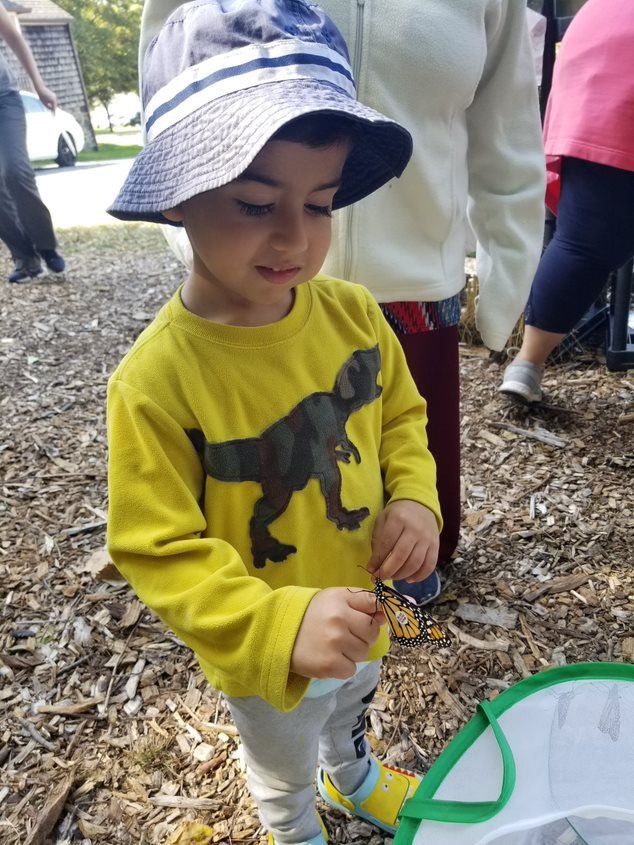
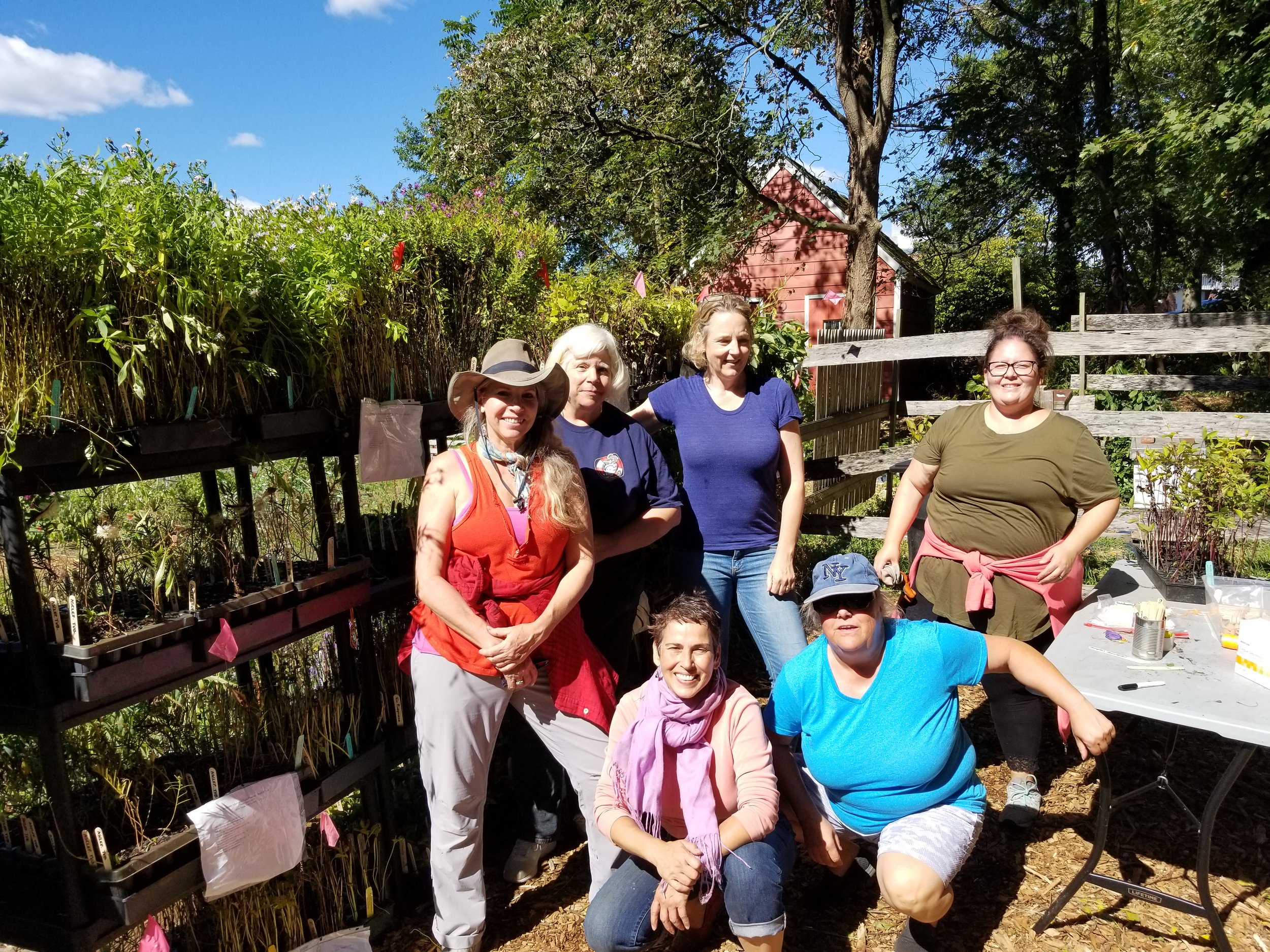
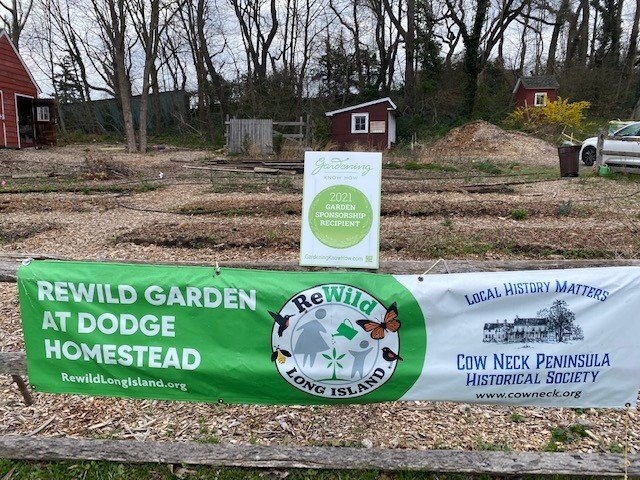
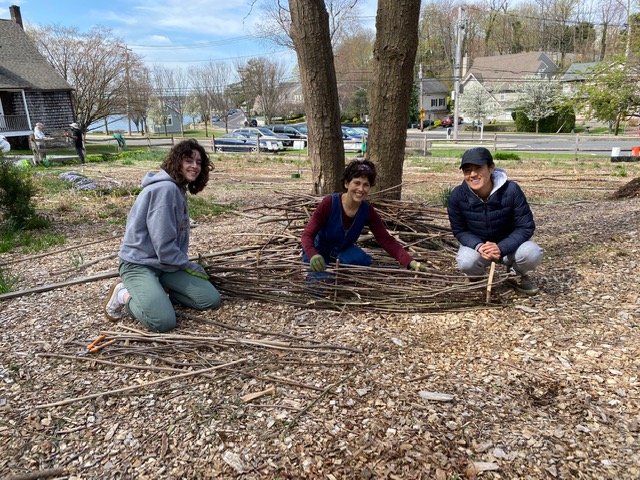
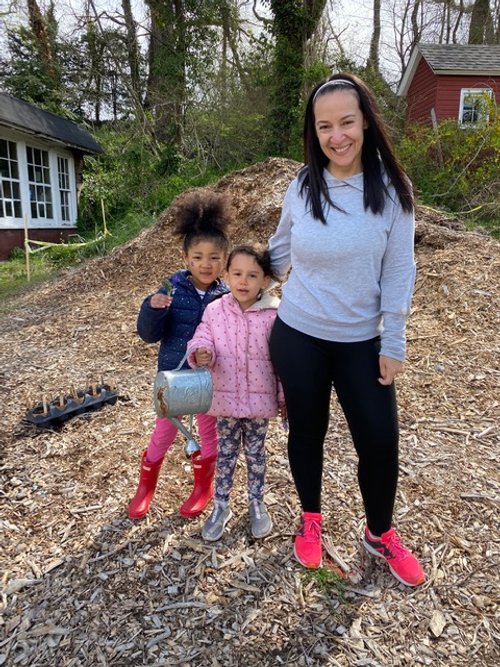
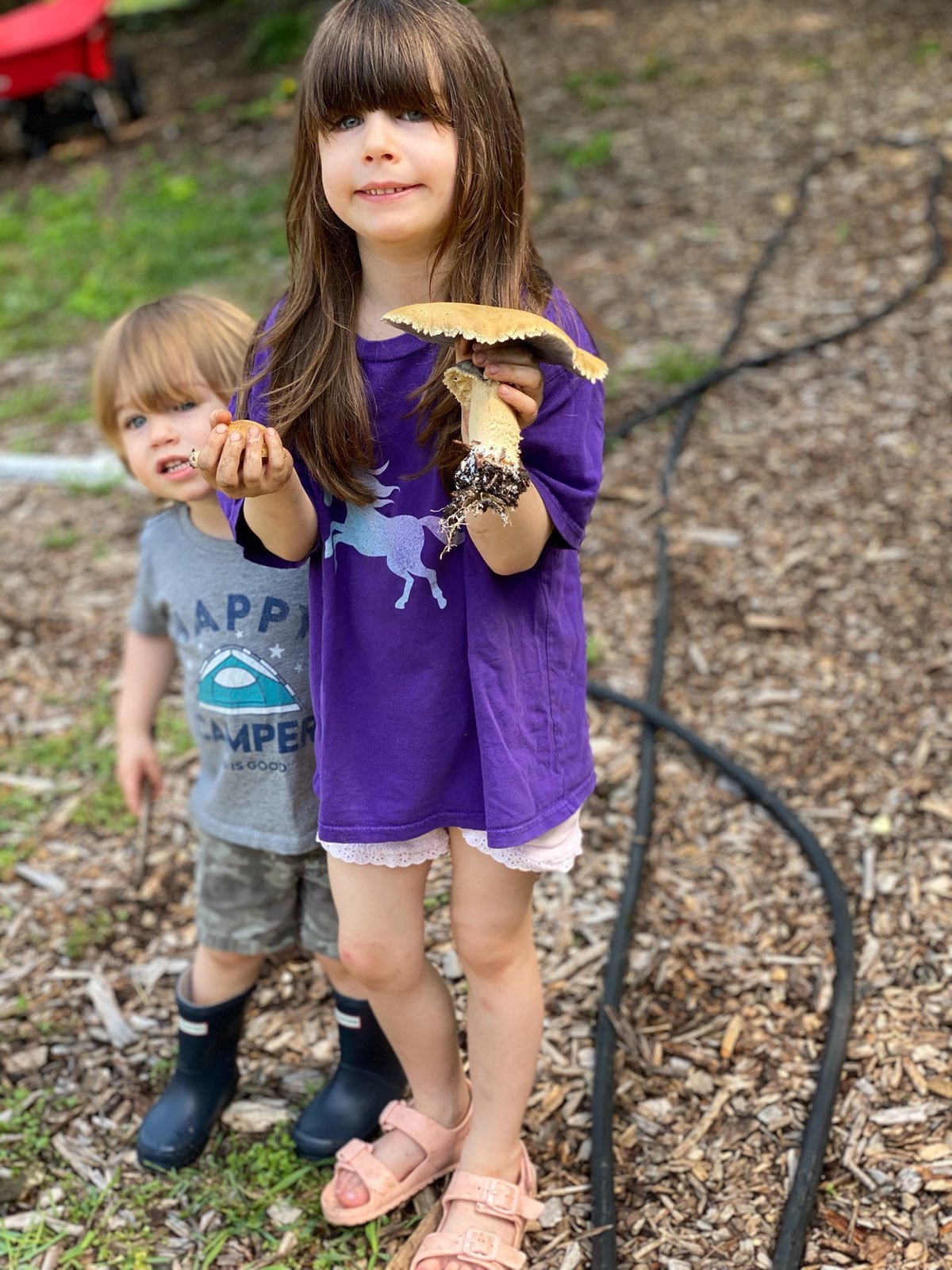
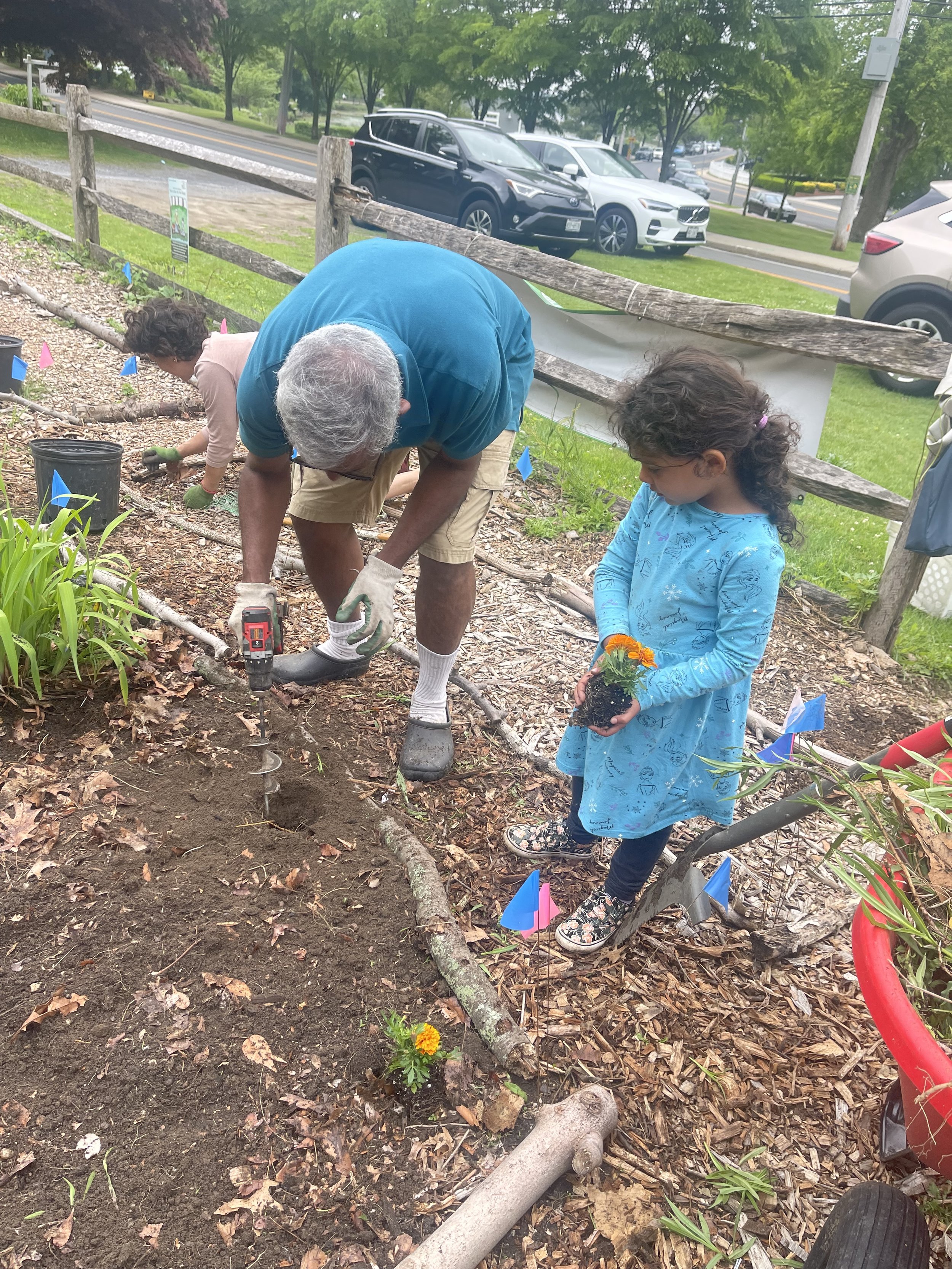
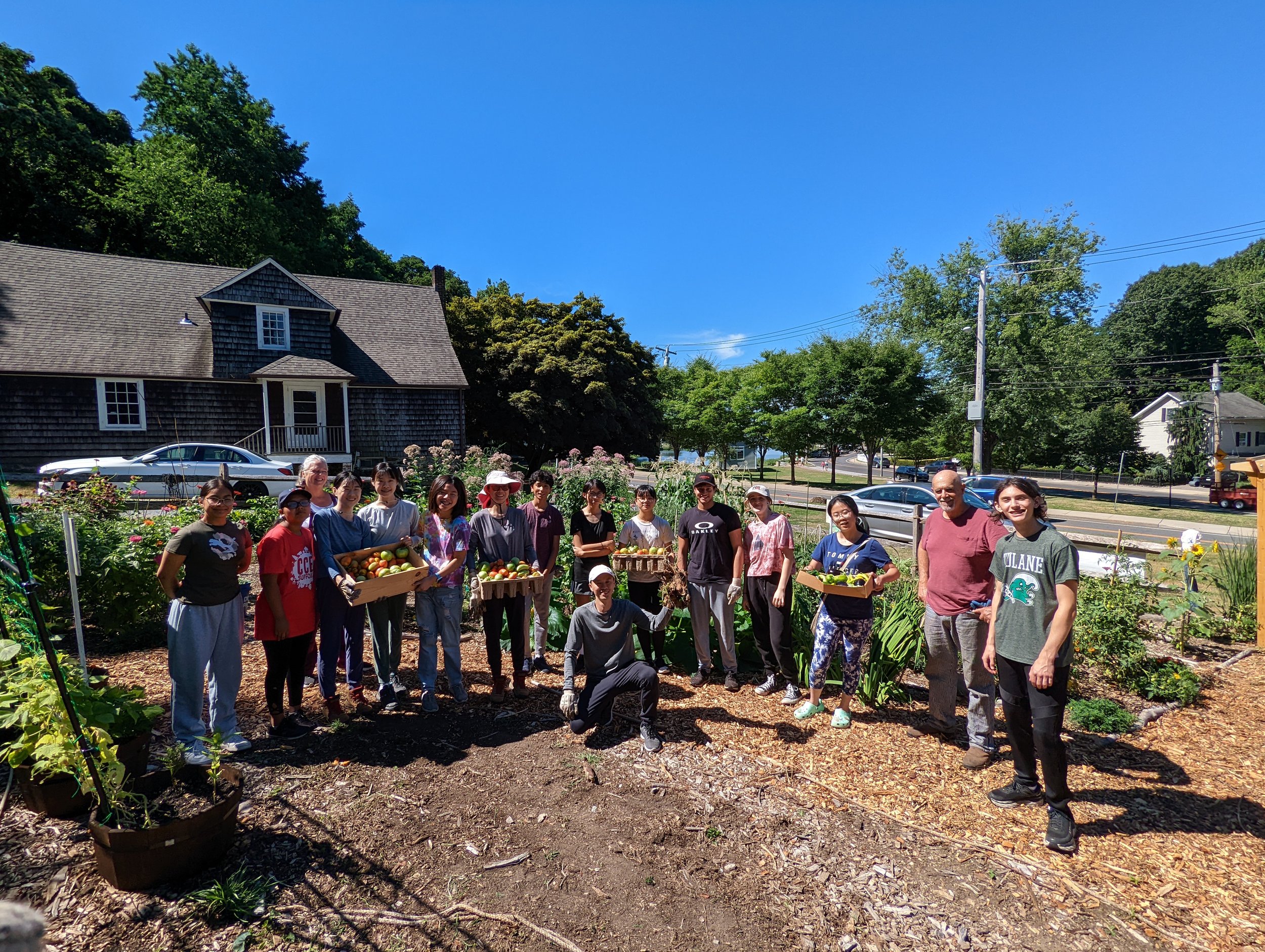
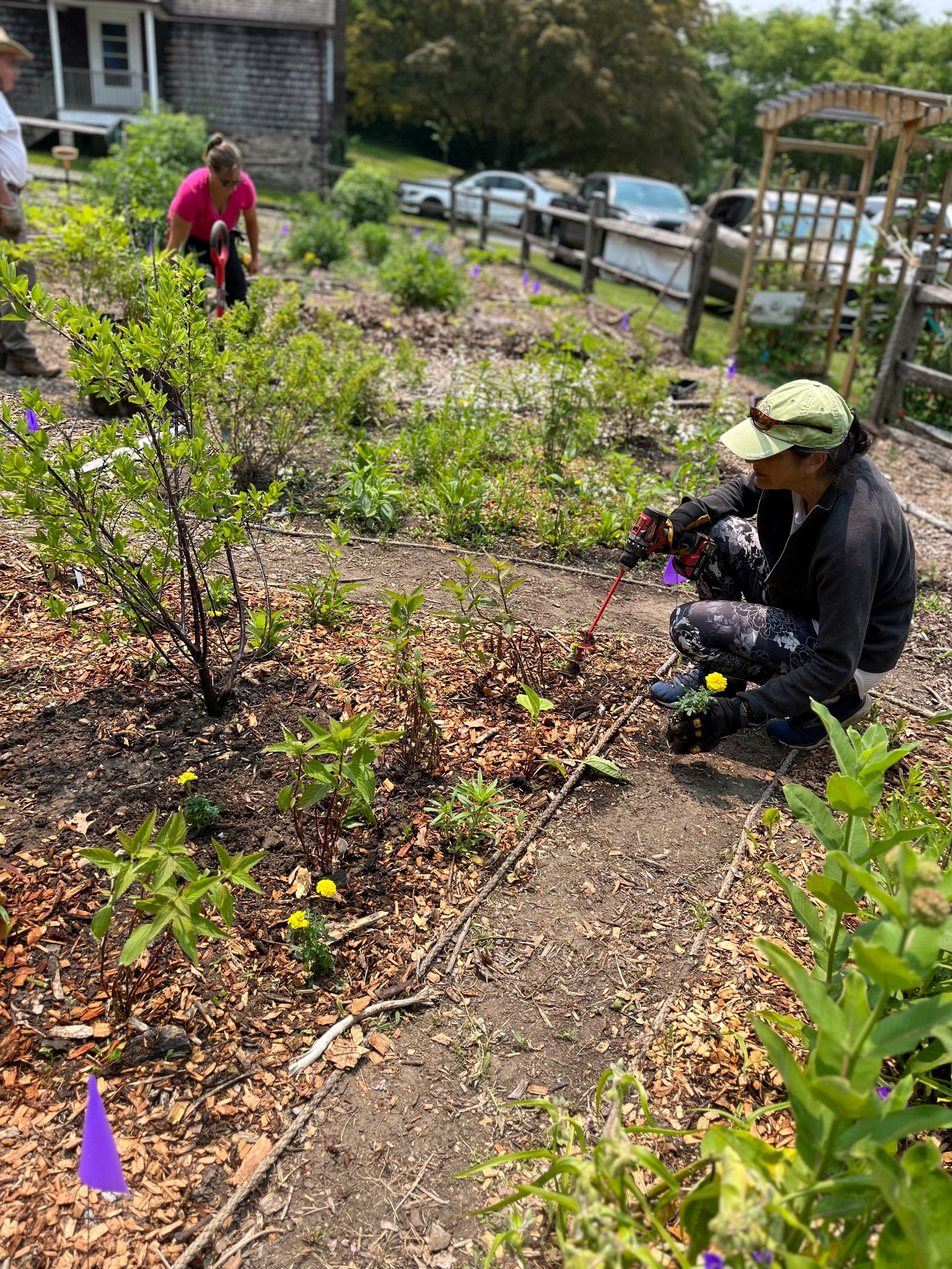
Rewild garden at dodge
Located at the Thomas Dodge Homestead
Written by Raju Rajan and Kathy Coley
Our vision for the ReWild Garden at Dodge was to create a community space where the residents of Port Washington can learn about the historic and environmental importance of native plants while also understanding their role in sustainable landscaping today. When we started in March 2021, the grounds of the Thomas Dodge Homestead needed a lot of restoration. Invasive vines, poison ivy and emerging trees had choked several areas and threatened historic structures. The fencing and architecture of the space restricted volunteer and public access. The layout of the organic farm was not conducive to the community activities we conduct there including our annual native plant distribution and youth activities.
ReWild embarked on a transformation project developing a broad vision that is now crystallizing as the ReWild Garden at Dodge.
Our volunteers (adults and students) worked tirelessly to remove invasives, place cardboard and mulch to suppress regrowth, plant natives and create a beautiful garden. The design of the garden was spearheaded by Dianna Facci, a volunteer with design skills and an eye for detail. This evolved over several years as we experimented with the actual use of the space.
Our current mature design has an herbal plant wheel in the center of the garden to honor the contributions of native people and native plants in preserving biodiversity. On one side of the garden, we grow organic vegetables fed by compost made from local kitchen and yard waste.. On the other side of the garden, we are trying out different ideas for landscaping aesthetics around native plants.
Our garden, like ReWild Long Island, is ever-changing, ambitious, experimental, and created by a lot of people who care deeply about working together!
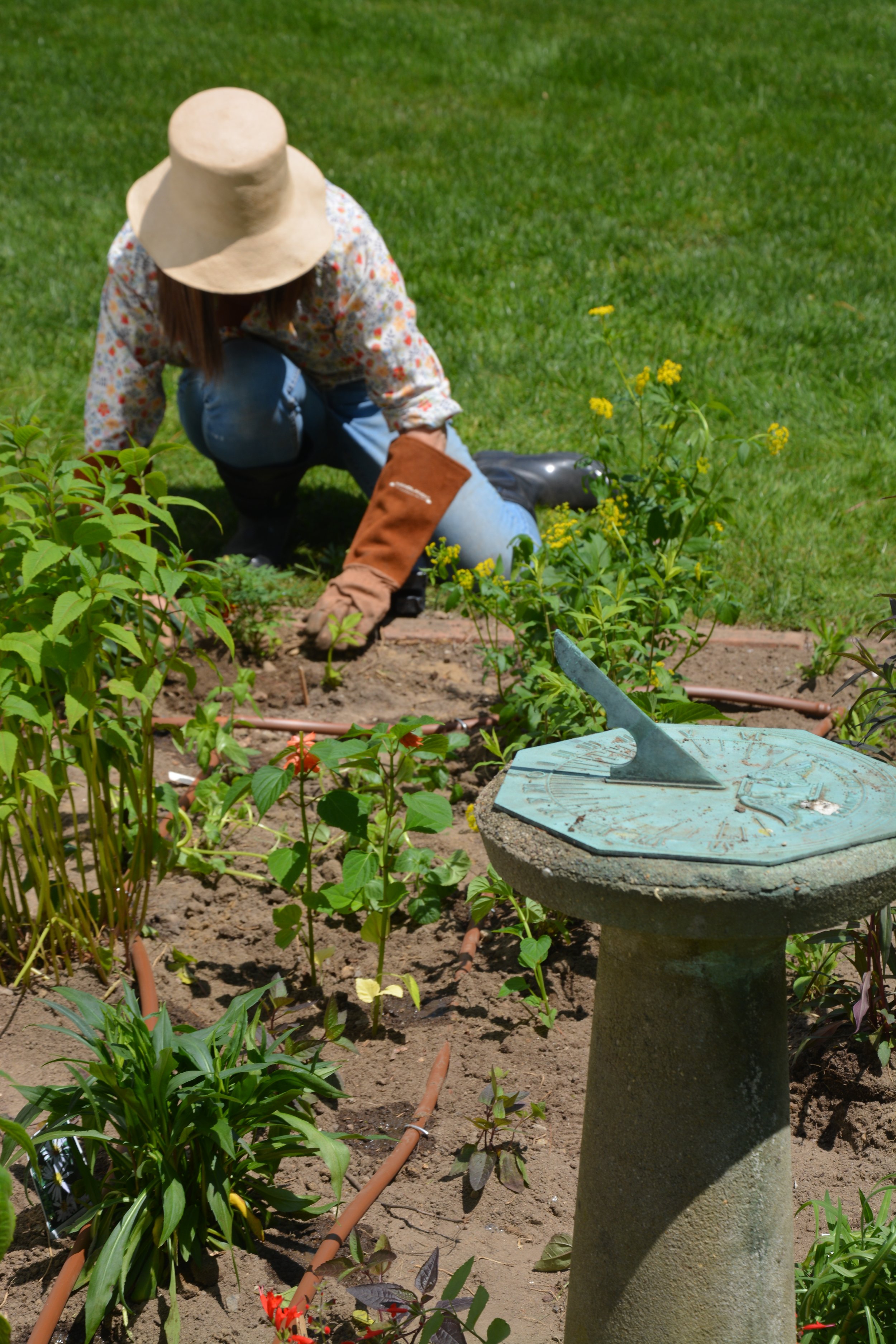
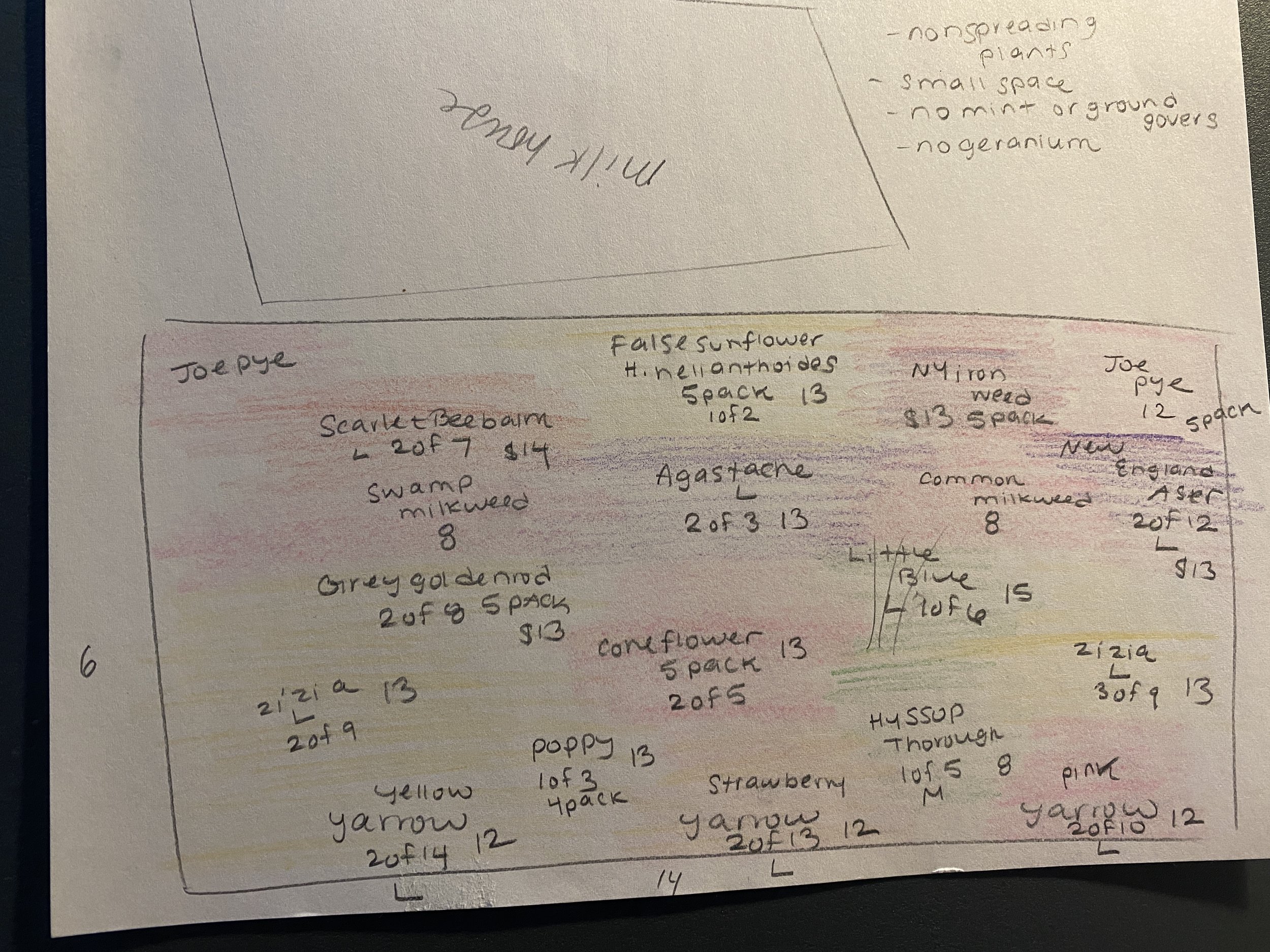


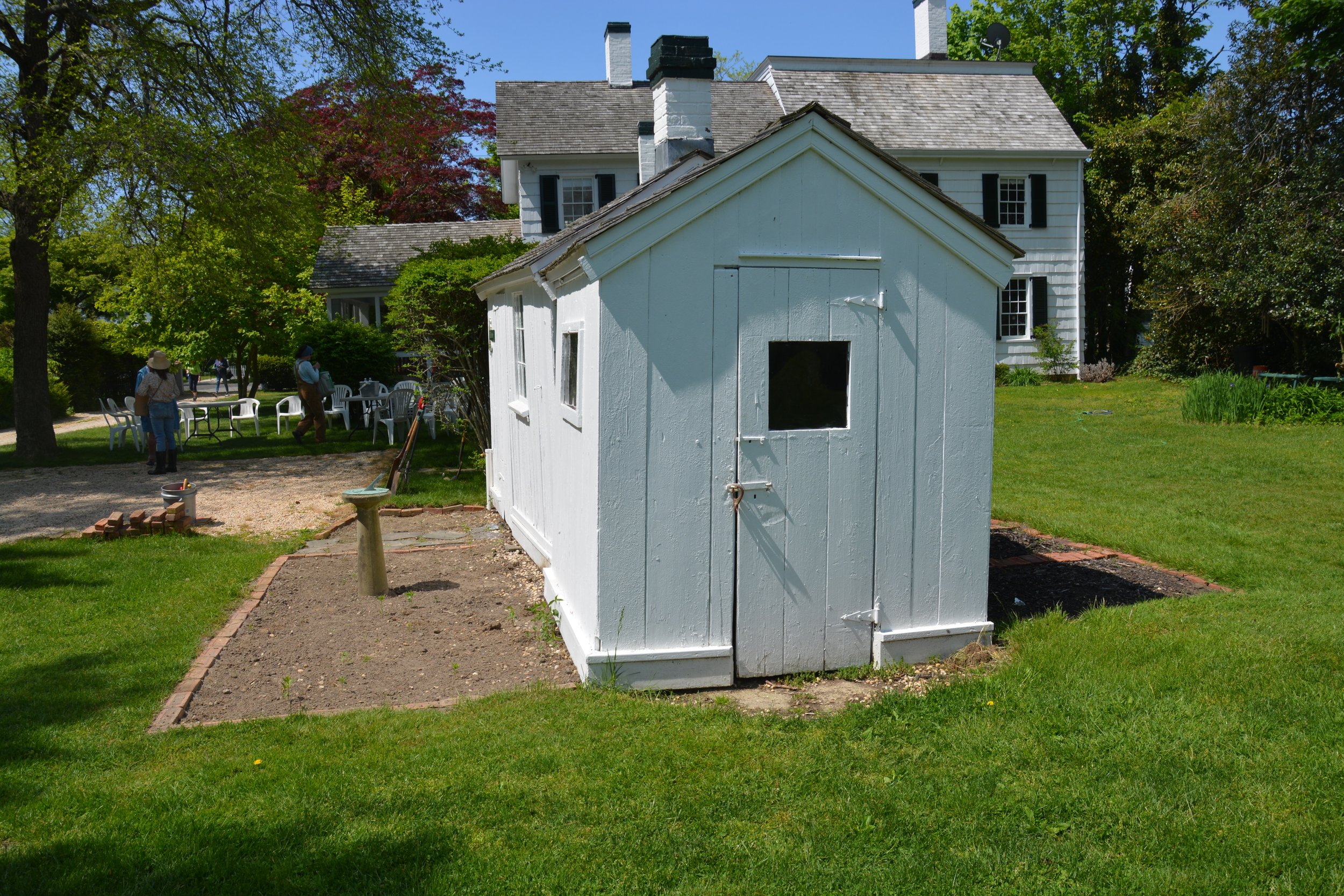



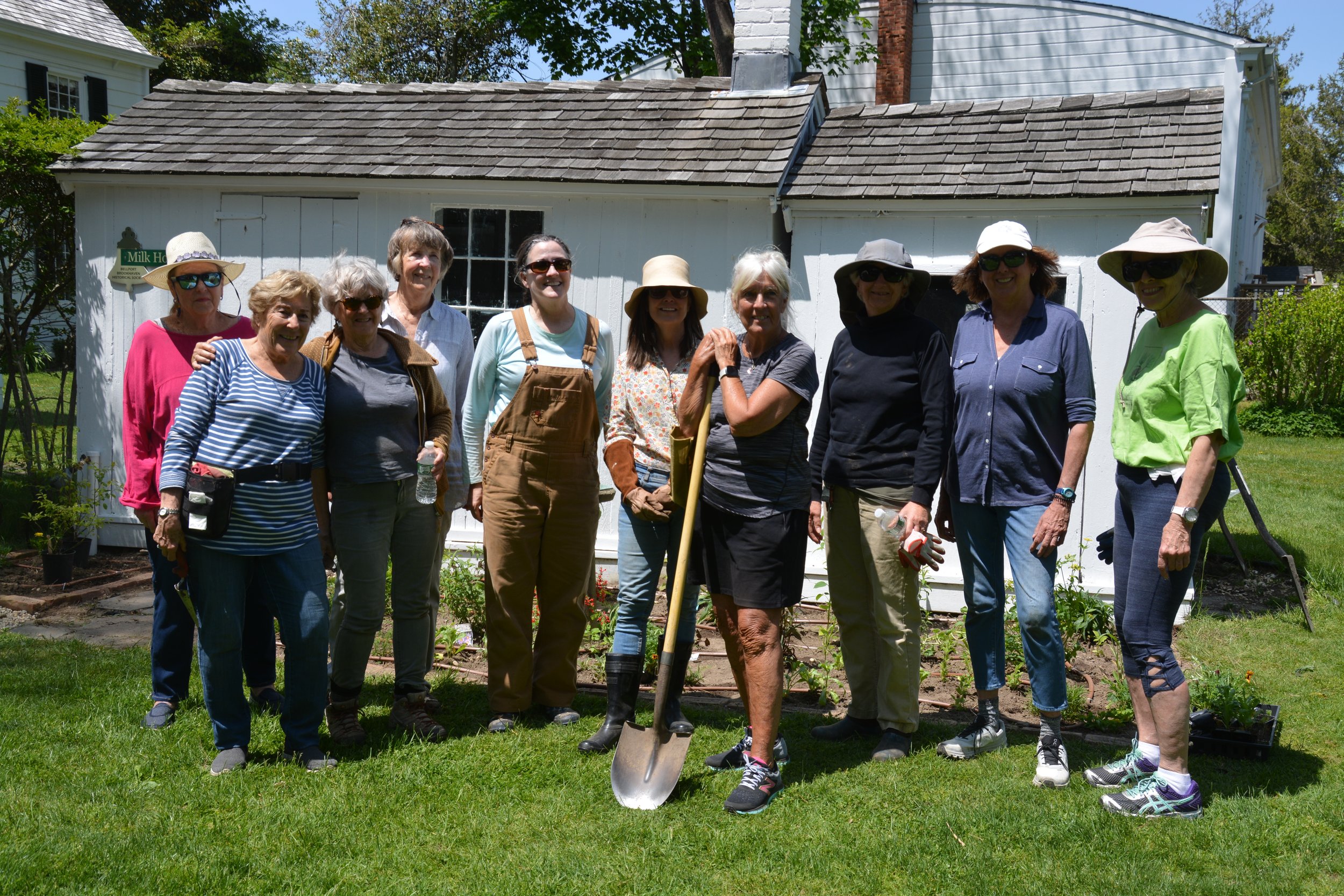



Bellport Garden Club
Located at the Bellport Historical Society
Written by Jennifer Vorbach
The Bellport Garden club has been in existence for almost 100 years, and has promoted the love of gardens and landscapes and trees since its inception. One of the main thrusts of the Club today is to inspire local gardeners to adopt environmentally sound practices and to encourage sustainable gardening. The two gardens we maintain at the Bellport-Brookhaven Historical Society are on a beautiful historical site and draw many visitors and we believe that the re-wilding of those spaces will encourage others to consider native and pollinator friendly plantings.
The gardens are just settling in. A few of the plants have been nibbled away but for the most part they are thriving. Later in the summer, when the flowers bloom abundantly, we will be eagerly watching for the butterflies and native insects who benefit from these plantings.
There is joy to be had in discovering that plants we might once have considered weeds are actually beautiful, as well as beneficial. There is an aesthetic shift happening in Bellport Village, and elsewhere, as we move away from exotic imports and learn to enjoy the plants that thrived here well before we arrived.
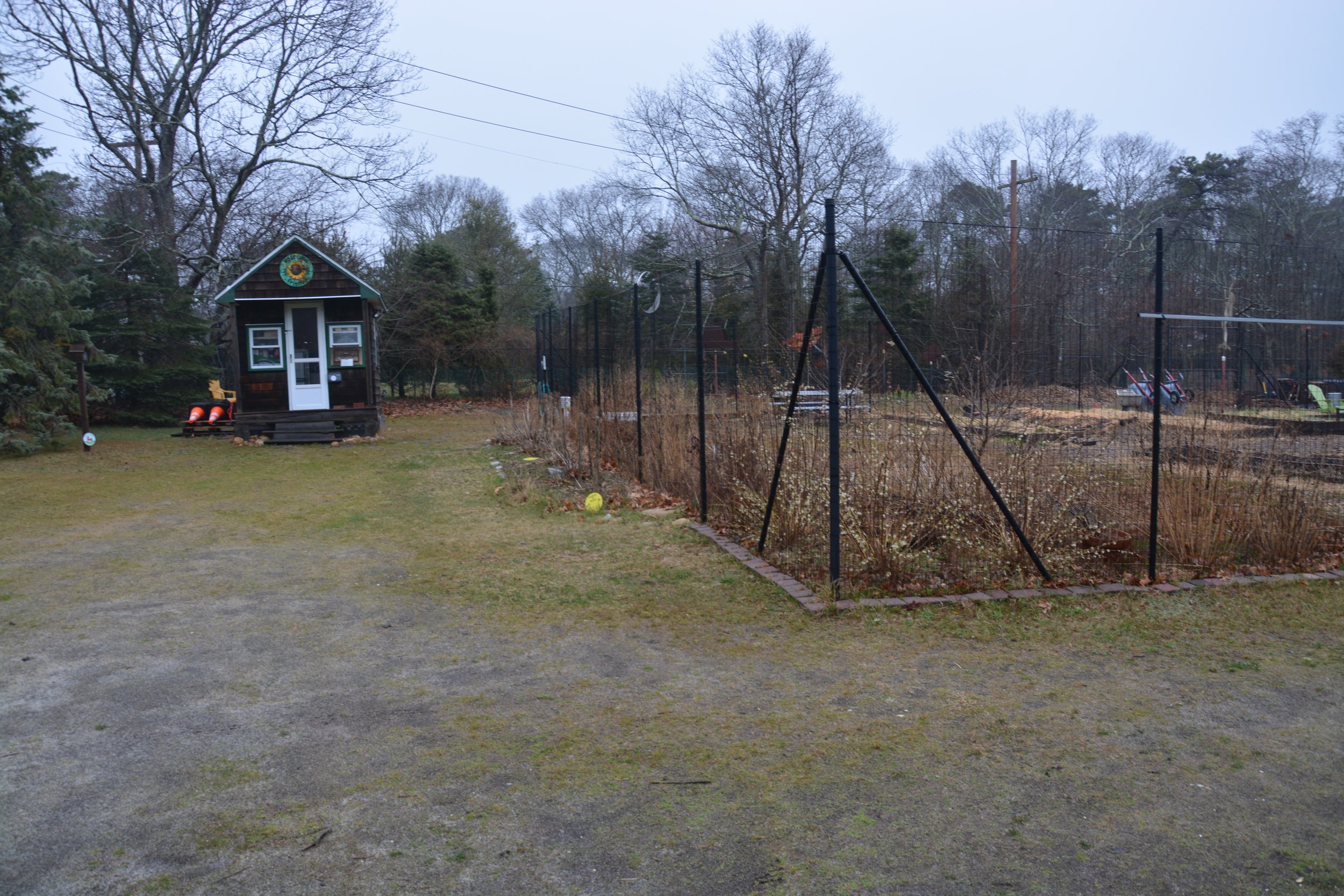
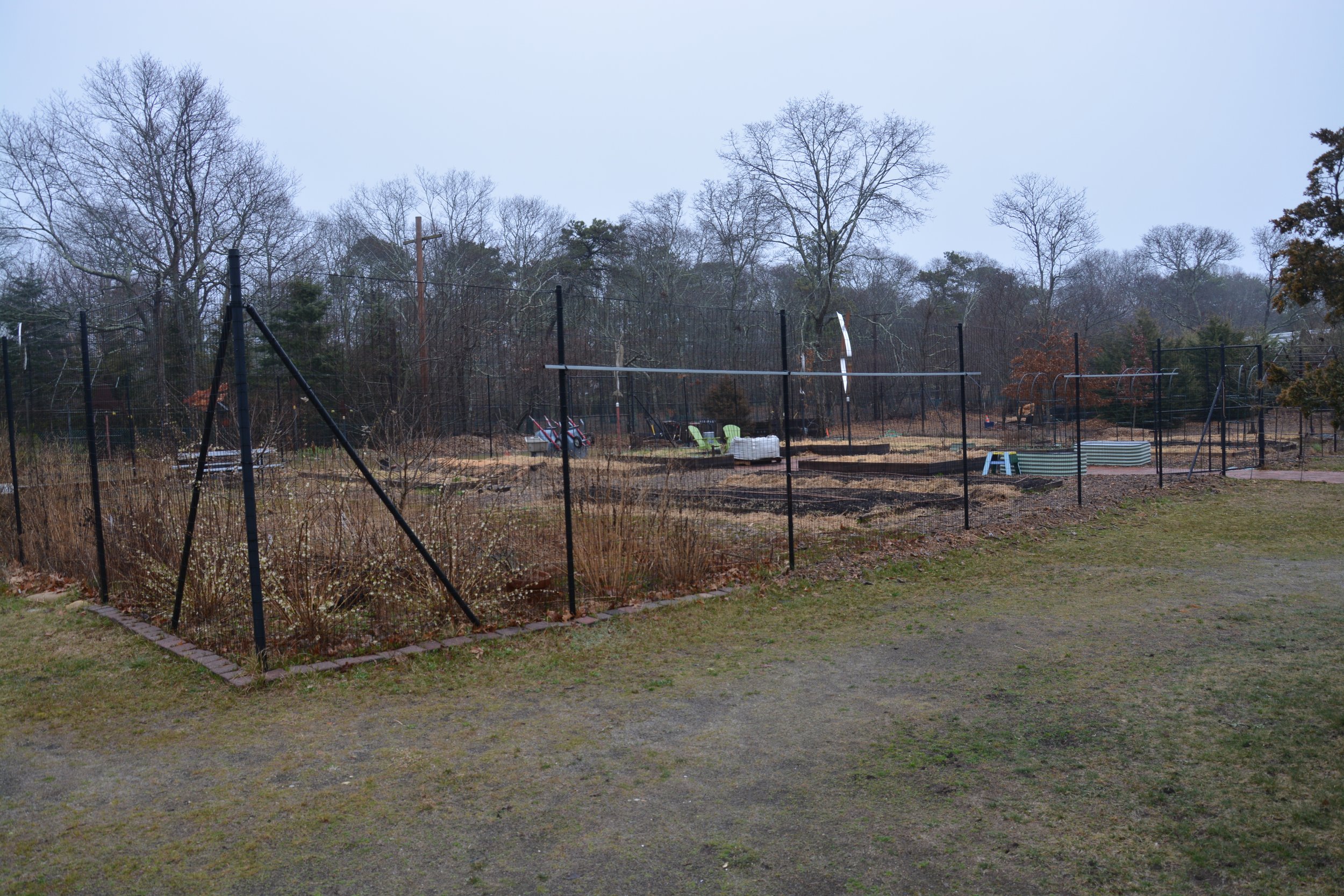
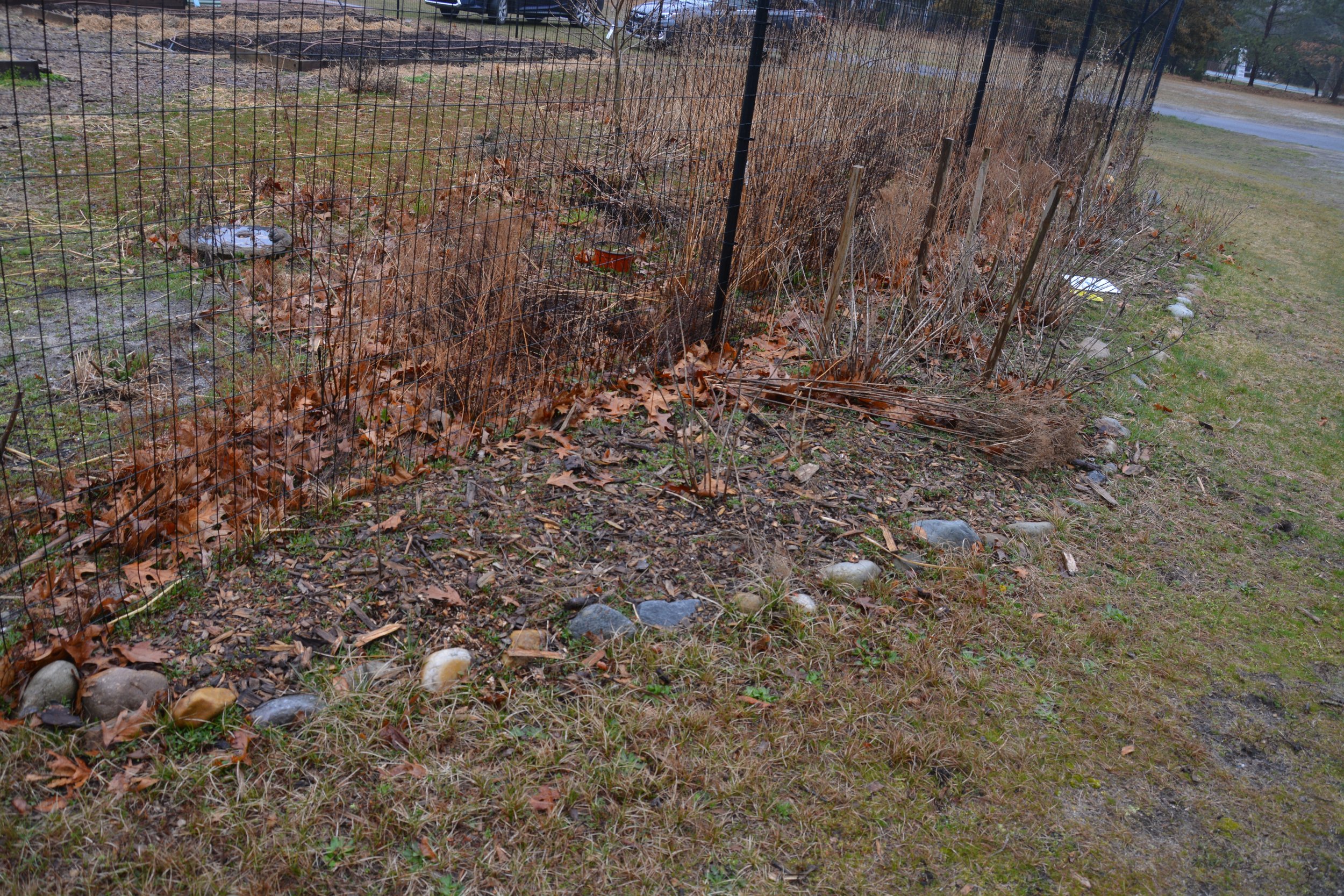
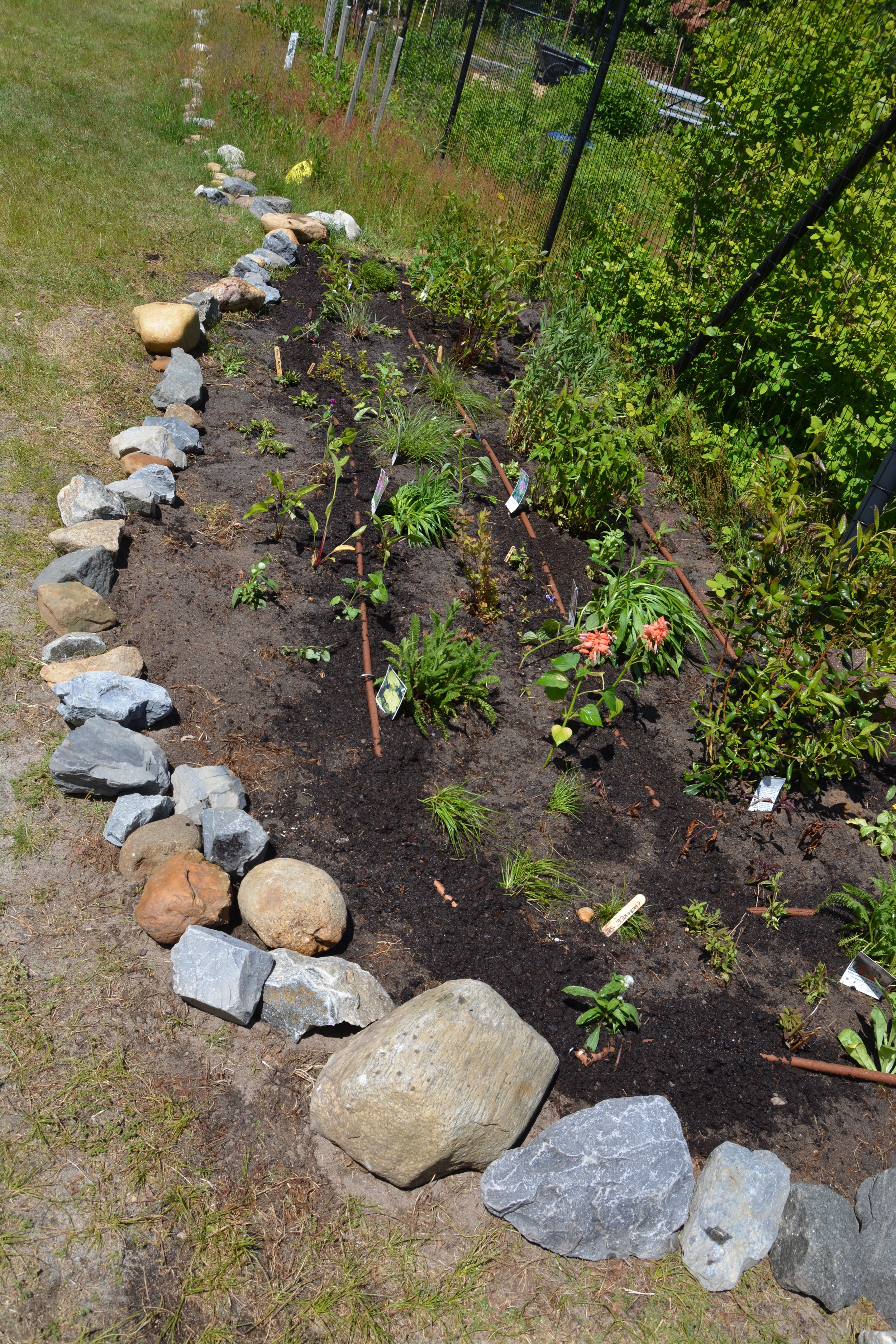
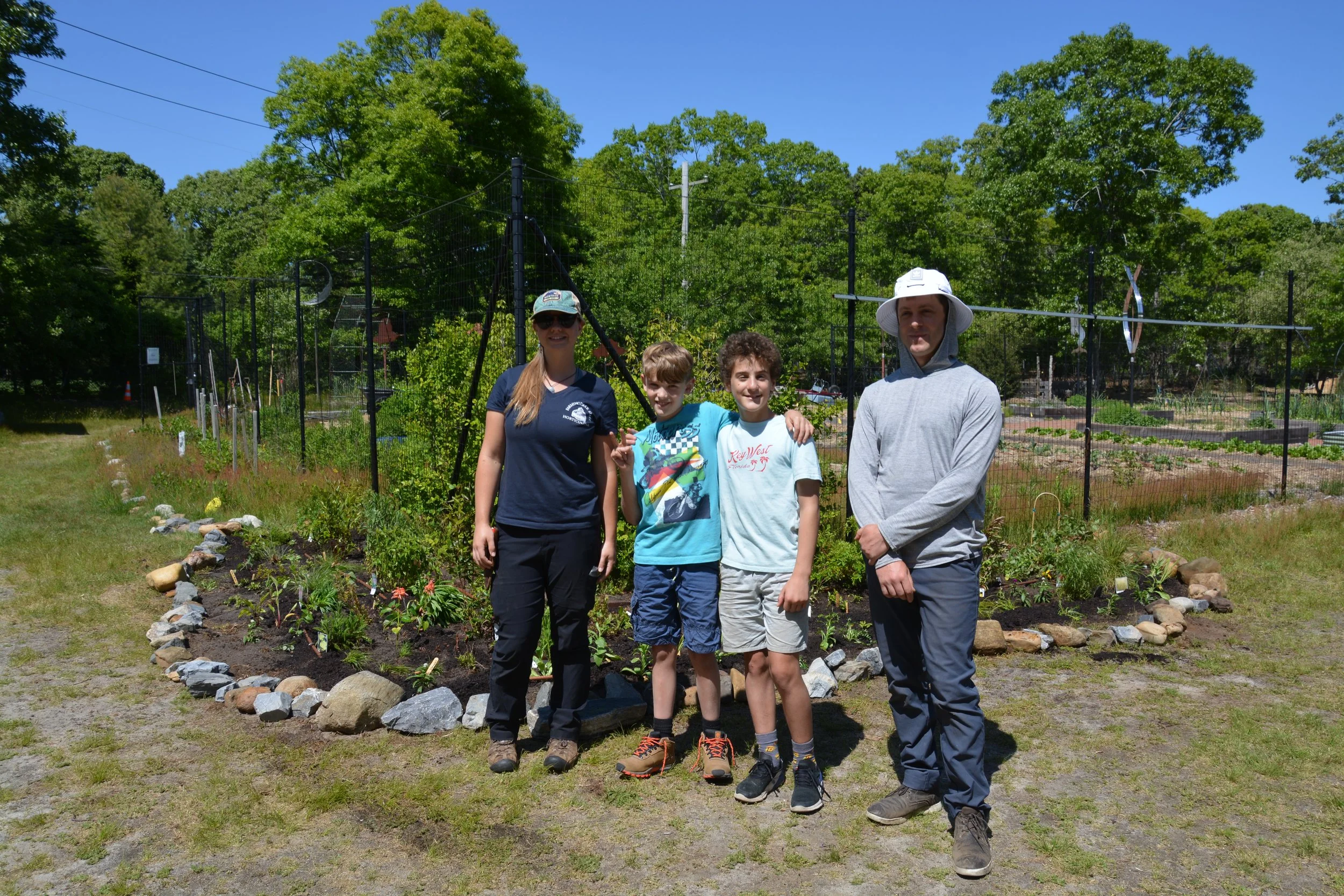
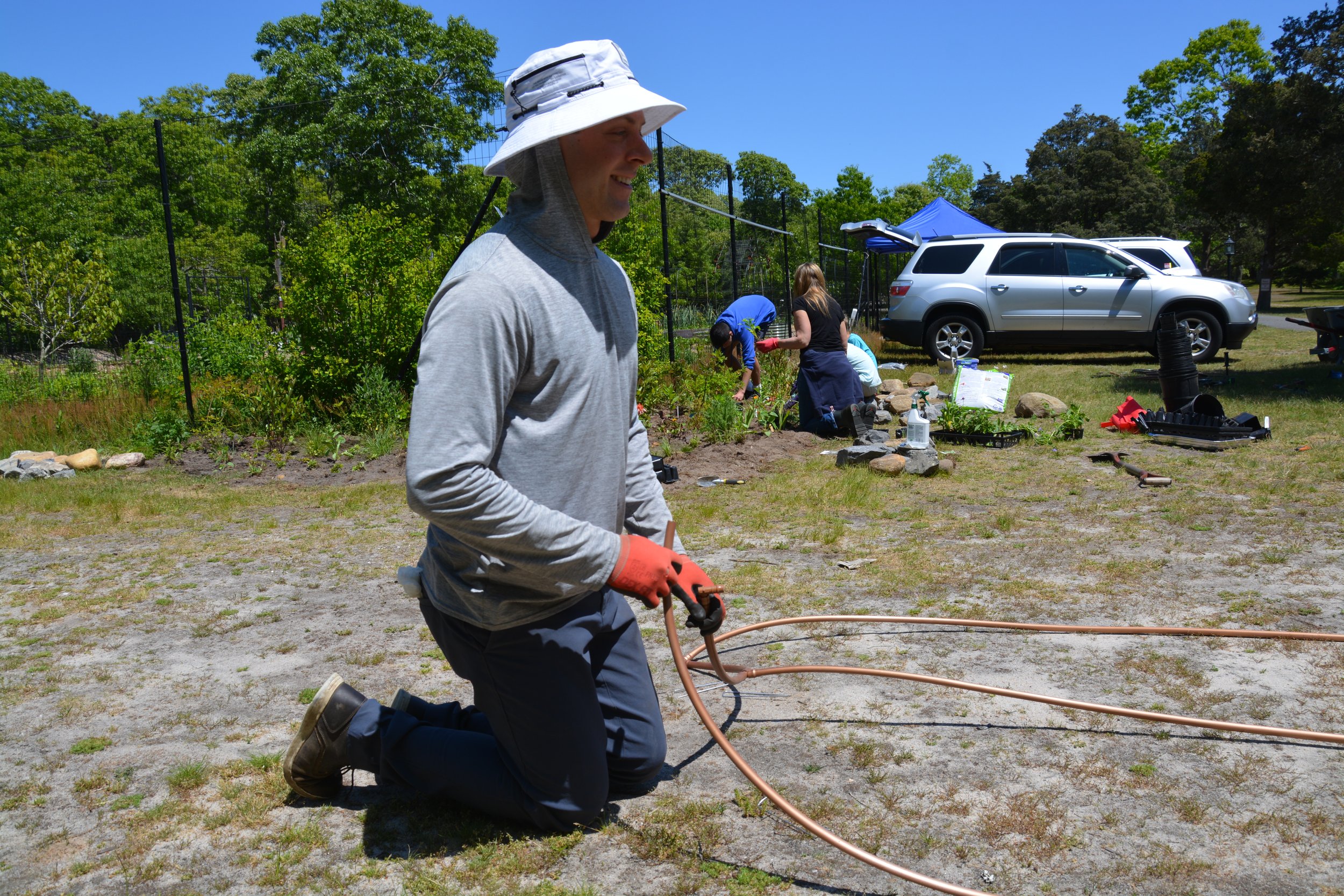
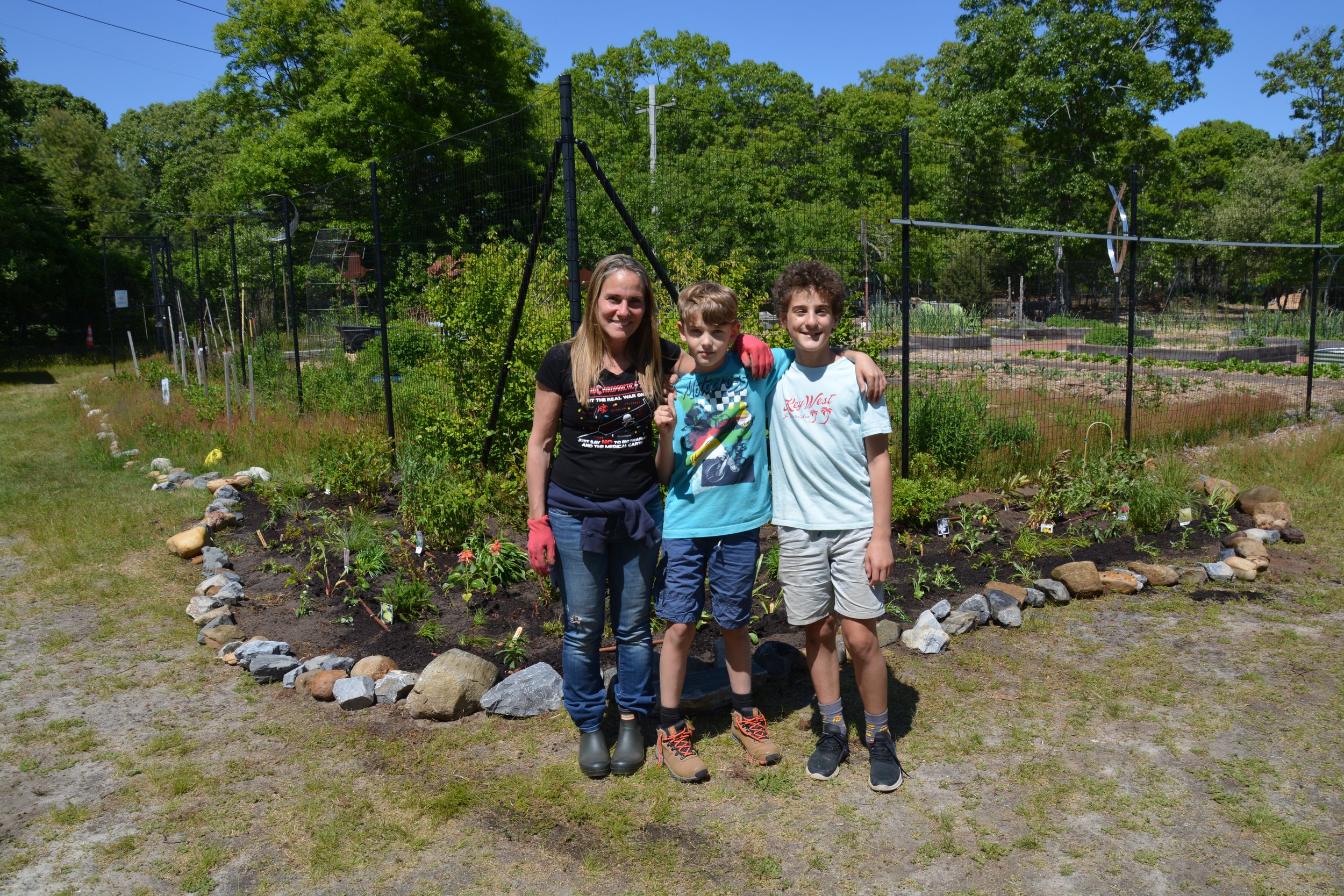
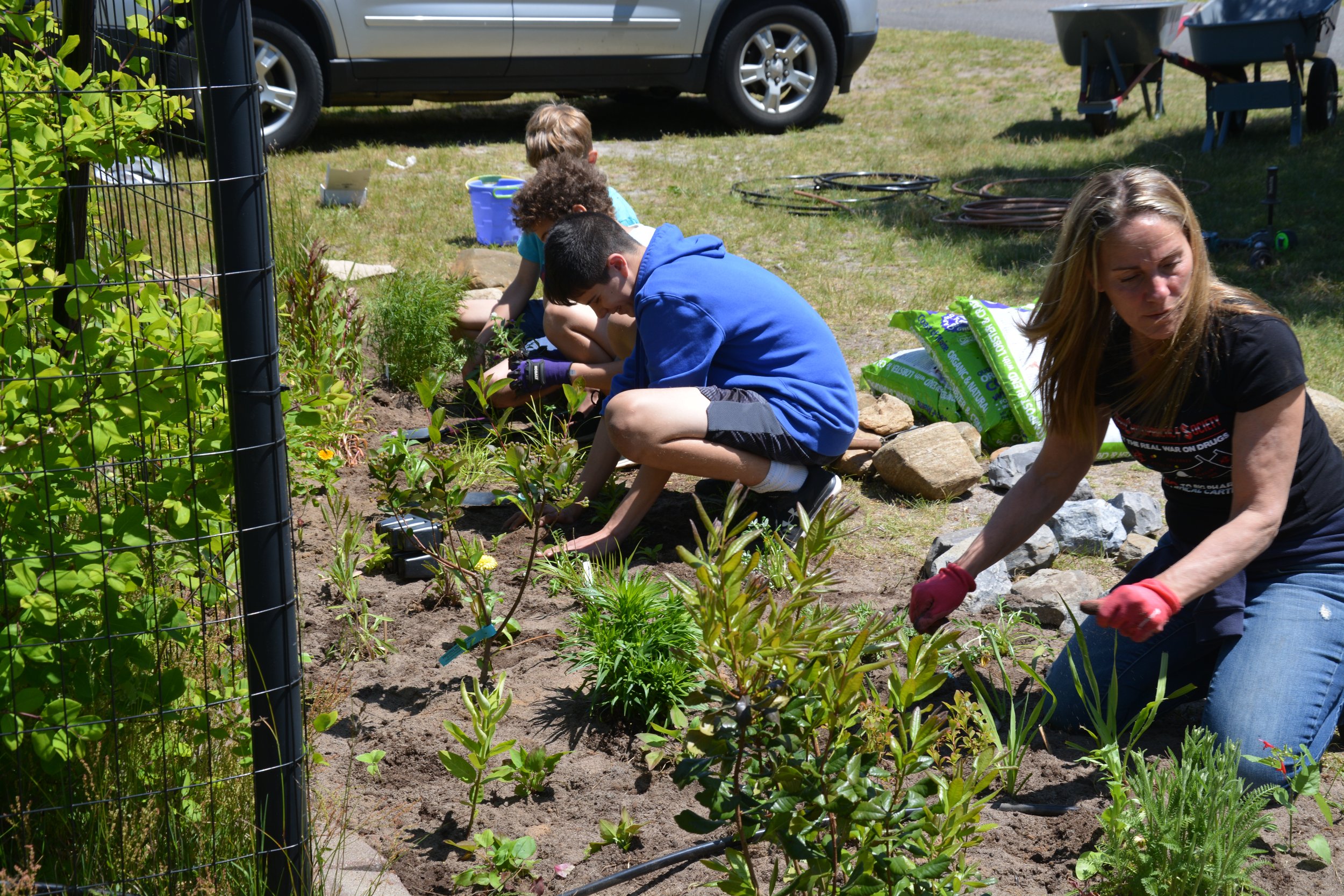
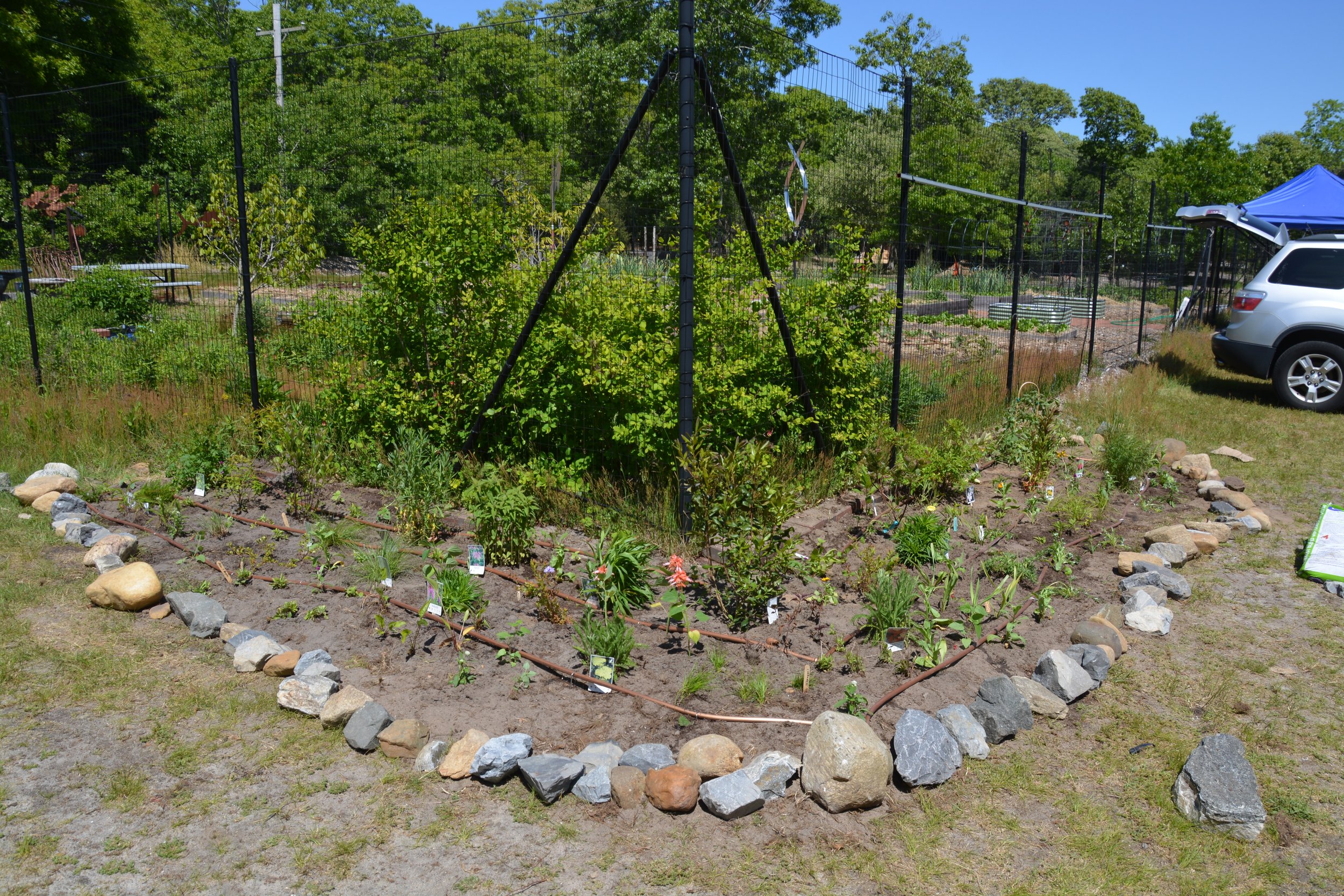
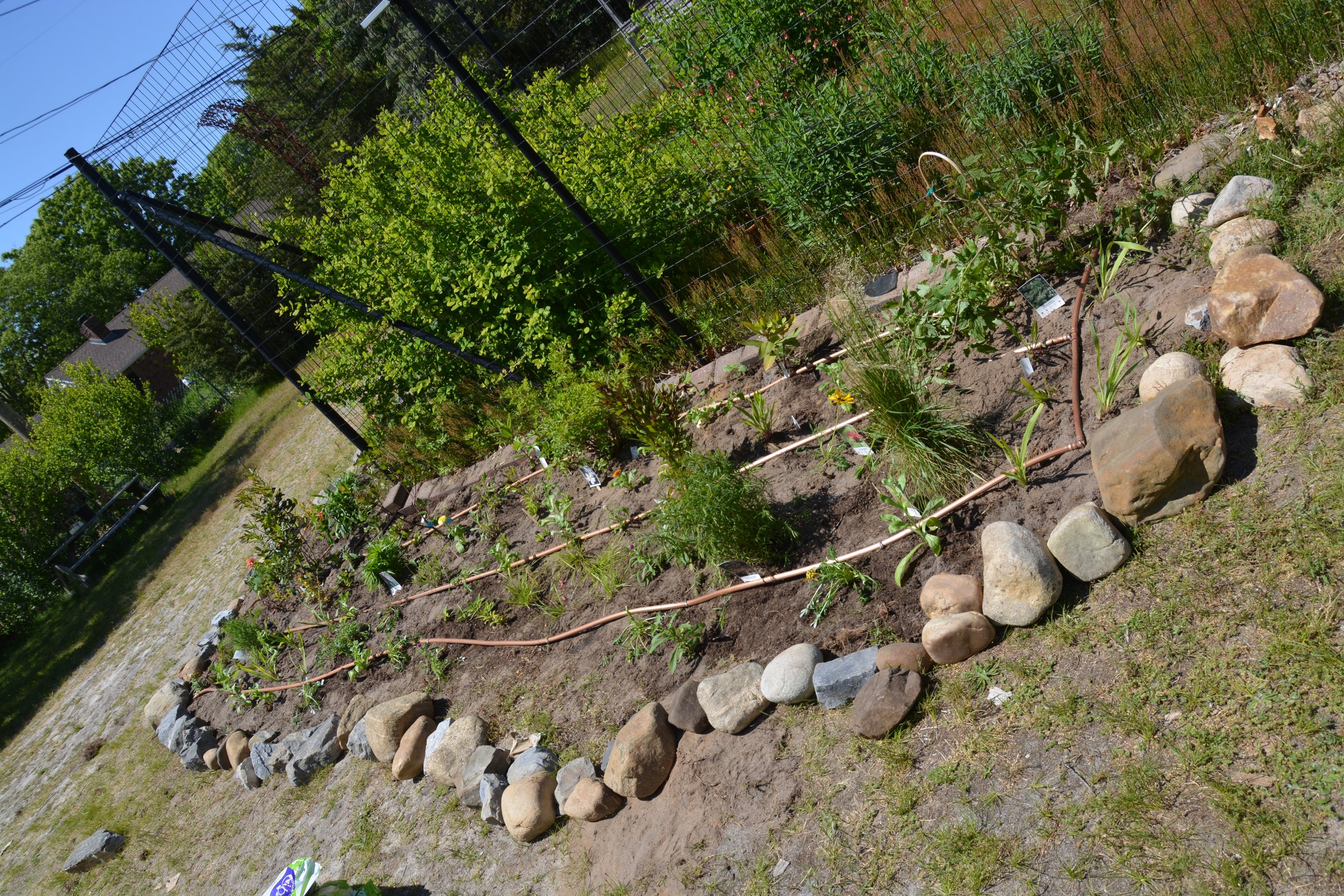

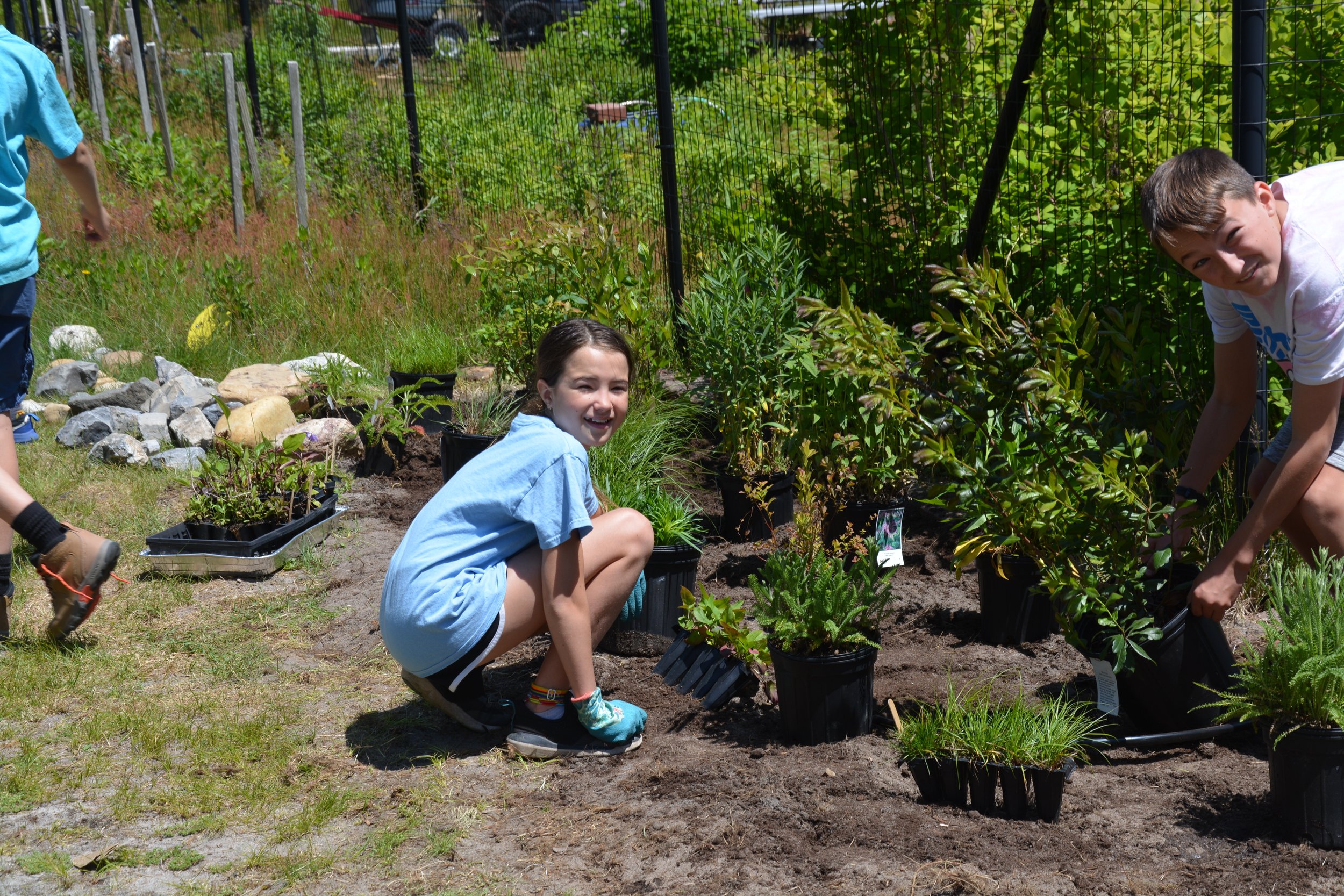
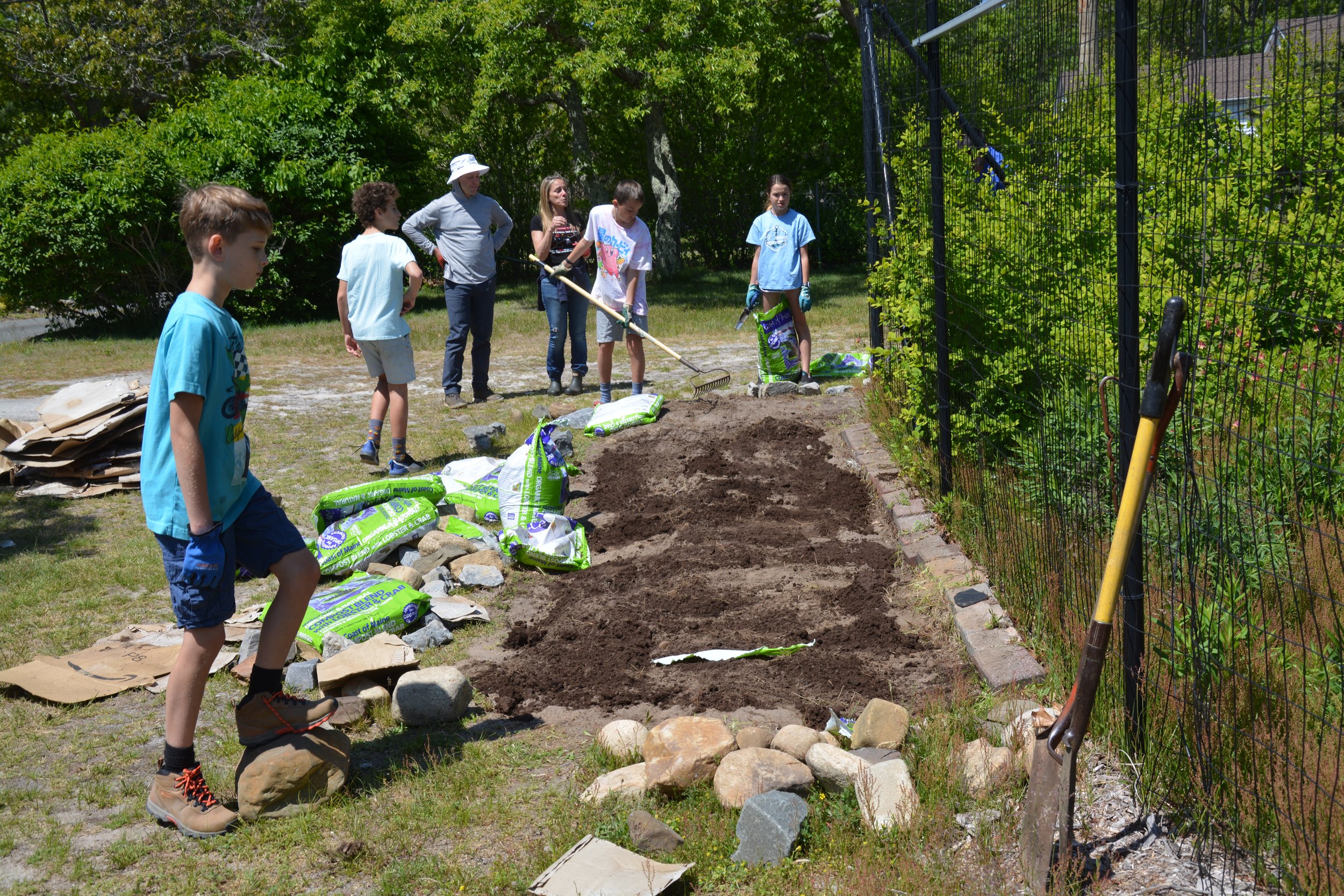
NYS LEAH Homeschool
Located at the Ecological Culture Initiative in Hampton Bays
Written by Marilyn McDermott
East End LEAH is a 501(c)(3) Homeschool coop under the broader NYS LEAH (Loving Education At Home) umbrella. Our homeschool kids here on the East End were doing a study on gardening, growing vegetables, soil nutrition, and sustainability, and ReWild presented an opportunity for us to learn more about native plants and how they contribute to the environment.
We often think of sustainability in regard to growing vegetables, but not about growing soil, air, and pollinators! This has been a great learning experience for us and the kids have enjoyed being in the garden and seeing the fruits of their labors from preparing the ground to planting. By partnering with ReWild, ECI and St. Joseph's Villa, the kids are able to participate with three organizations who are all about native plants, sustainable gardening, and pollinators.
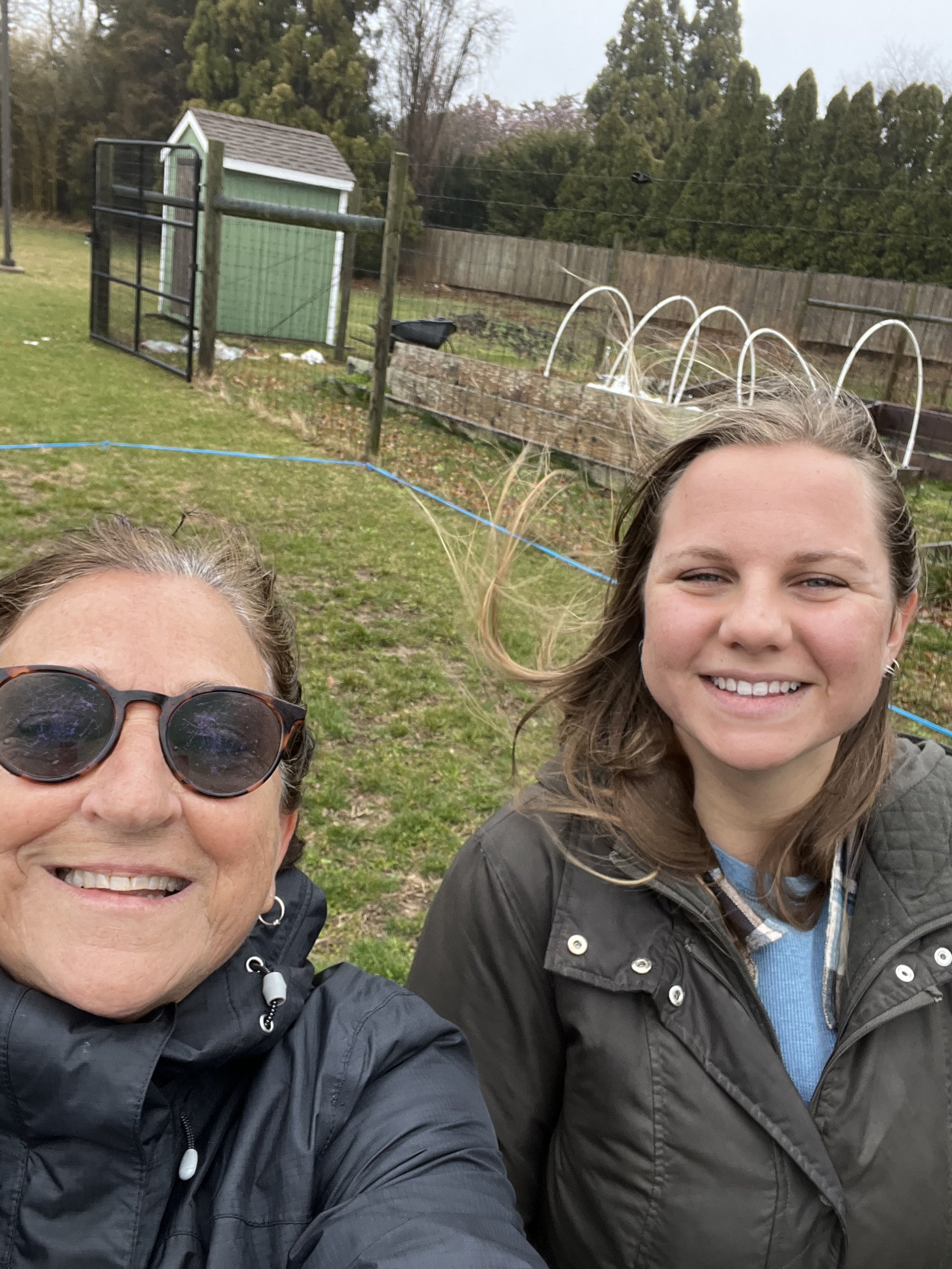
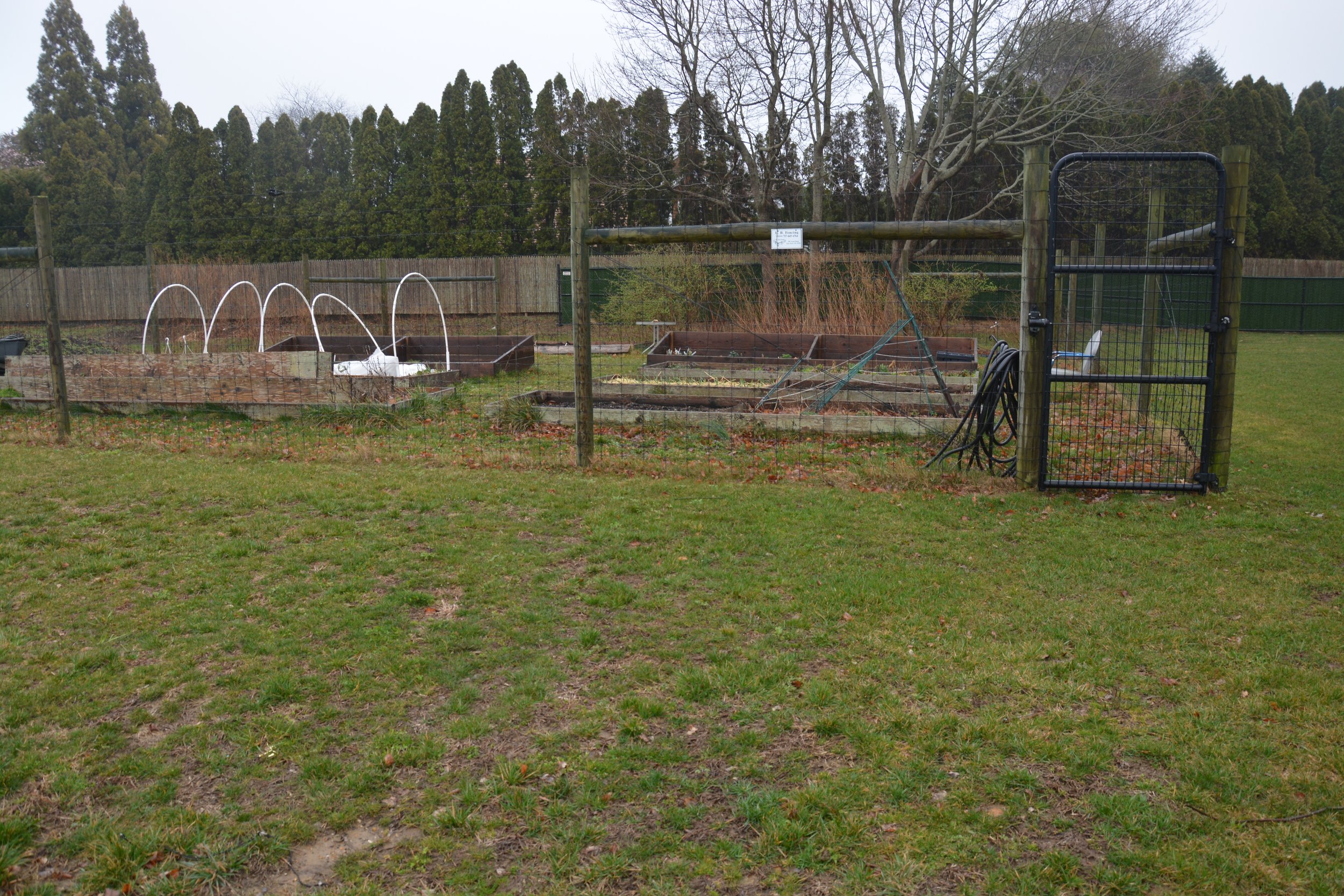
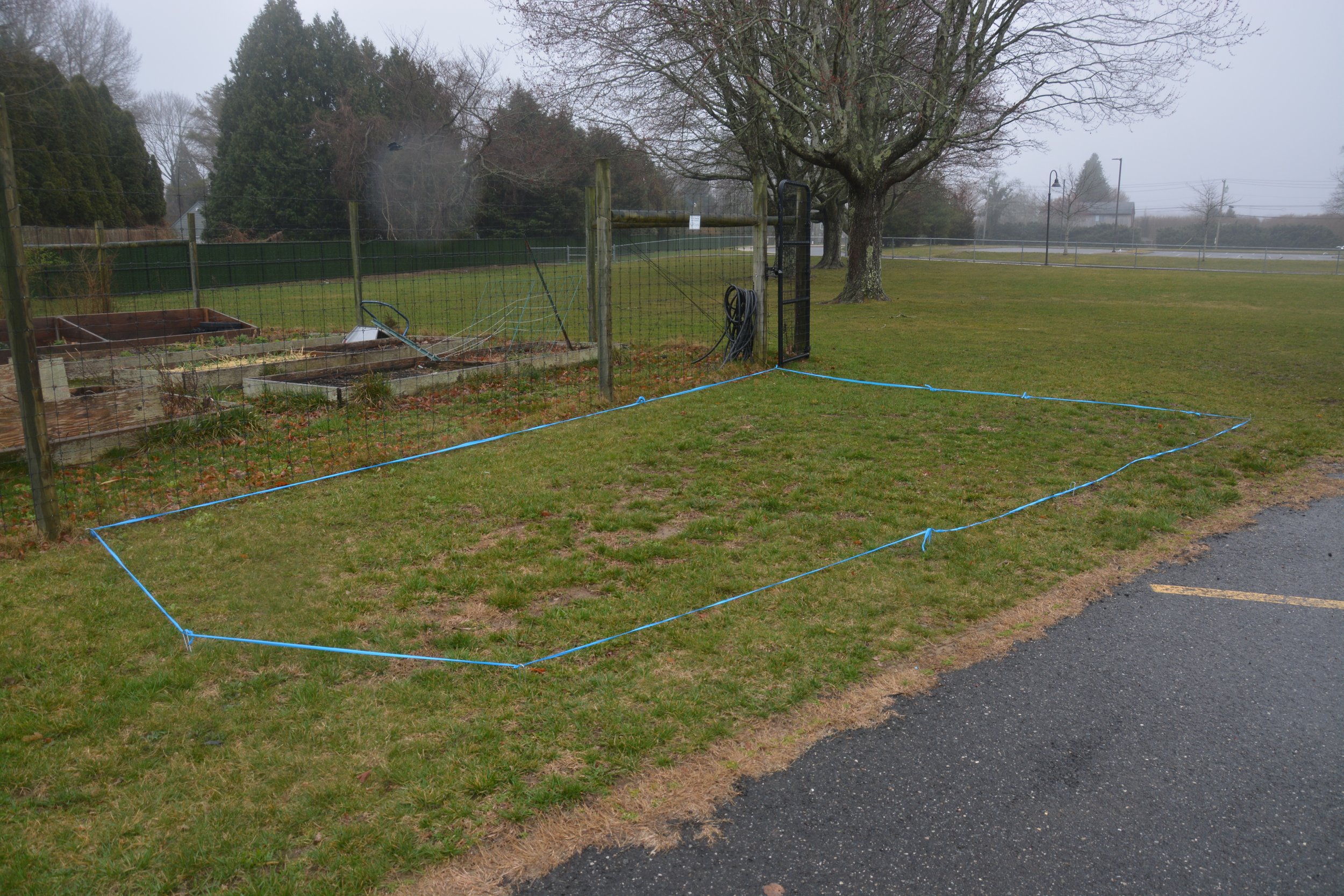
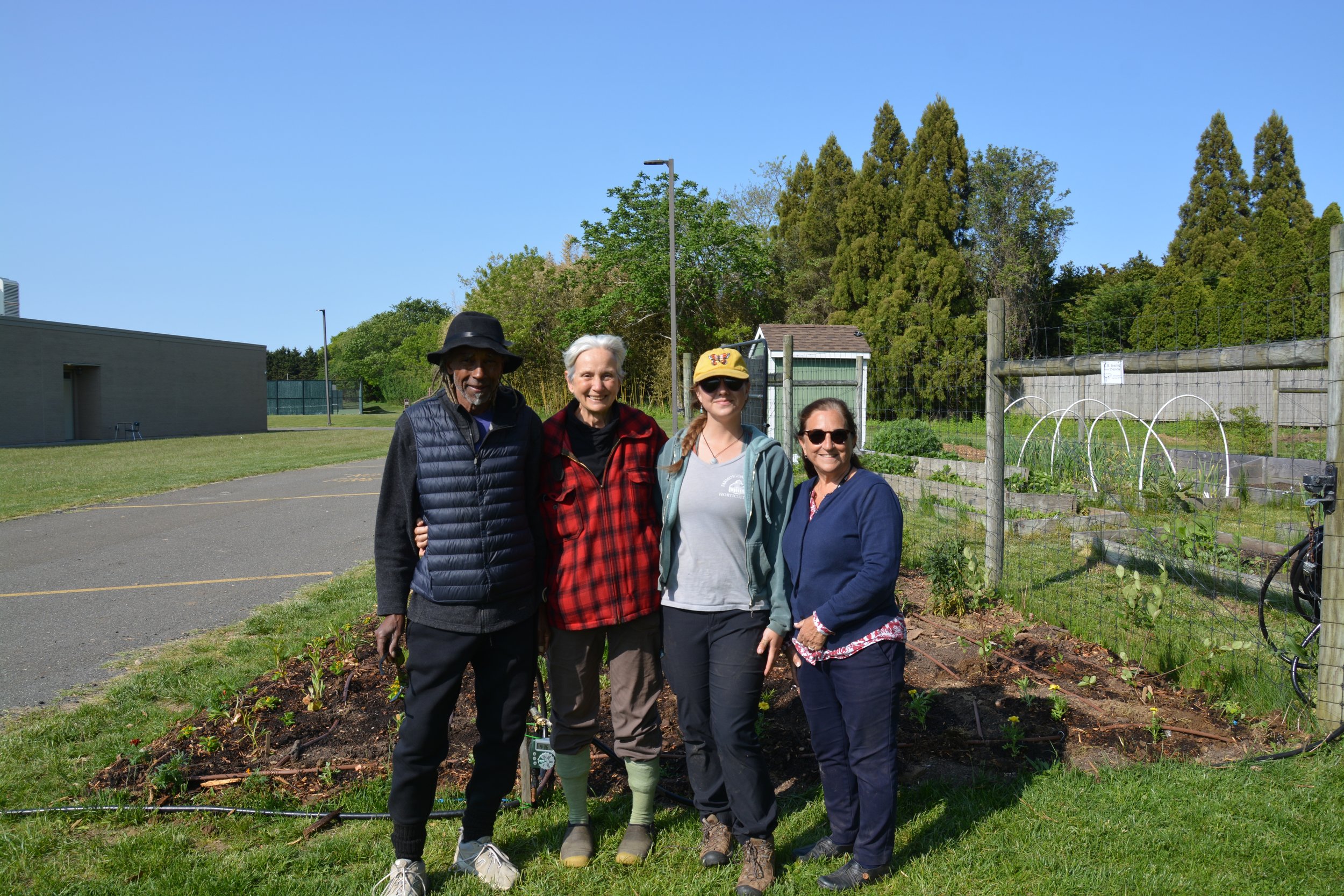
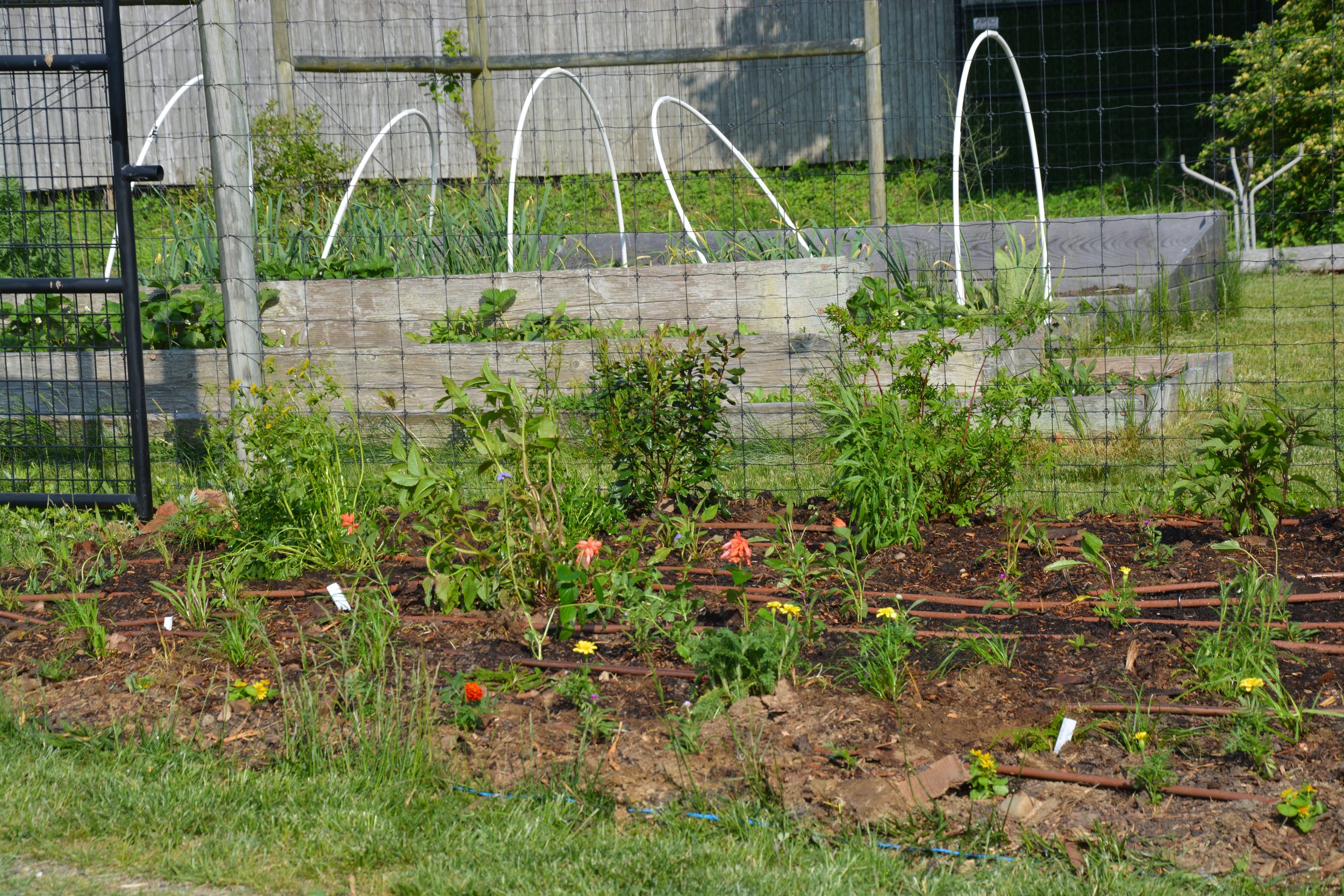
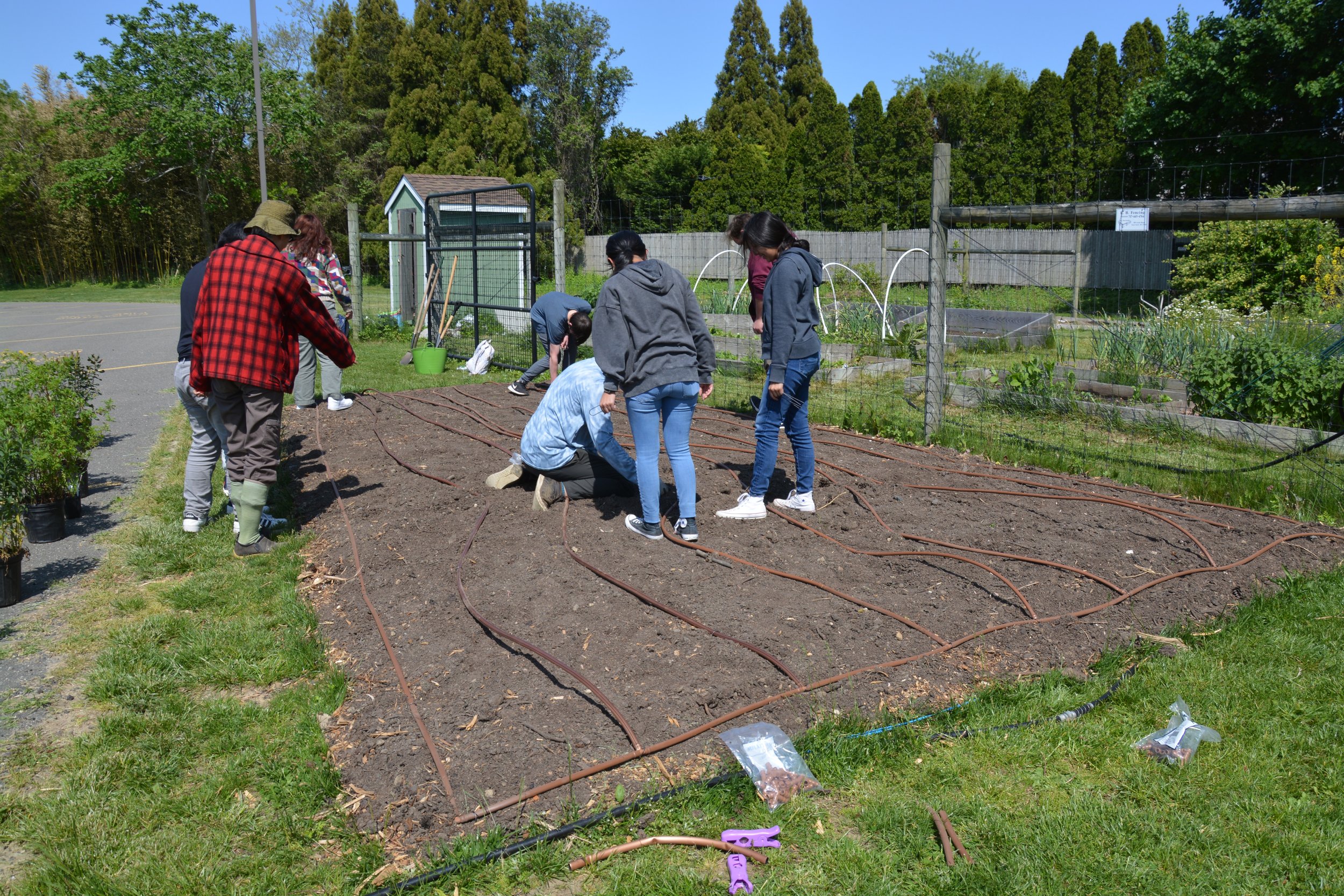
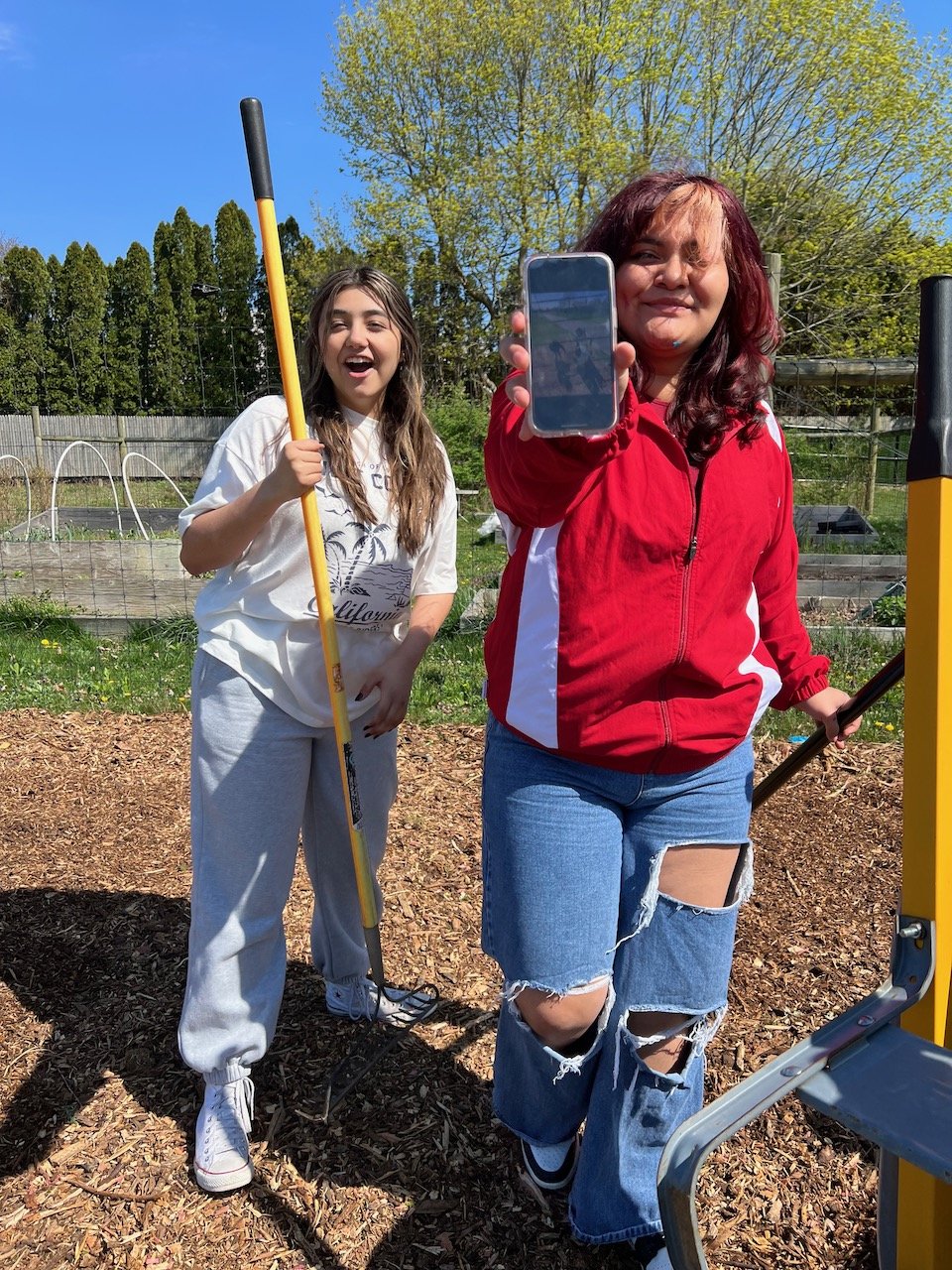
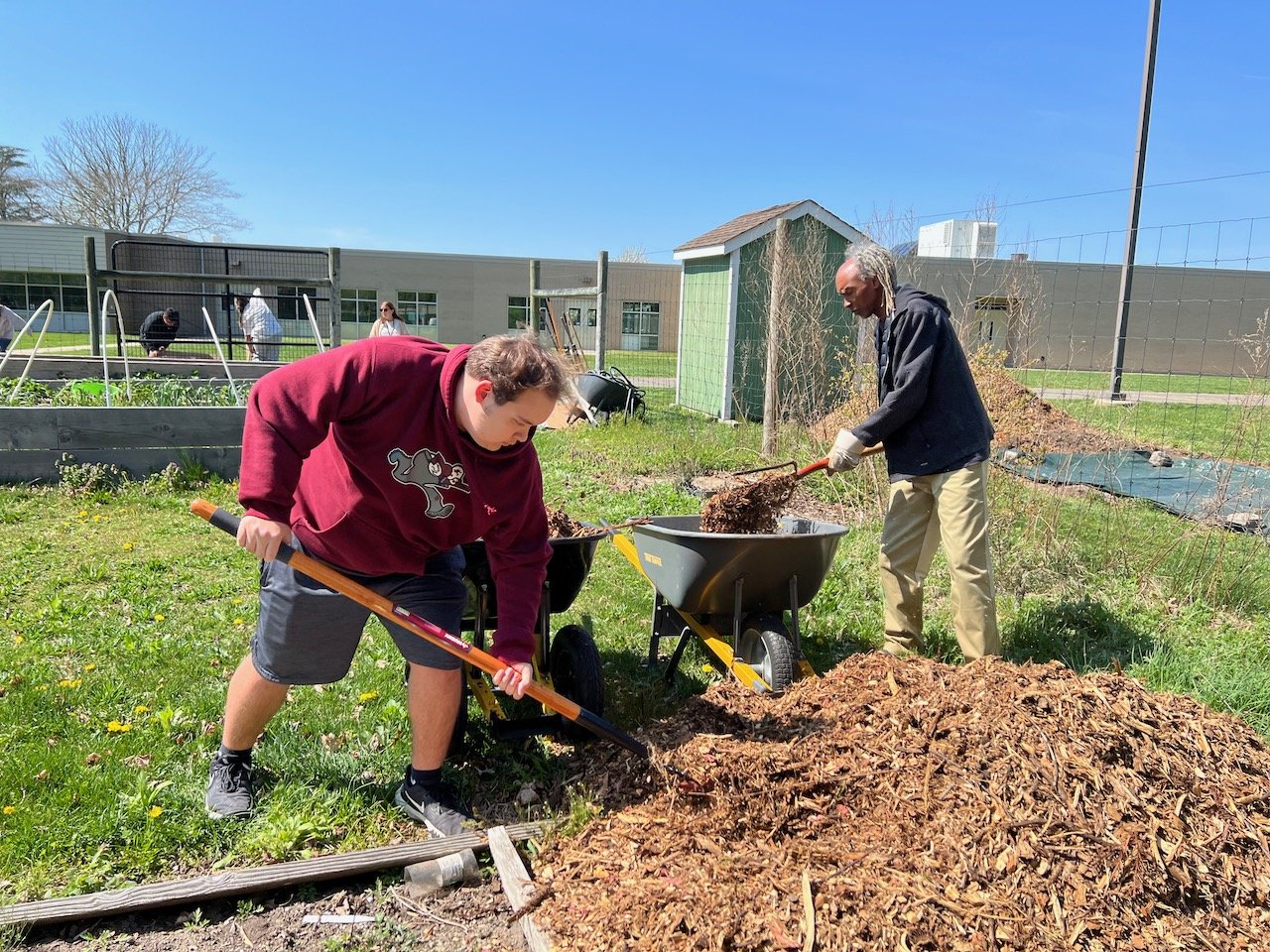
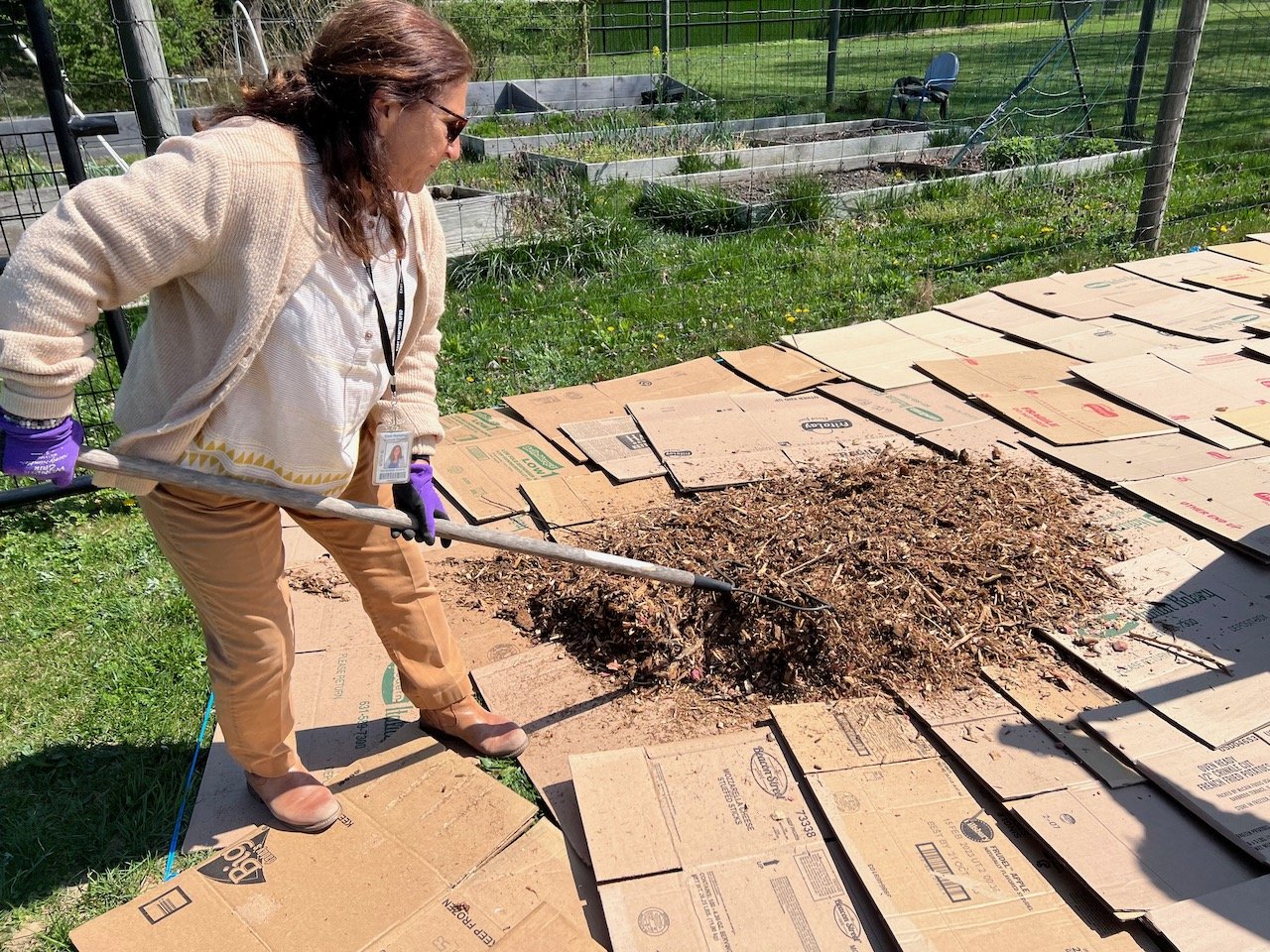
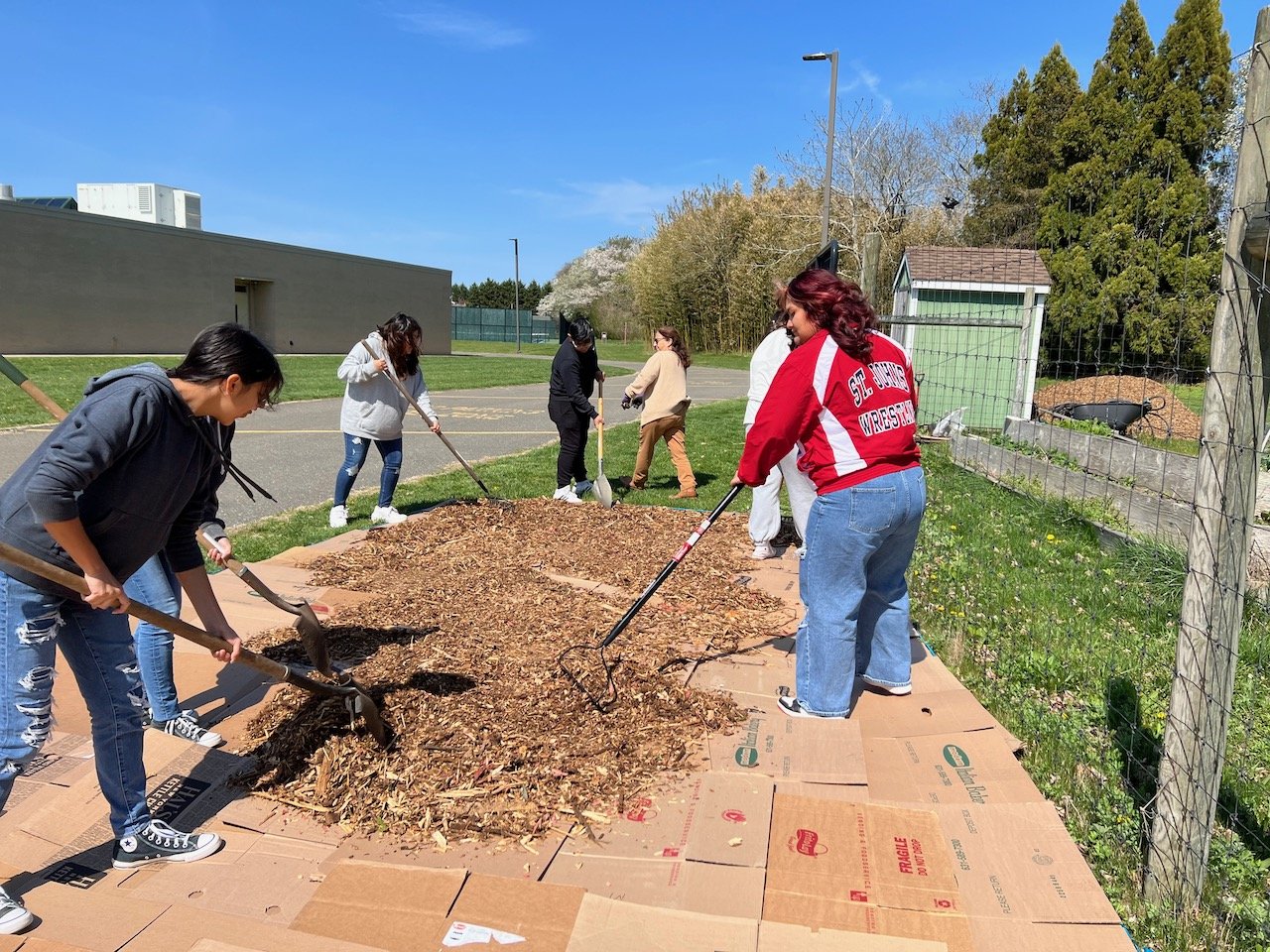
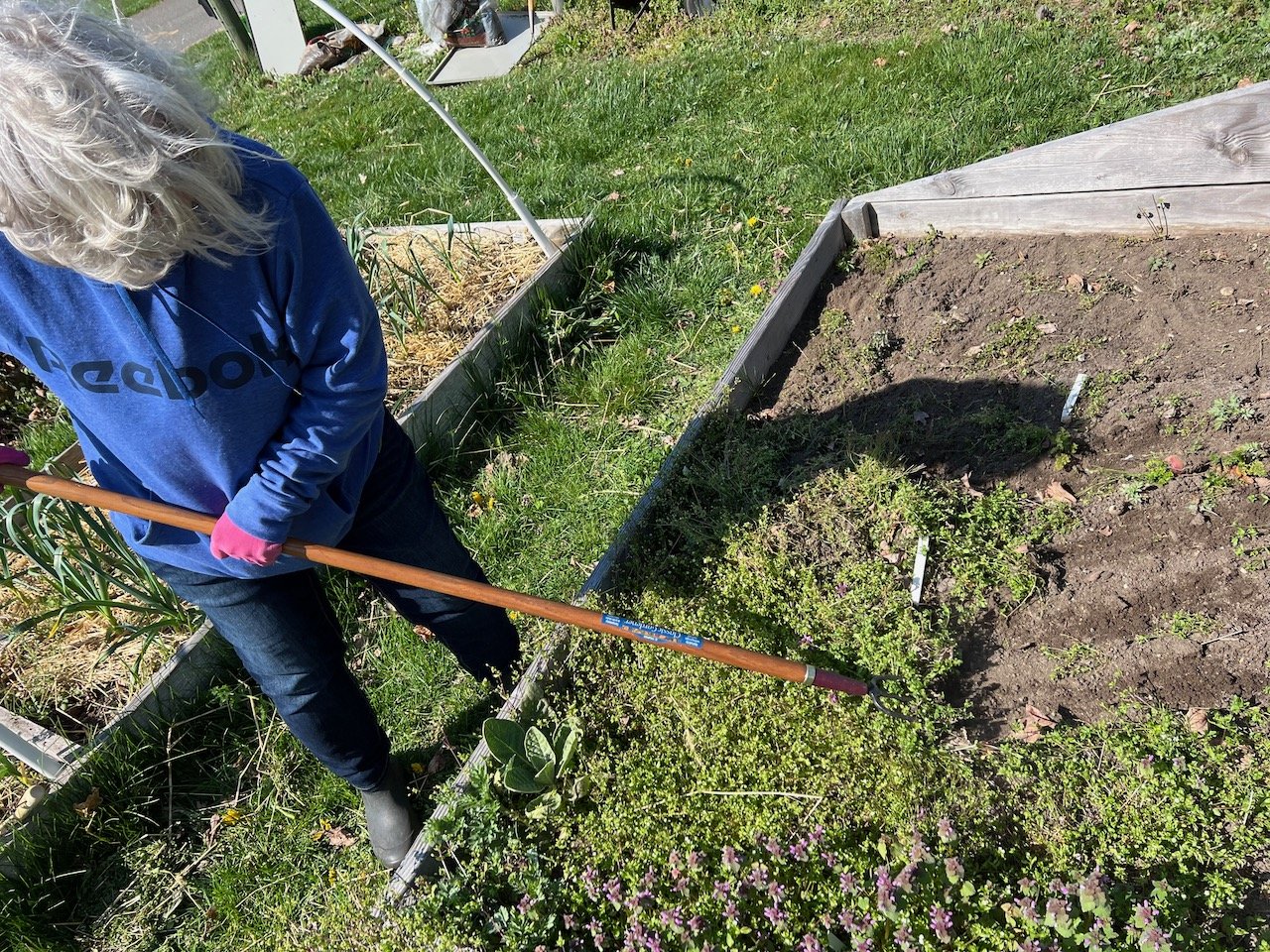
Environmental awareness club & garden club
Located at East Hampton High School
Currently missing more info.

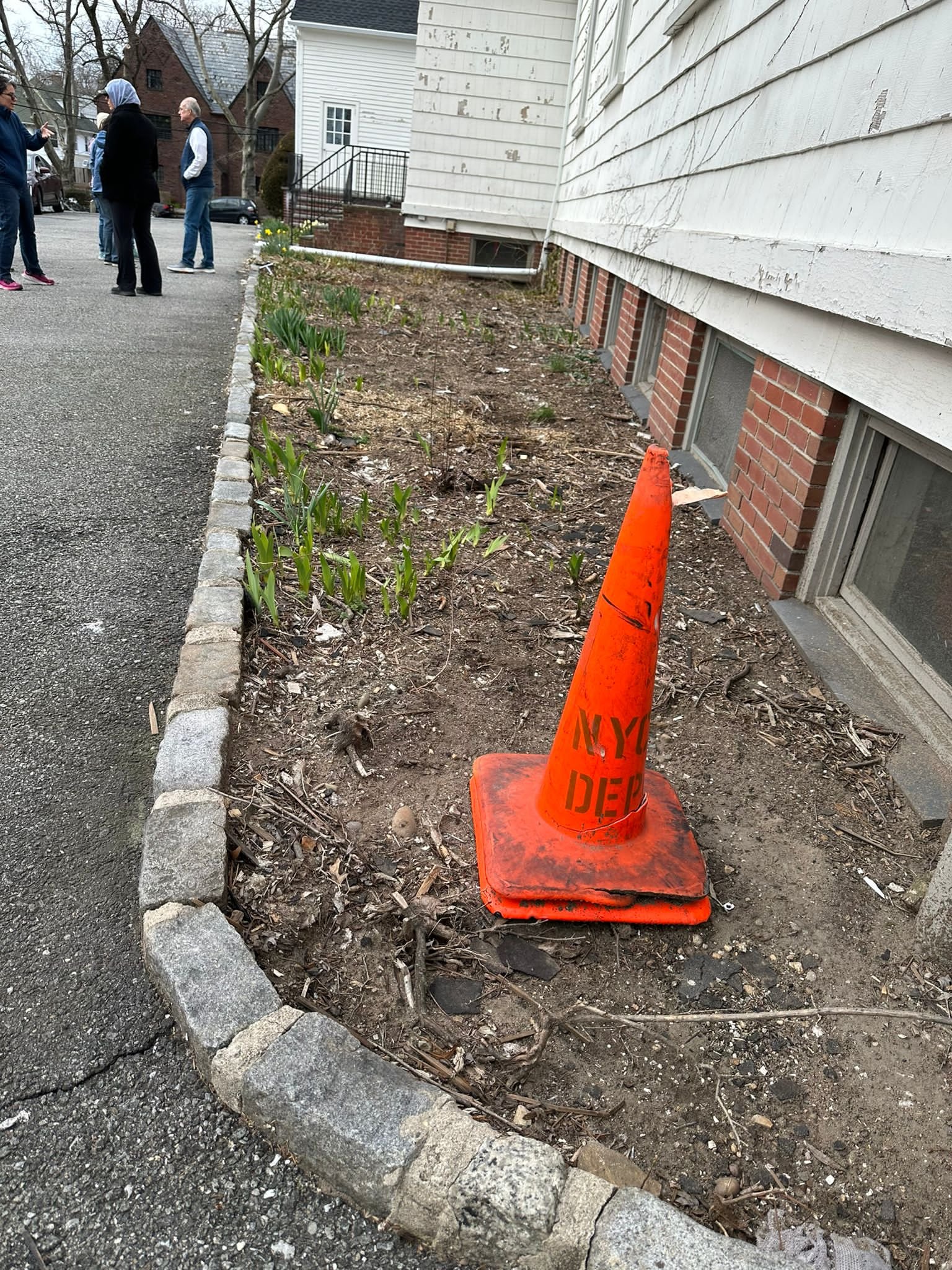
Zion garden team
Located at the Zion Episcopal Church
Written by The Reverend Lindsay Lunnum
Zion Episcopal Church in Douglaston has stood proudly on a hill in northeastern Queens for 193 years. We believe that the Earth is a gift that God has entrusted us to care for and love, and that our well-being is inextricably linked to the health of this planet.
When we installed a new roof last summer, it created the opportunity to re landscape the flower bed outside of the church. Zion received a grant from Re:Wild Long Island's Gardens Program this spring and in June we planted a garden full of native and pollinator-friendly plants. It is our hope that the bees who live in the hives kept on our property will appreciate our garden!
Our historic churchyard is open to all. We have a playground, a labyrinth, bee hives, a cemetery, and now a native garden! We invite our neighbors to learn along with us as we discover new ways to love and care for God's creation.
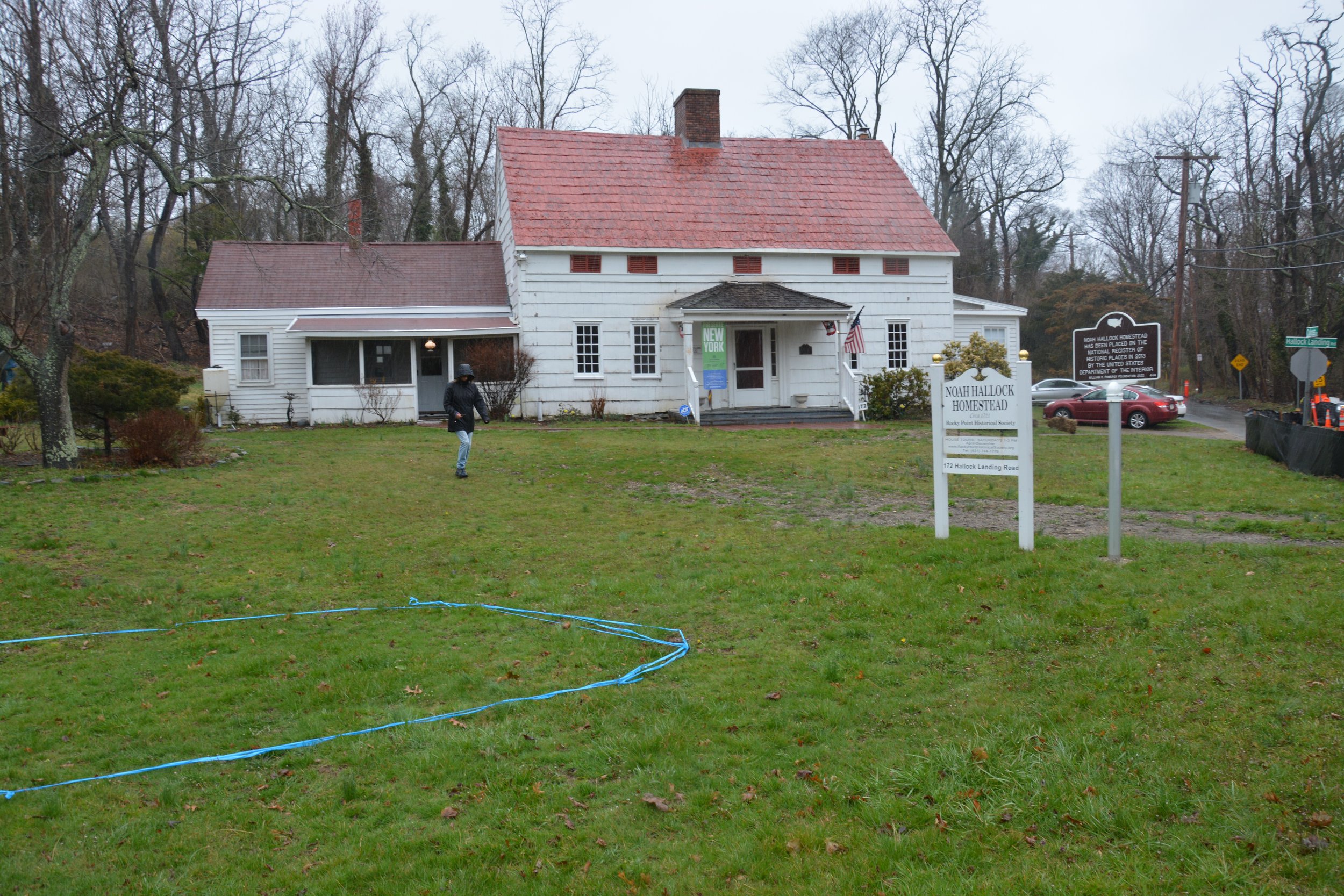
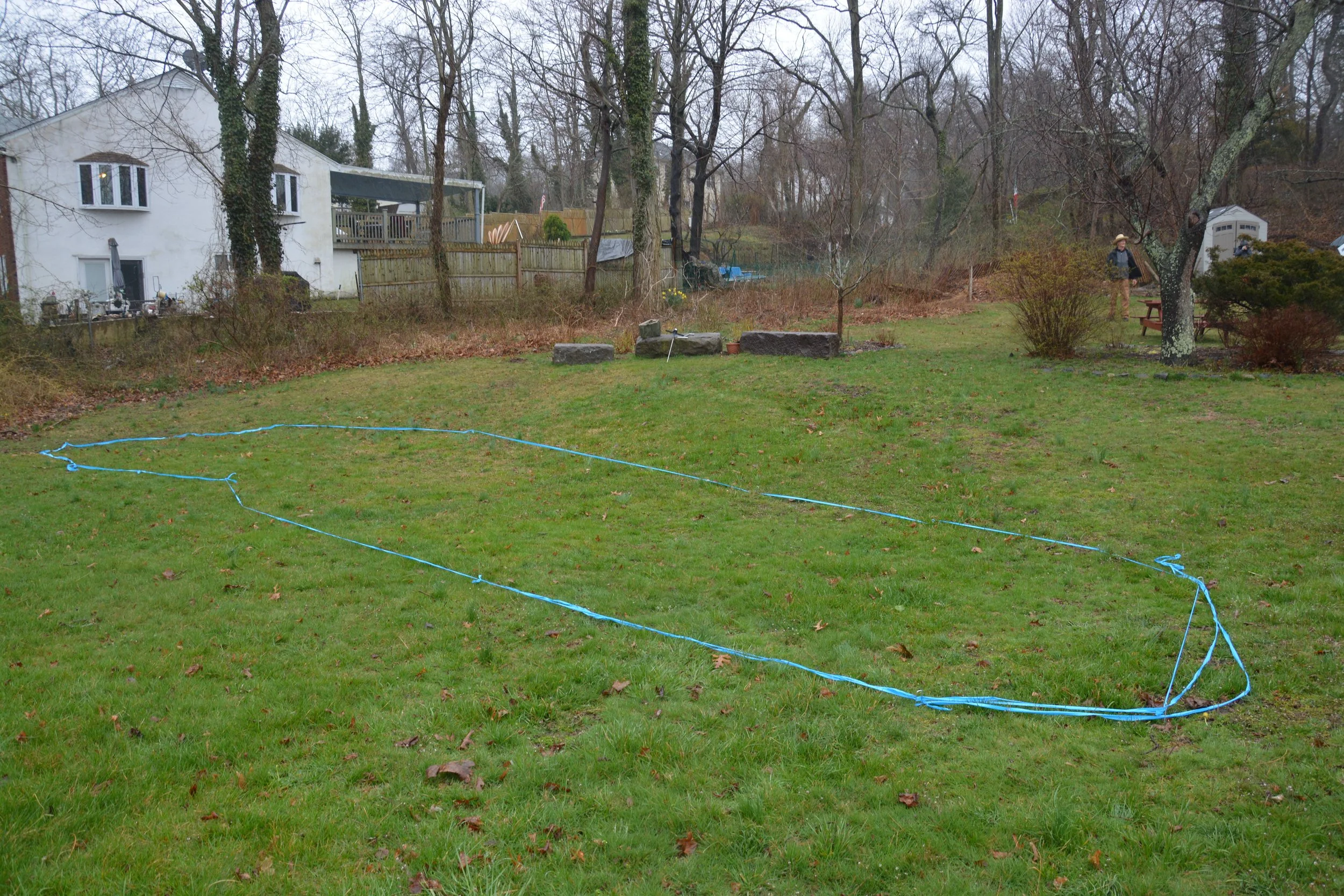

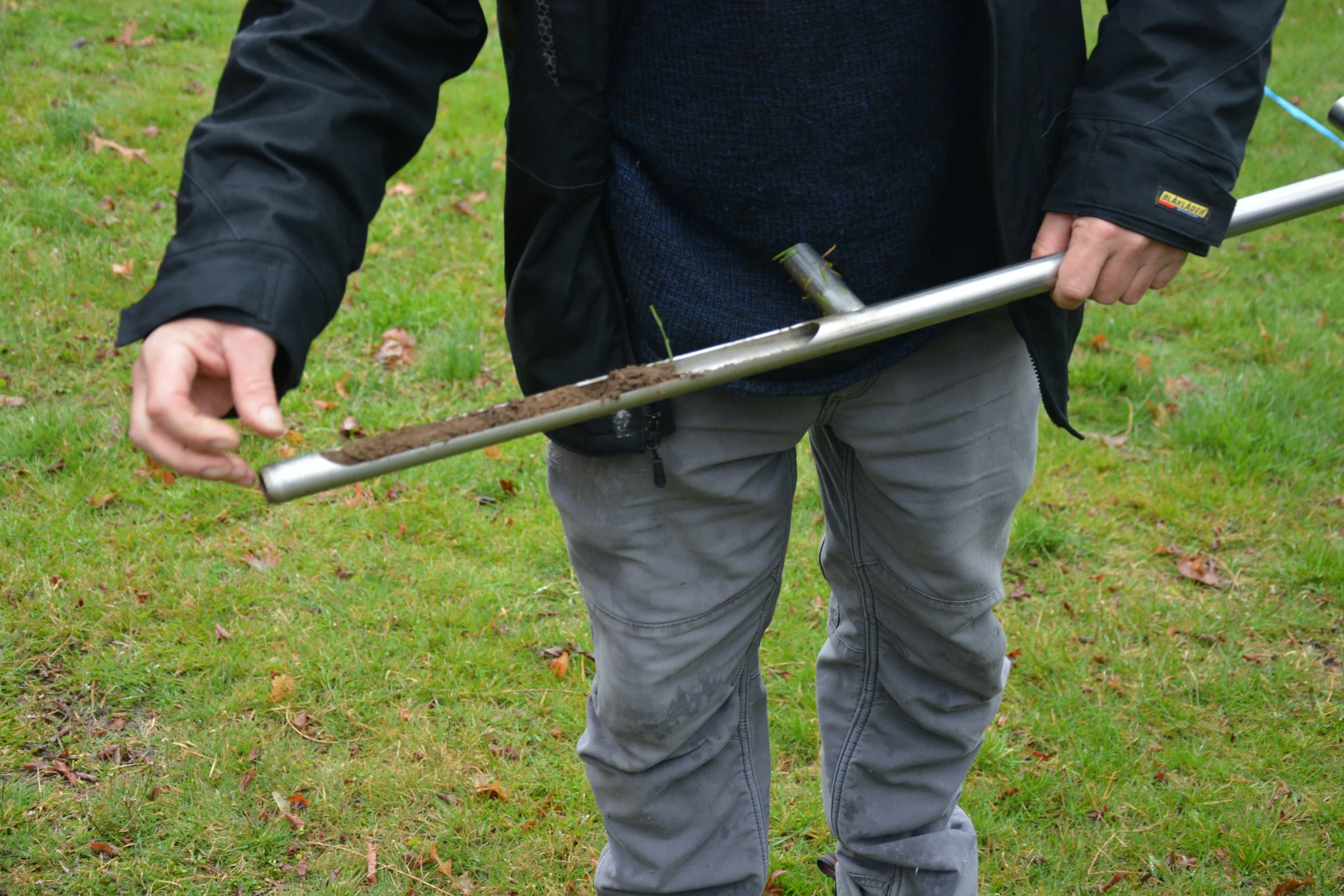
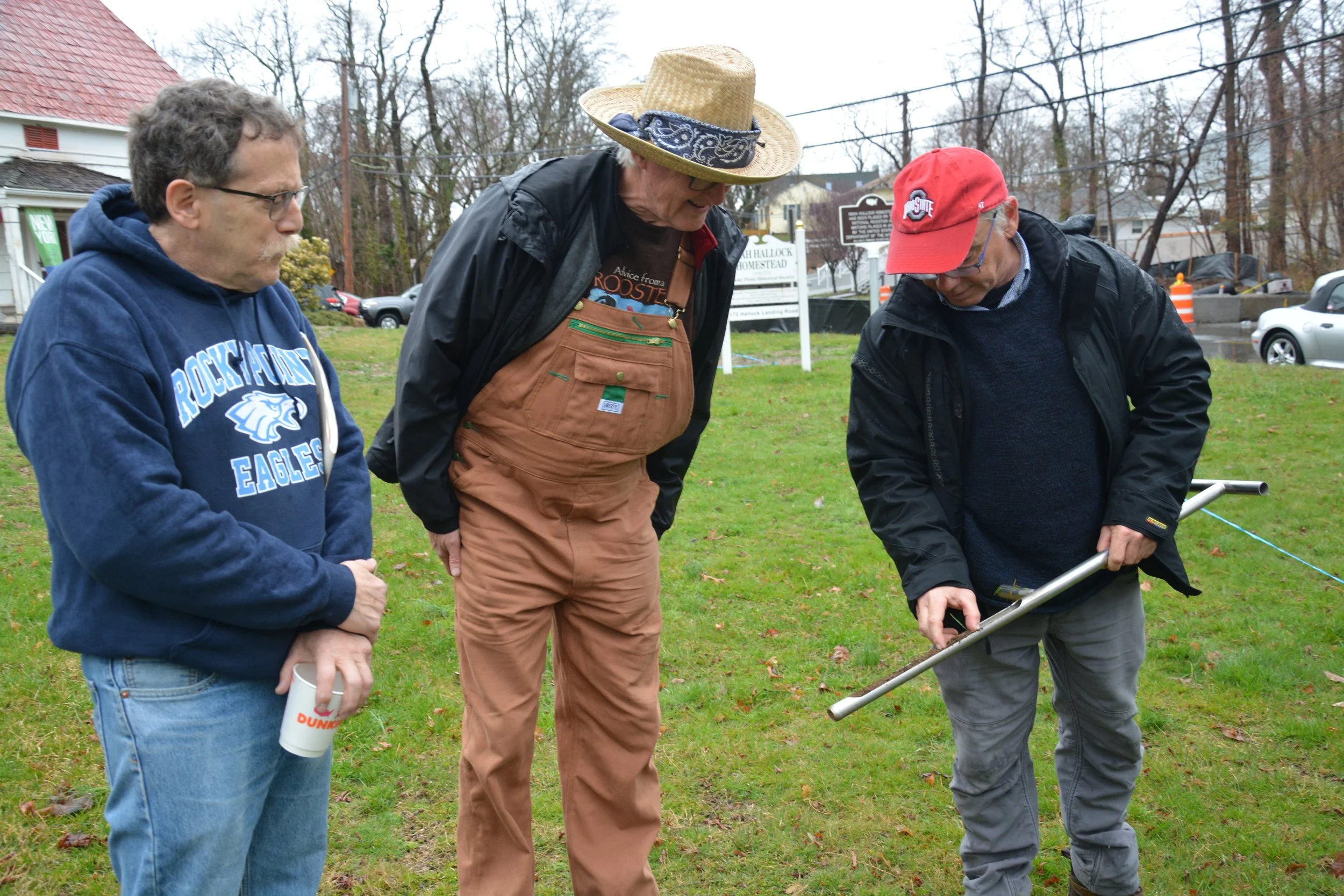
Rocky point gardening committee
Located at the Rocky Point Historical Society
Currently missing more info.
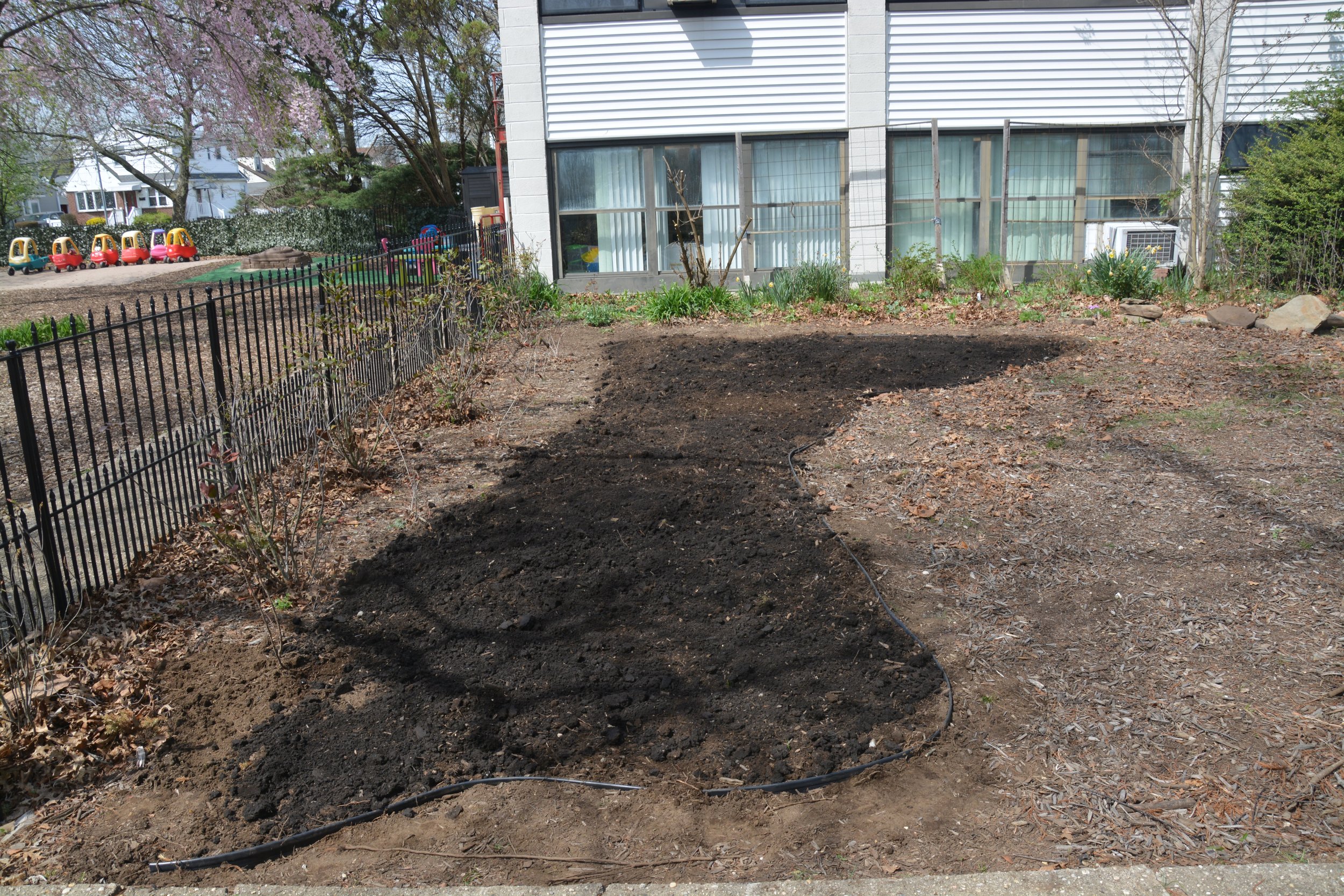

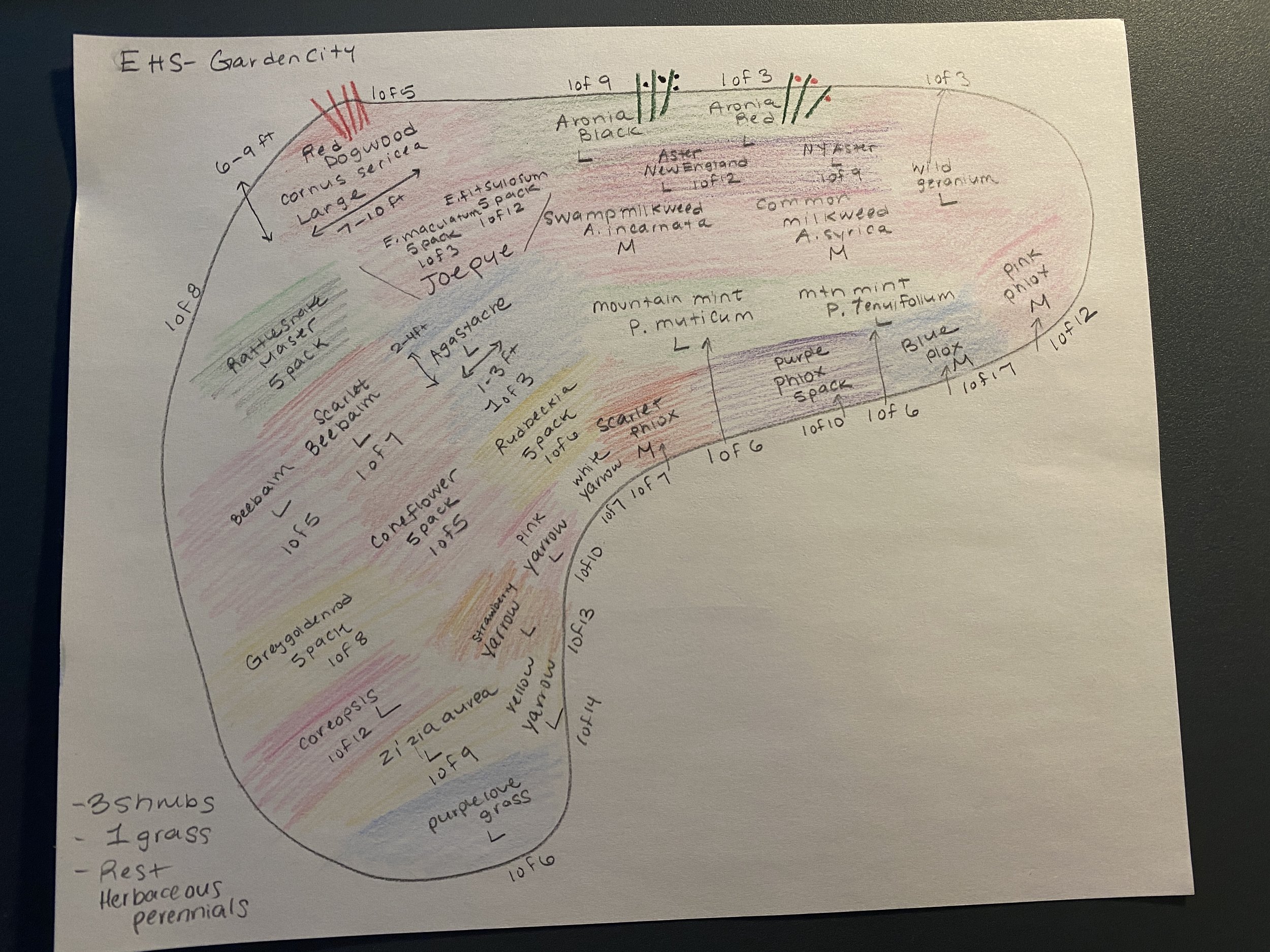
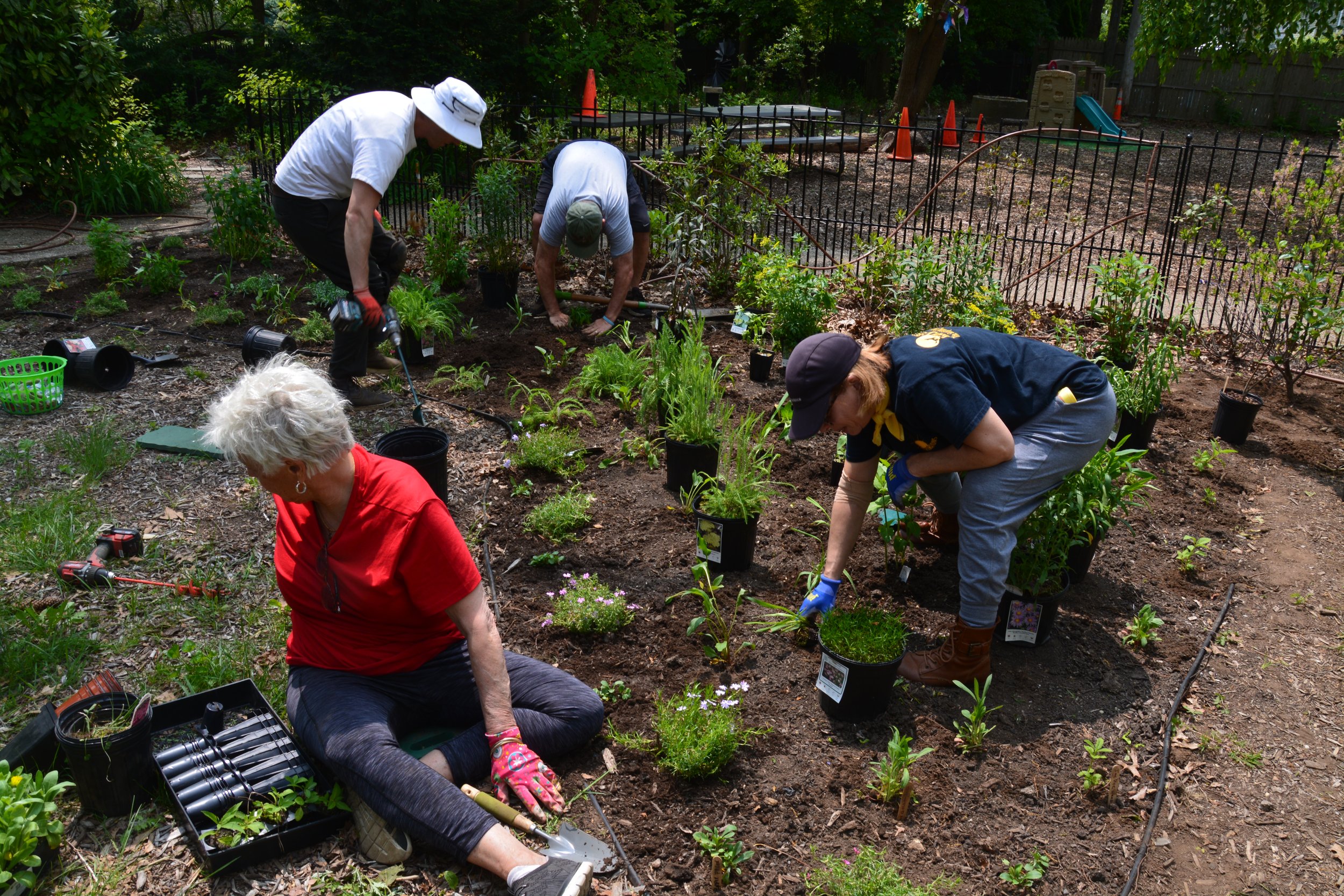
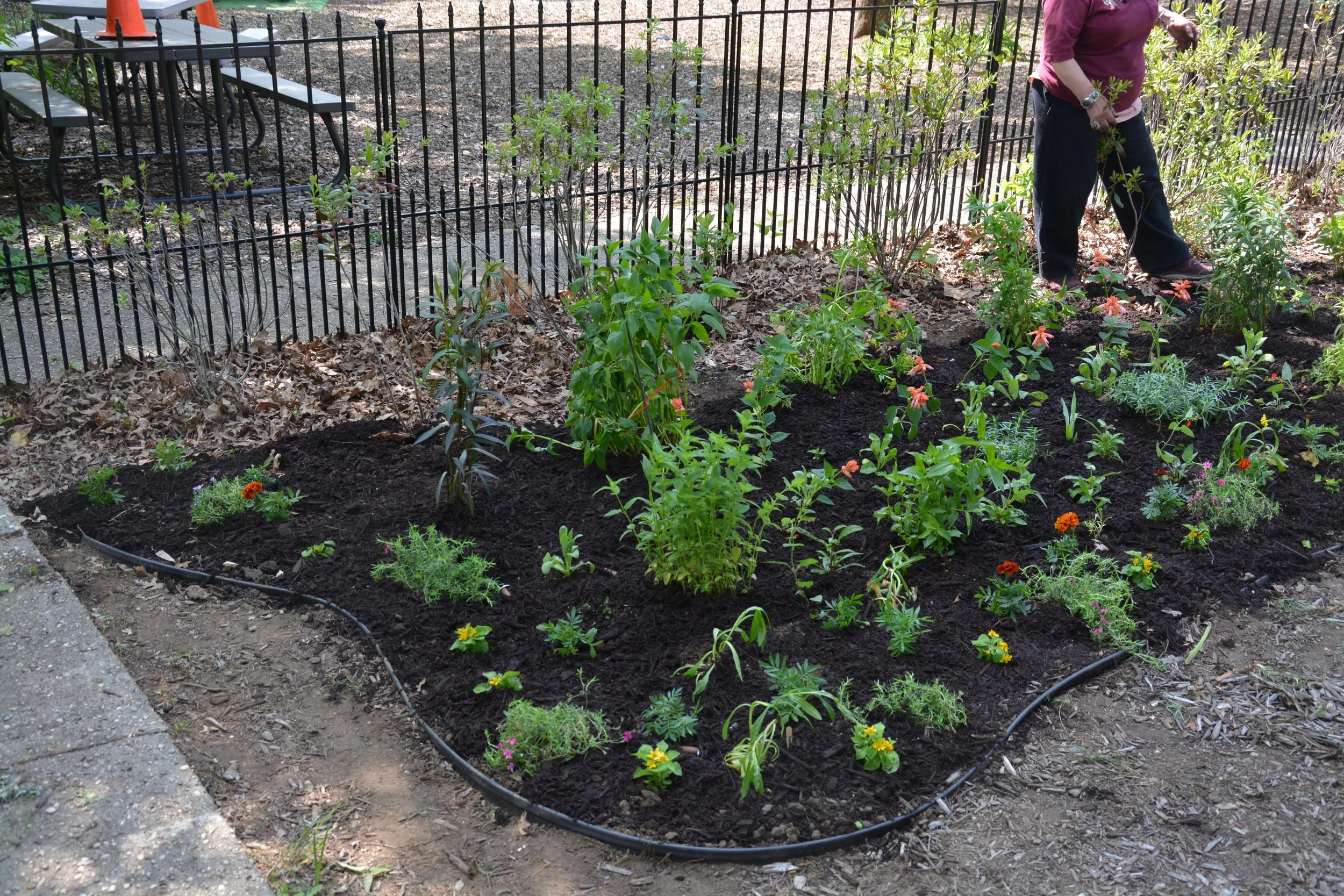
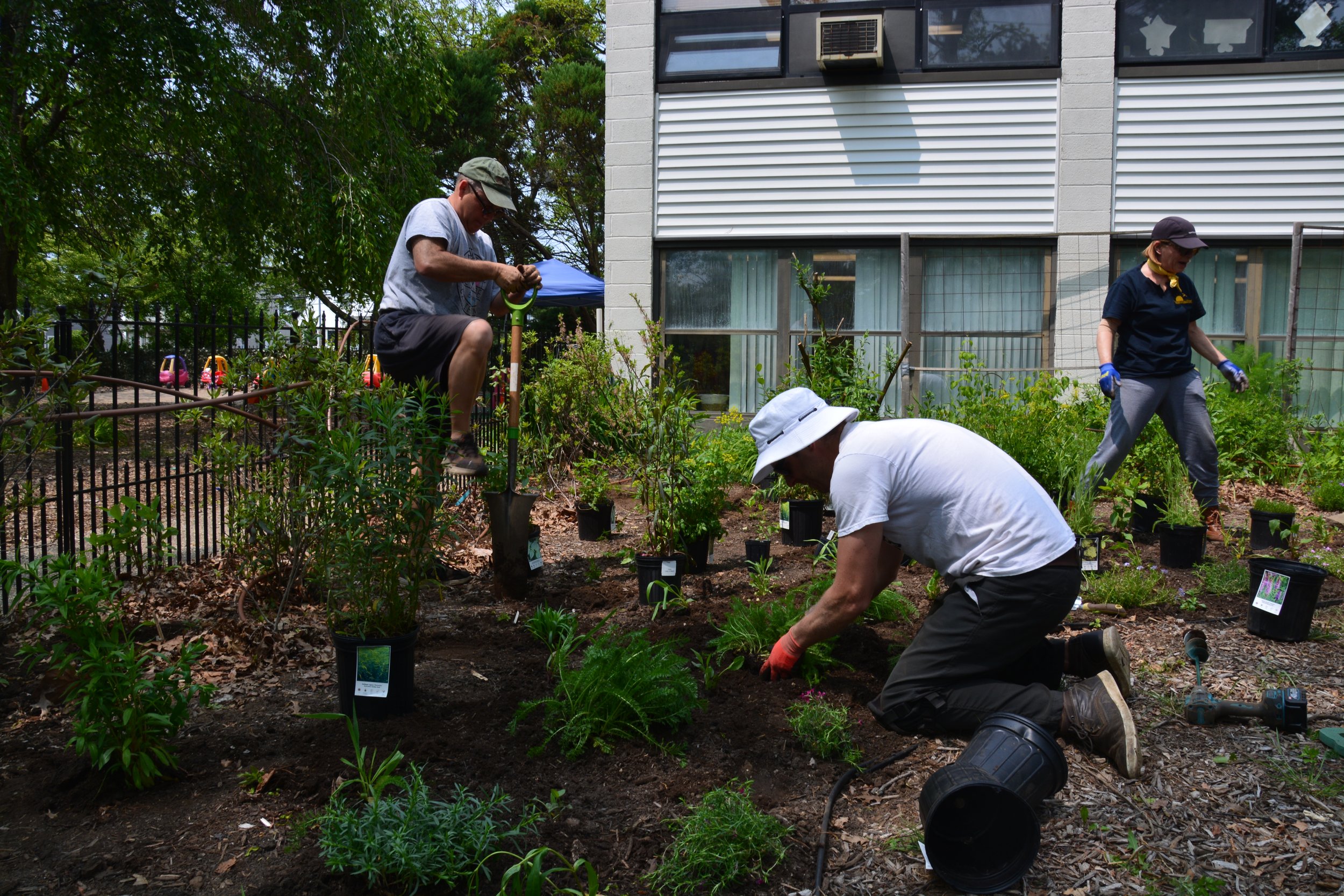
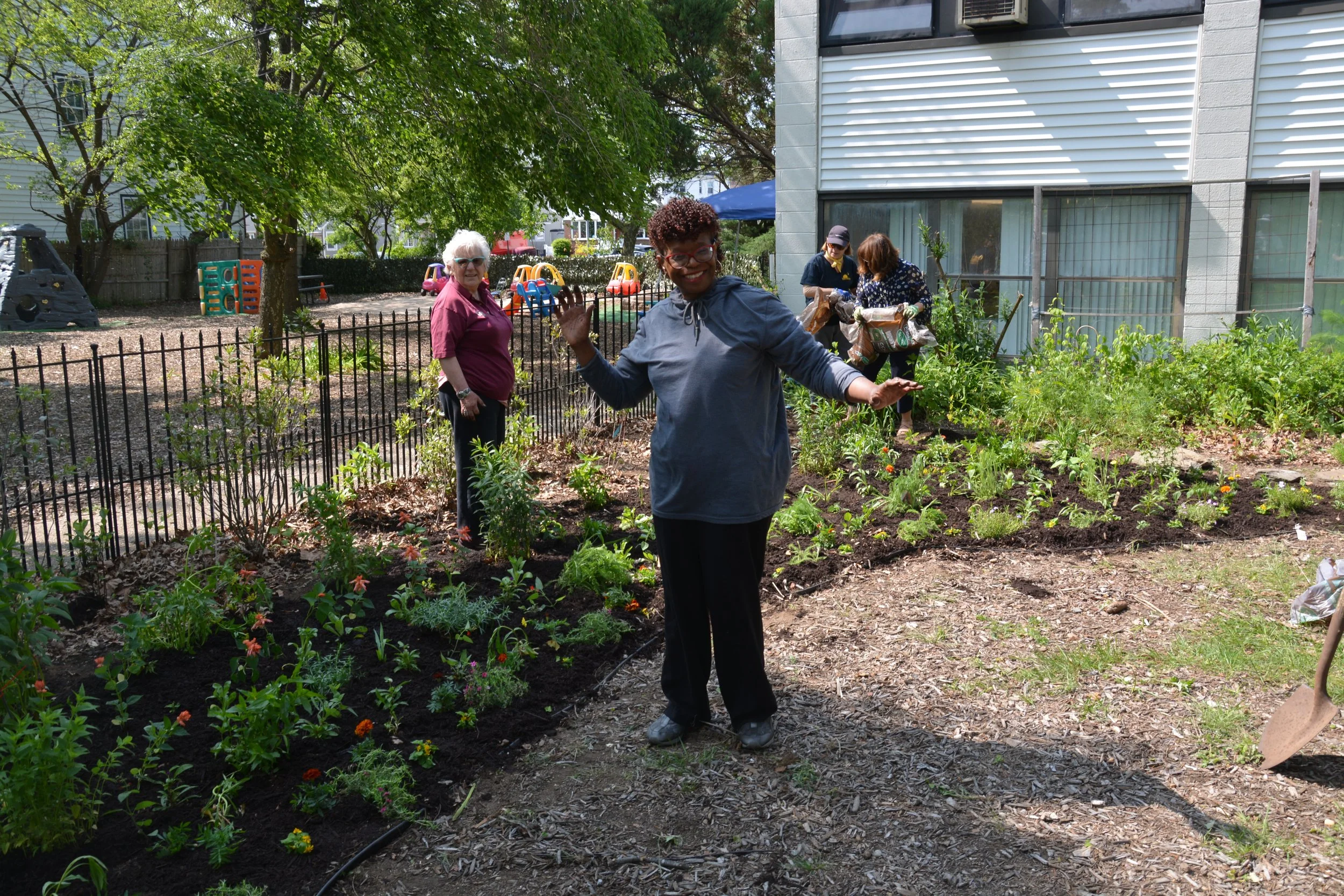
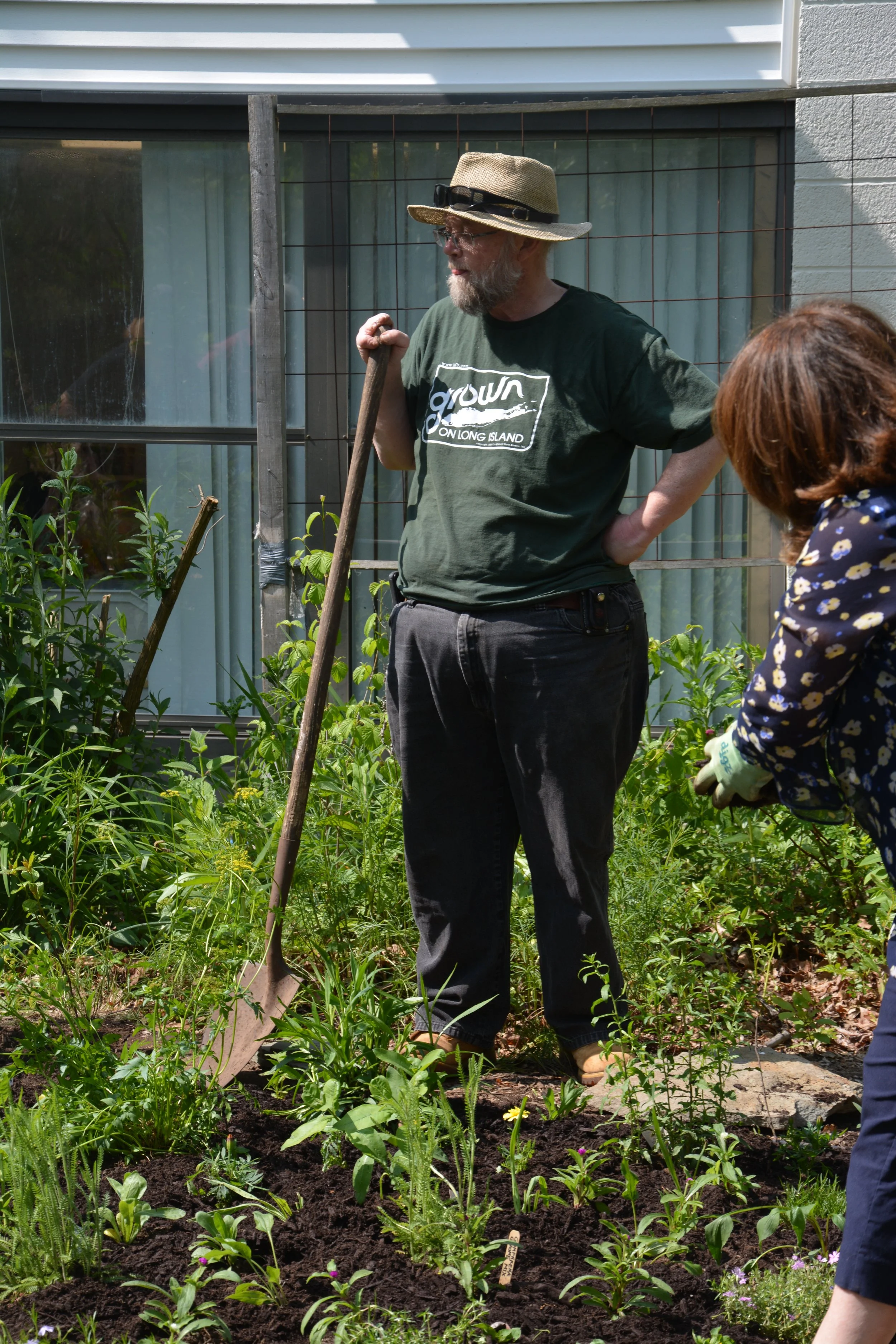

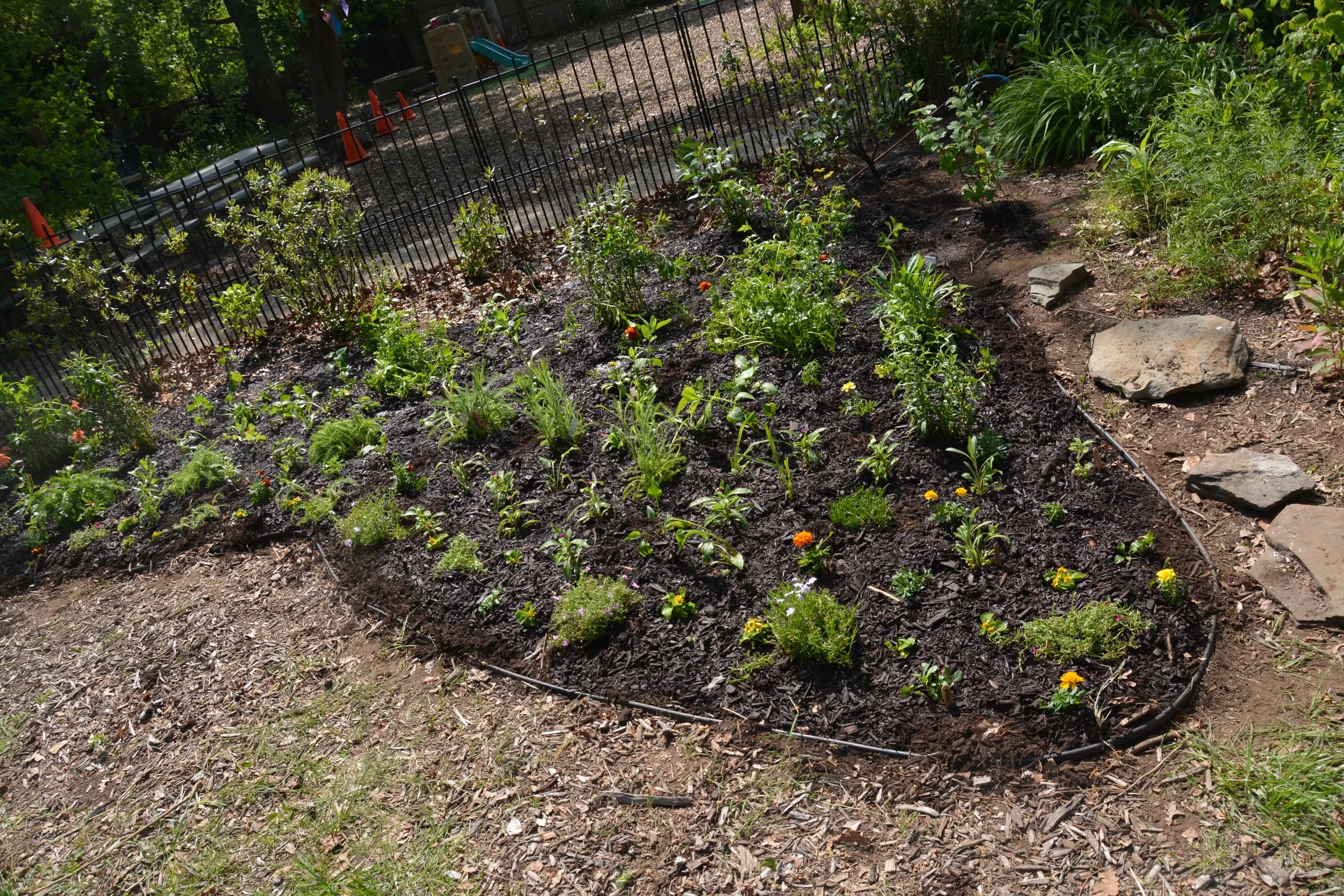

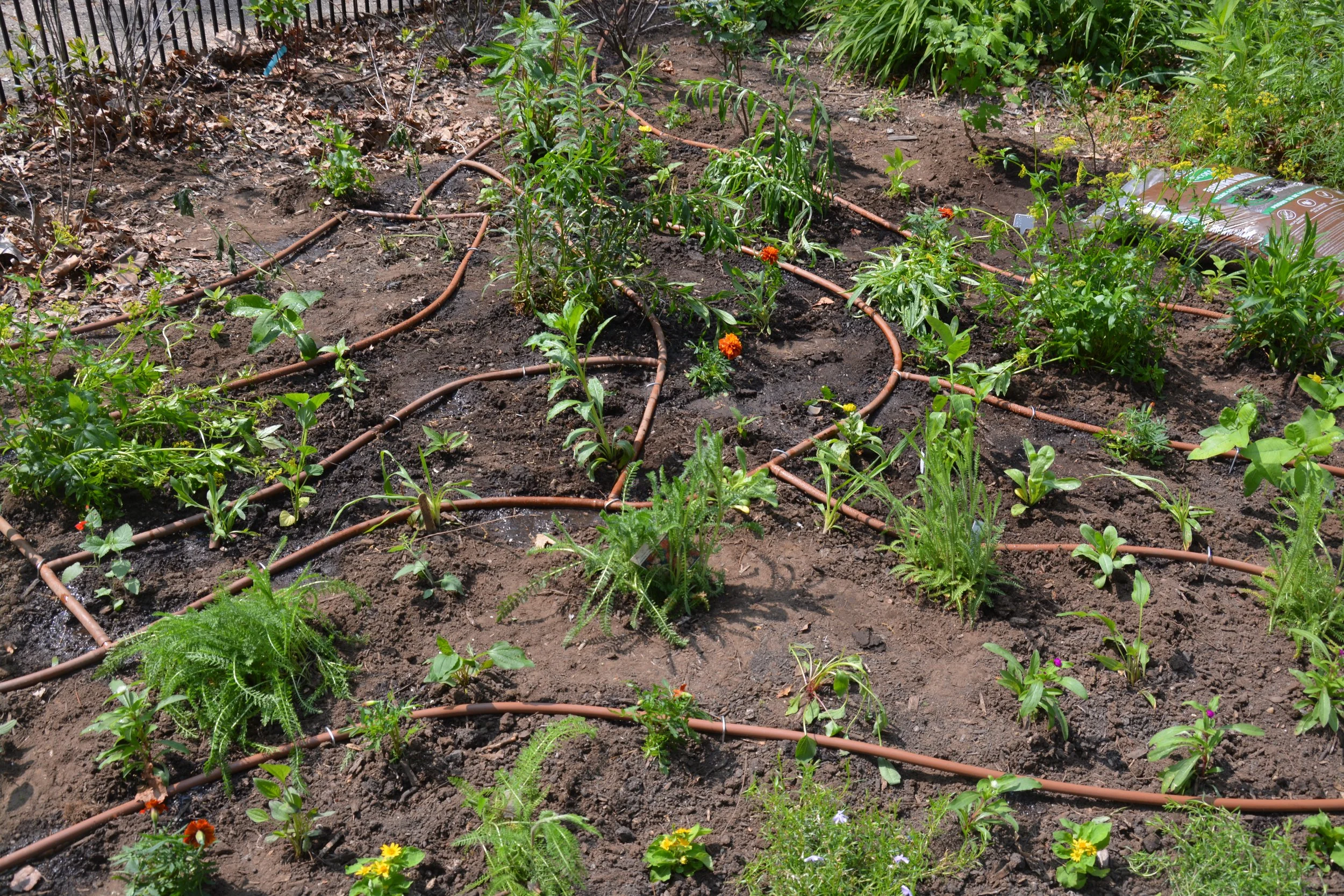
Ethical humanist society green committee
Located at the Ethical Humanist Society of Long Island
Written by Anitra Pavlico and Lorraine Zeller-Agostino
One of the key beliefs embraced by The Ethical Humanist Society of Long Island is in the interdependent connections to all humans, to nature, and to our inner values. We aim to put “deed before creed” and with that in mind, our Board and membership fully supported the plan to restore our backyard gardens with sustainable native plants, trees and shrubs, providing a more balanced ecosystem and in the process supporting native wildlife.
EHSLI was initially inspired to abide by the concept of sustainable gardening practices when we faced a severe flooding issue in our parking lot. Solving the problem successfully with environmentally-positive Rain Gardens, planted with native drought and water-tolerant sustainable species, inspired us to look to the other areas of our grounds. As a result, a garden committee was formed in June 2021.
We first resourced information and advice from ReWild Long Island in 2022 and worked with landscape designers who specialized in sustainable, native landscaping practices, who then cleared out the invasives and planted native species. The lawns were removed and replaced with environmentally friendly wood chips supplied at no cost by local arborists. The ribbon-cutting to what we now call our “The Celebration Garden” was June, 2022.
This past spring our volunteers, with guidance and funding from the ReWild Program, were able to plant and install irrigation to create a new 750 square foot native garden in a featured section of our Celebration Garden, where we hope to host many events. Our garden highlights a focus on environmental stewardship. In addition to caring for others, we are also caring for the Earth--which also of course benefits humans and wildlife.
Anitra Pavlico, member of the Ethical Humanist Society, says, “I personally have realized [through the rewilding process] I want to get more involved with environmental efforts on Long Island, and I recently went to a beach clean-up on Long Beach sponsored by another group. So the process has had ripple effects, you could say.”
Volunteerism and education are an important aspect of our philosophy. Our garden is tended by volunteers and each month we have a featured article about our native garden in our monthly newsletter which reaches over 500 people. With the support and guidance of ReWild LI, we are able to broaden our outreach in educating and involving our membership and the surrounding community in sustainable gardening practices.

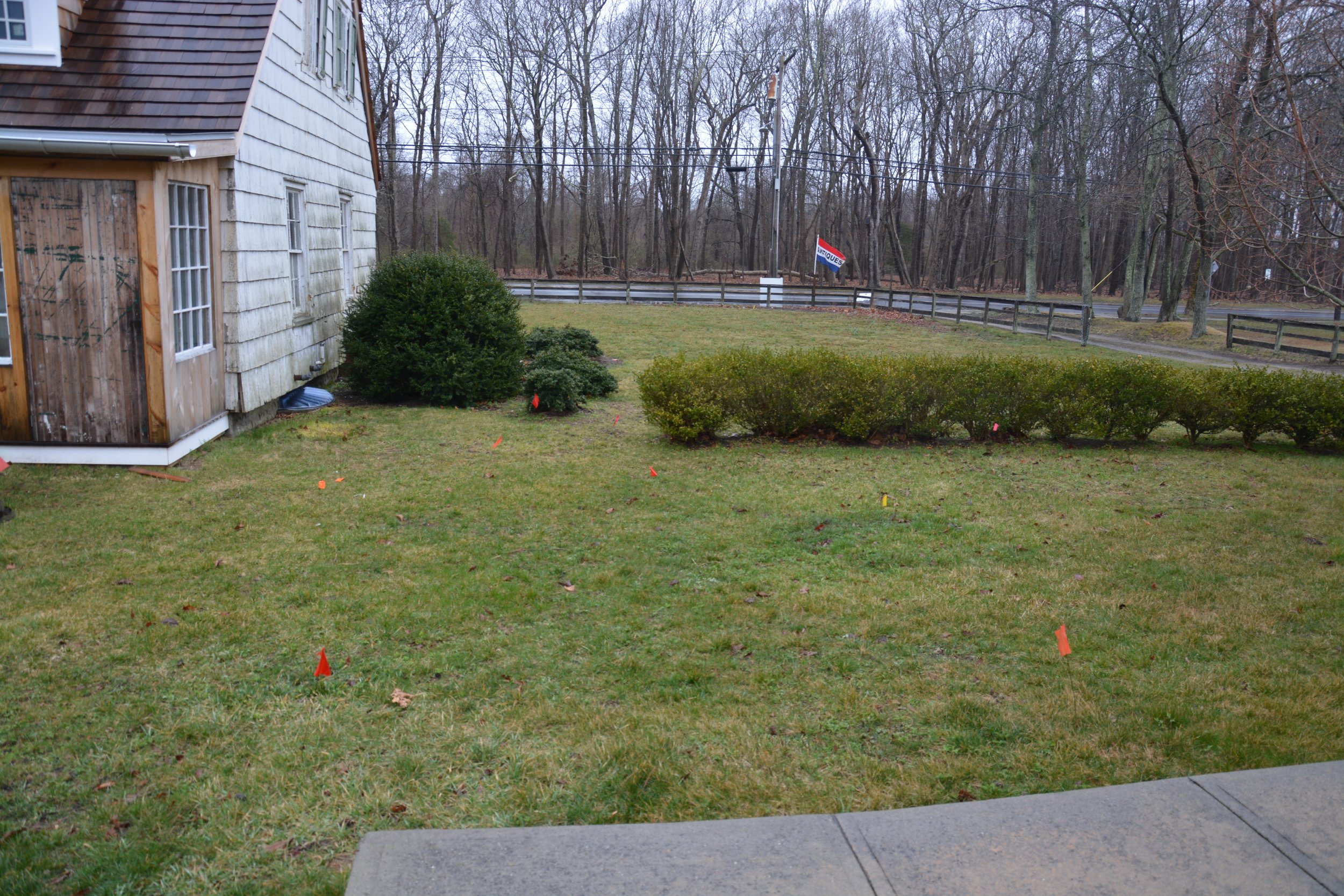
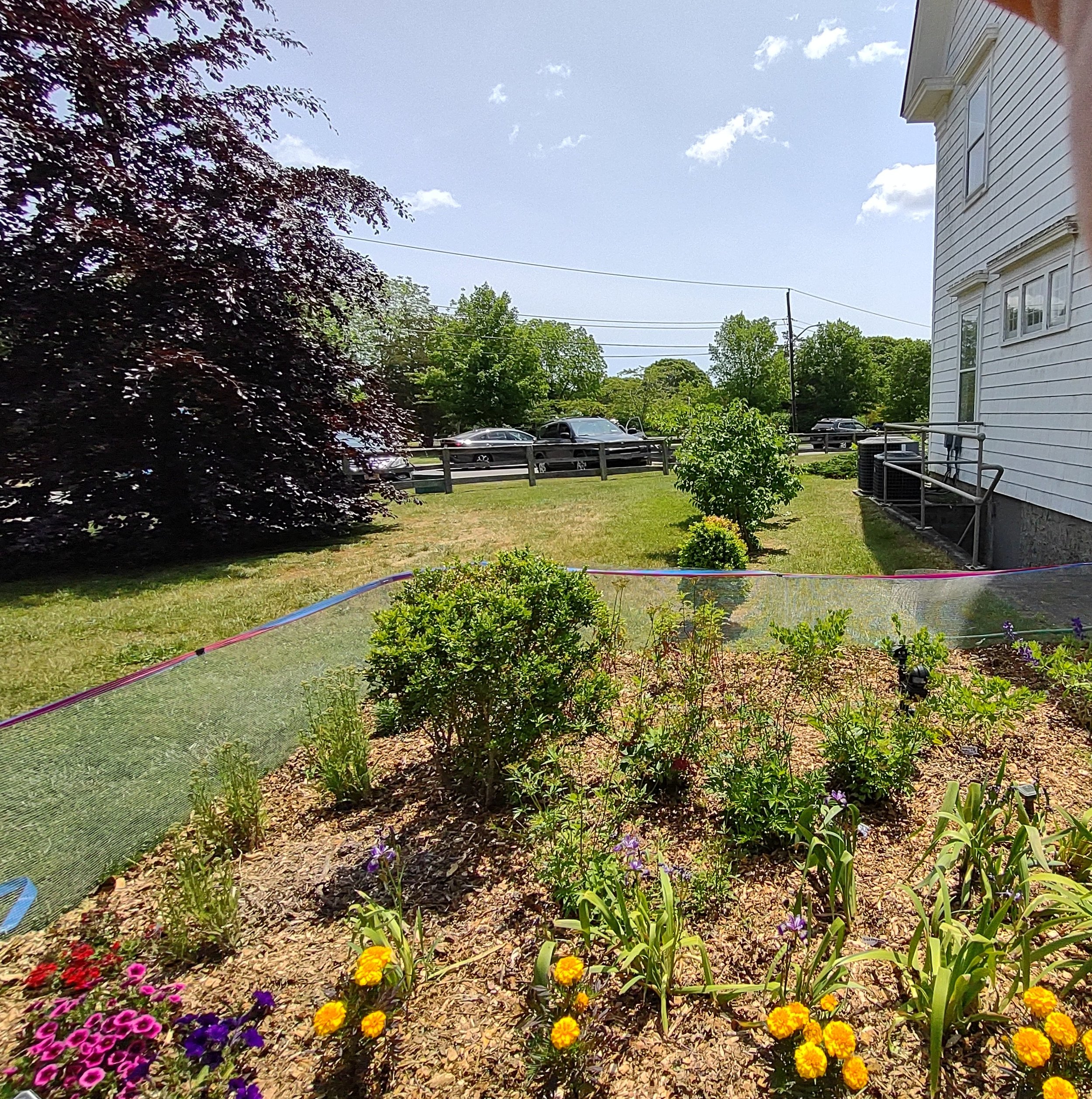
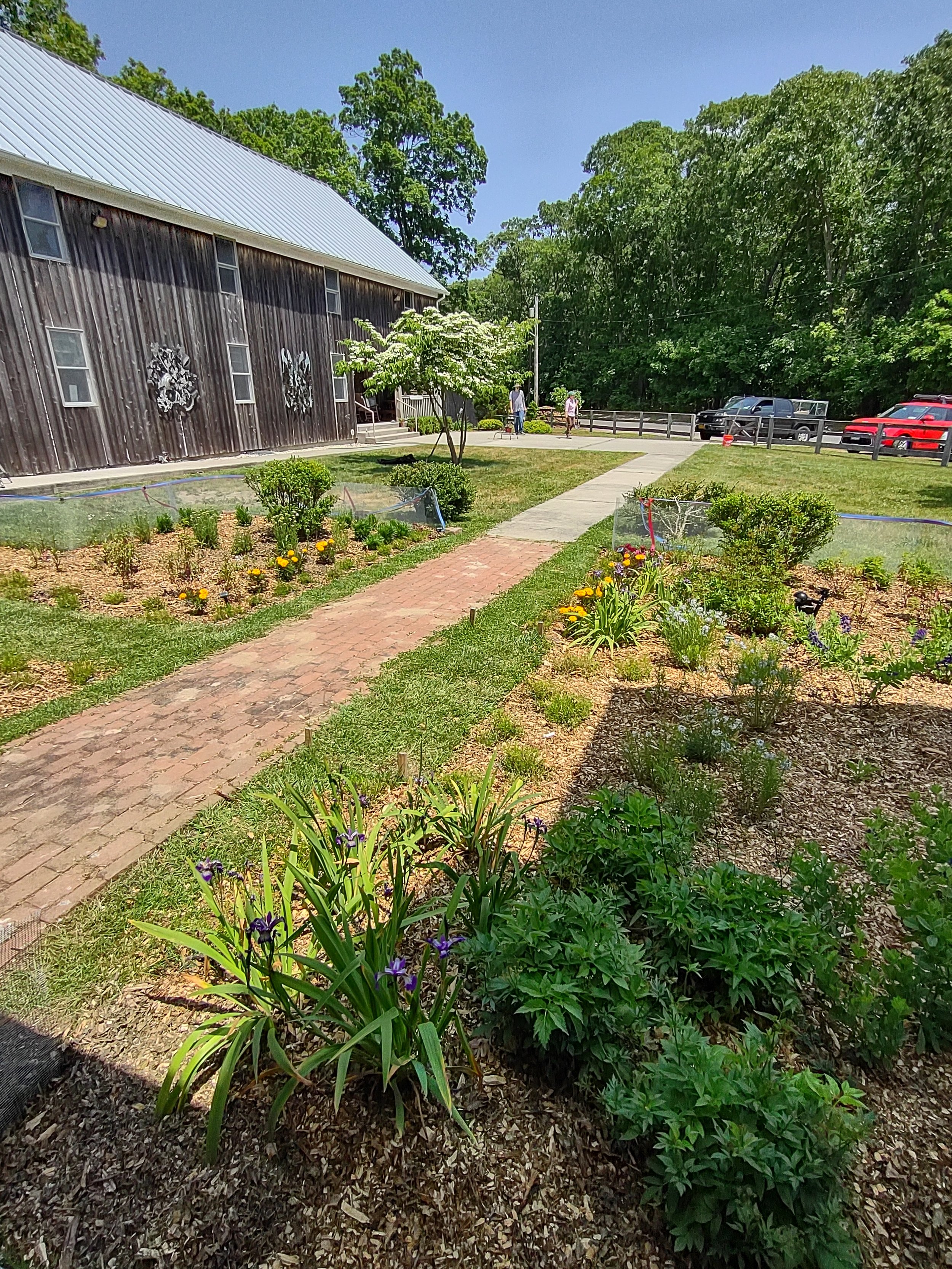
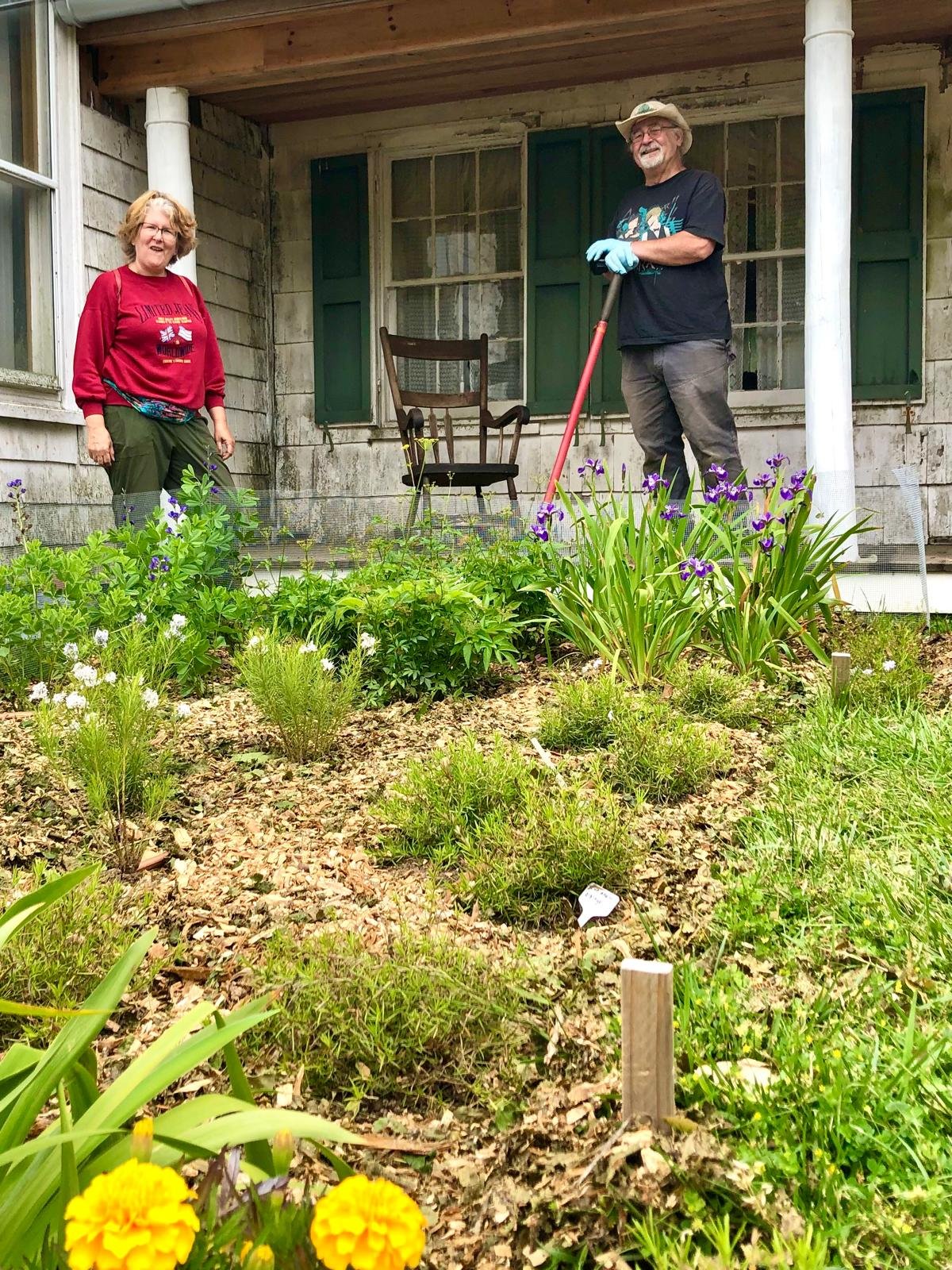
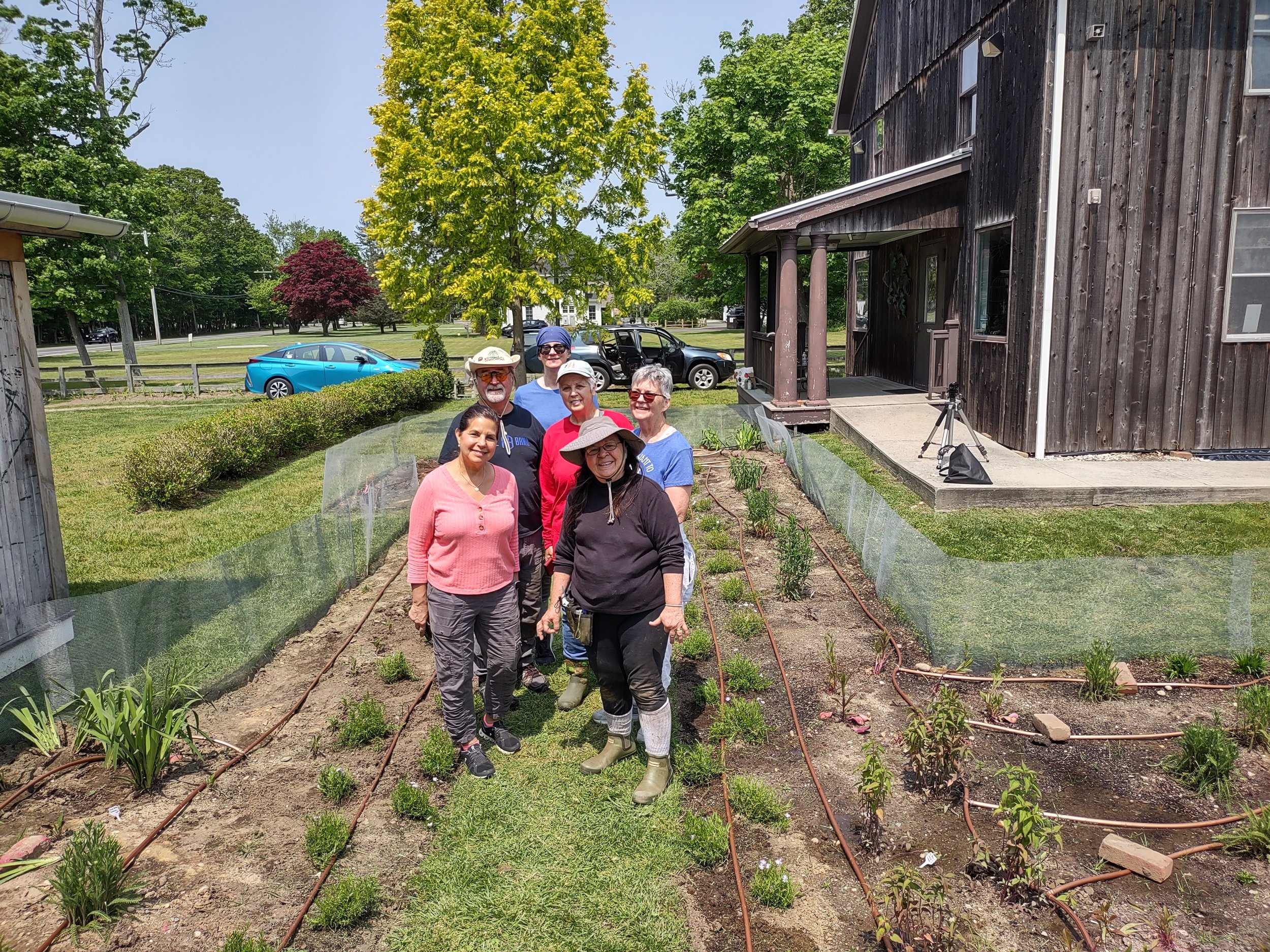
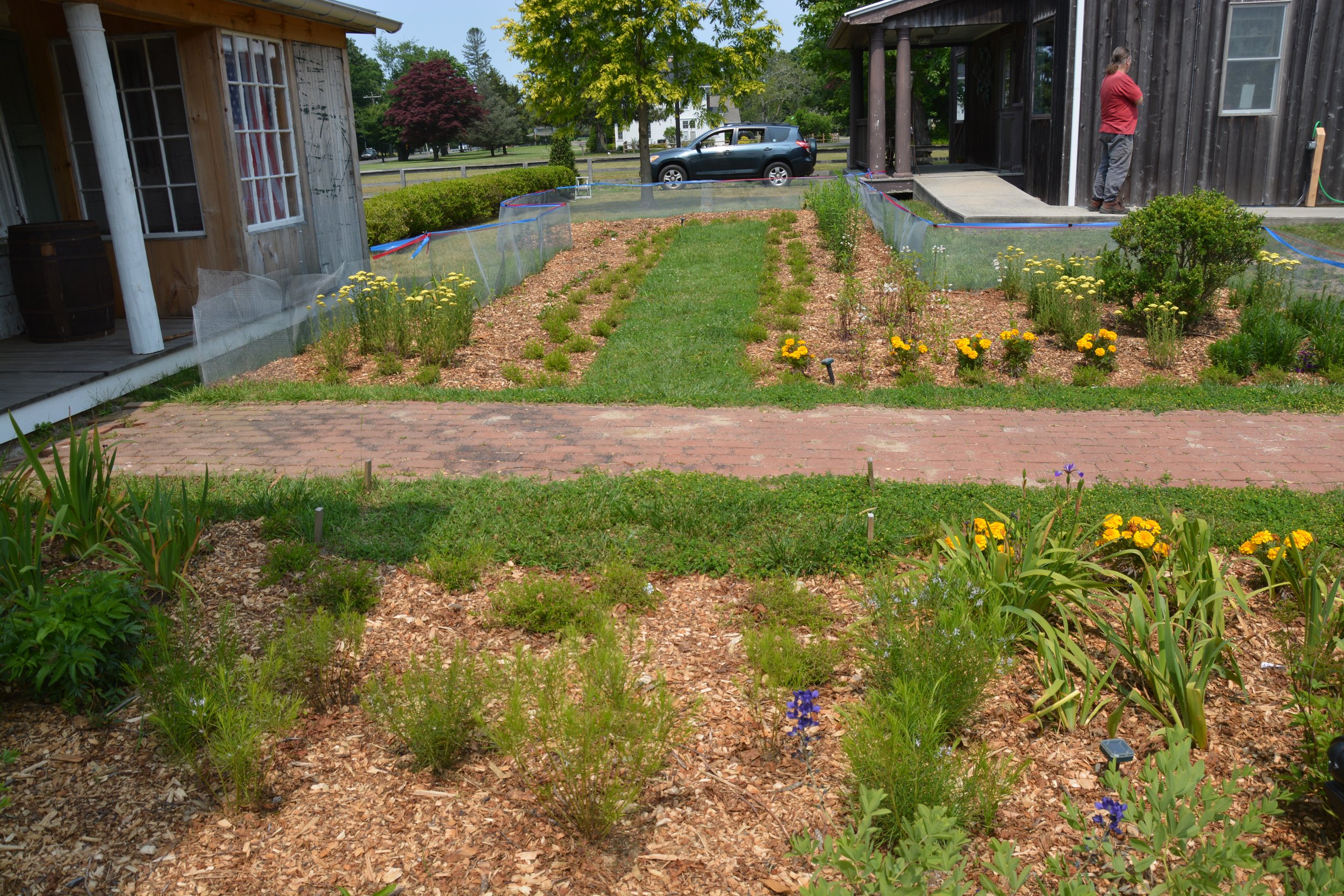
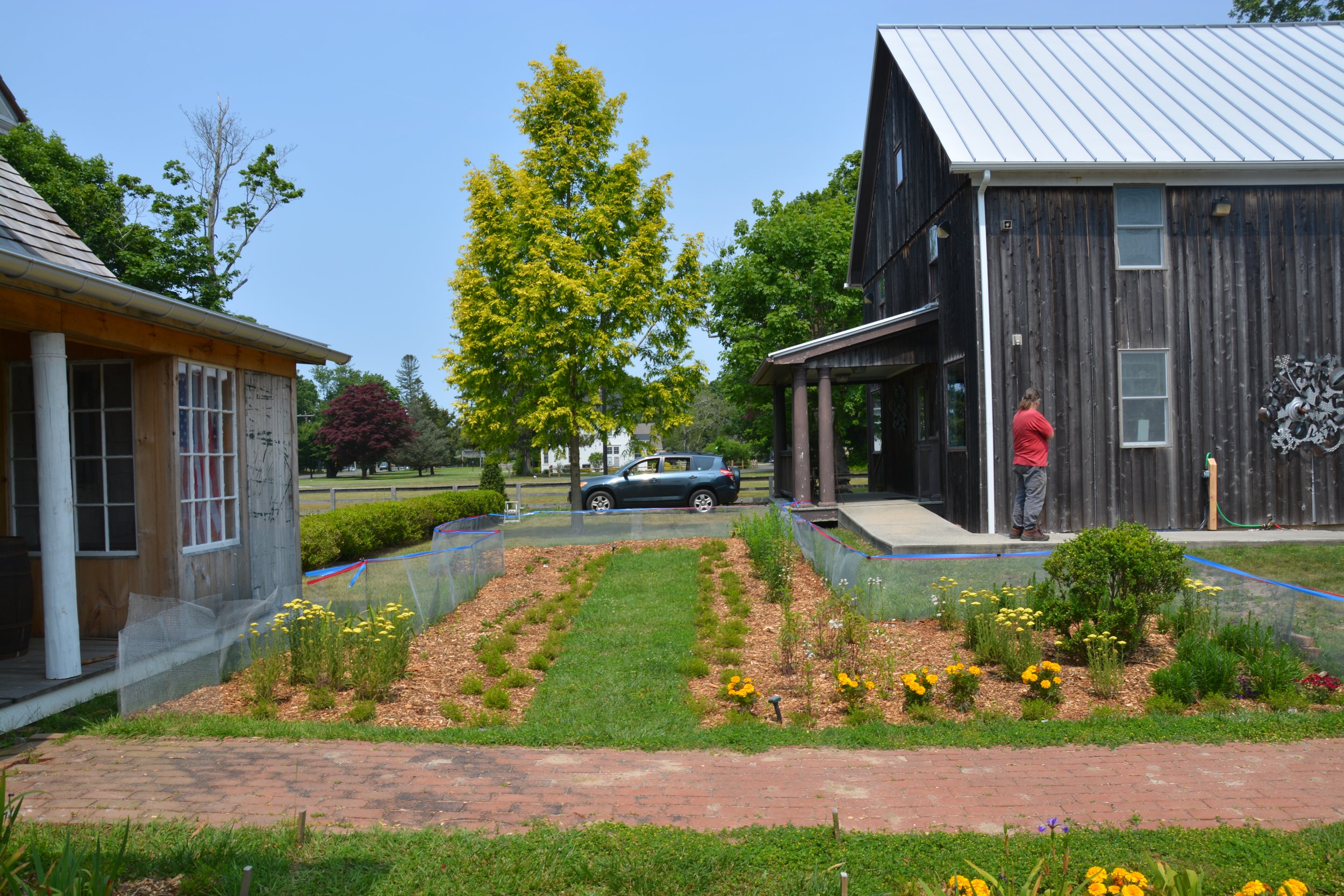
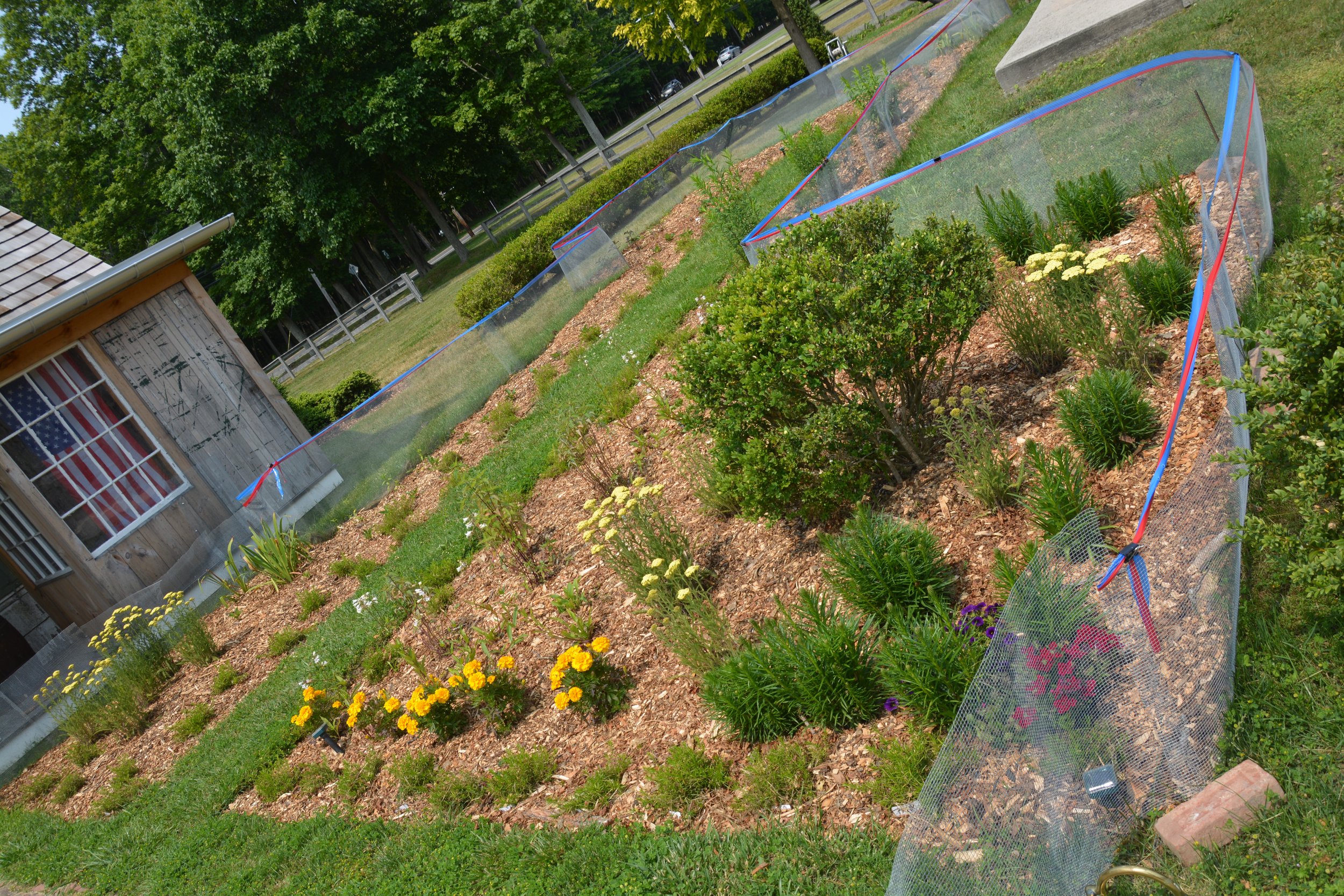
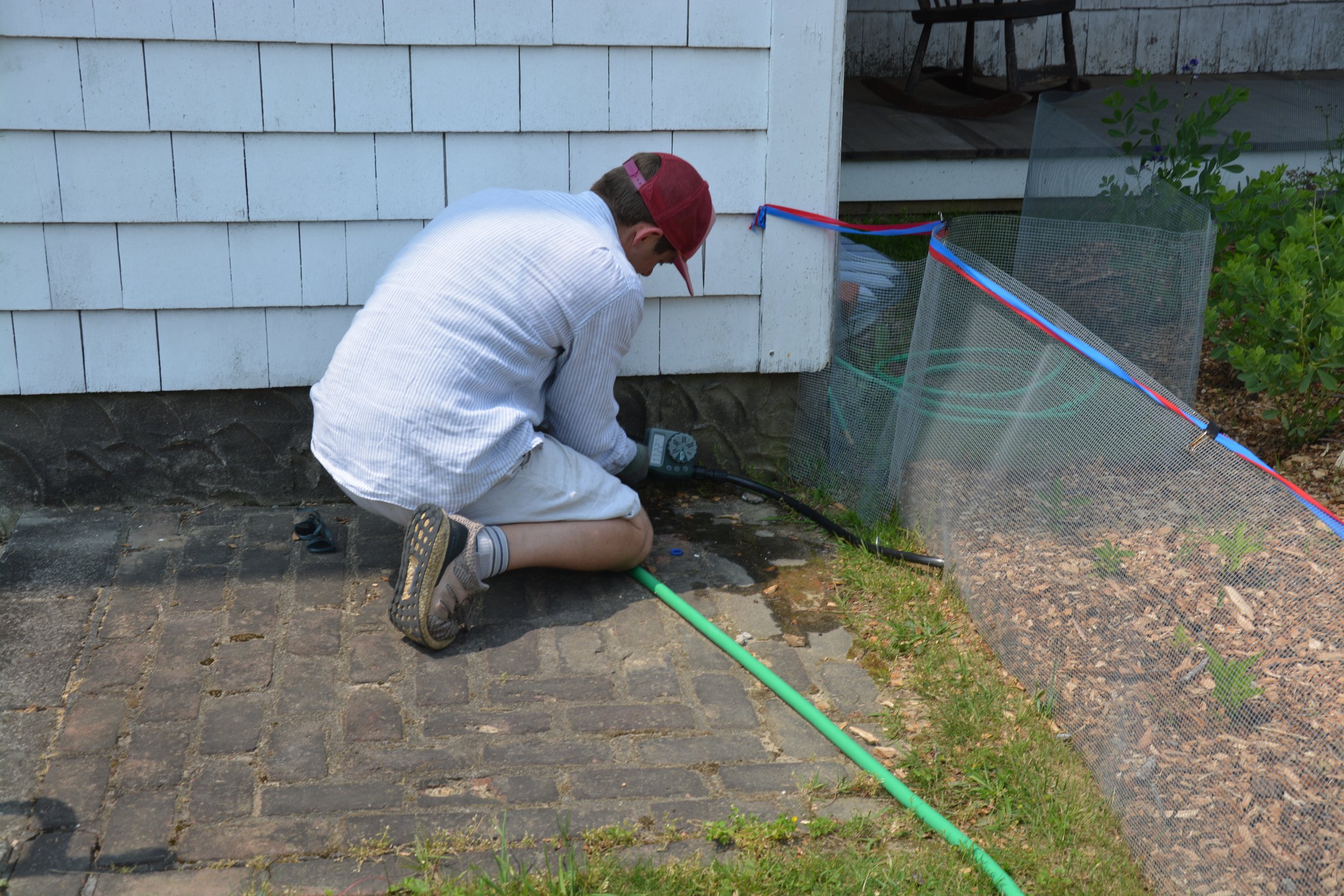
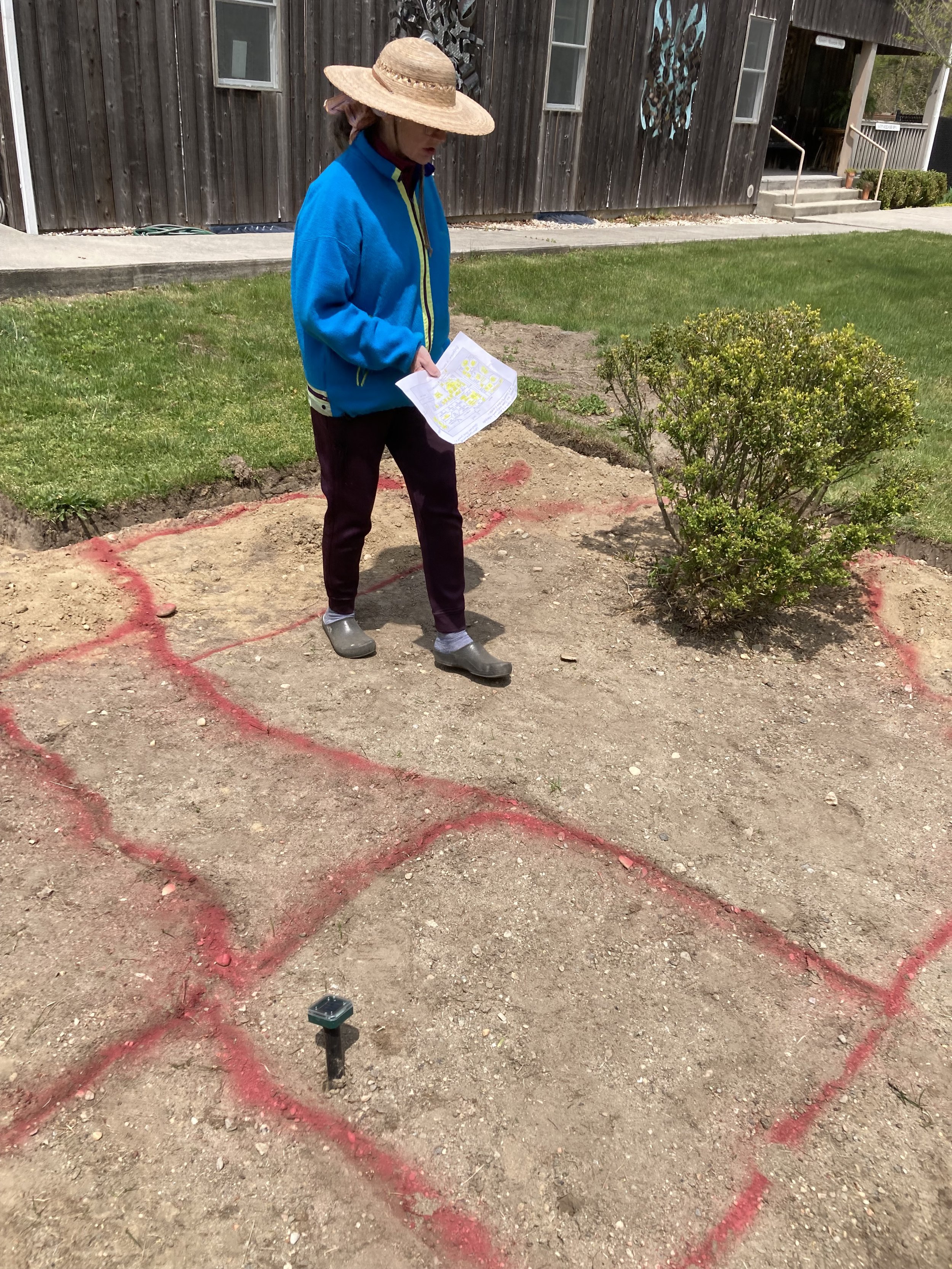
The master gardeners
Located at Havens Homestead
Written by Kathleen Dhundale
The mission of the Havens Homestead is to preserve history. A pollinator garden with plants that are native to our area that were here before any European colonization and is designed in the Shingle-Style consistent with the Homestead provides the community with an example regarding “then and now”. The goal is to inspire and educate by example.
Creating this garden fostered community and learning. There’s more to gardening than “Does it look pretty?” The ReWild grant deepened our understanding of sustainable native gardening. With more than 1,000 square feet to plan, prep and plant in, 17 gardeners with varied experience worked together. All contributed expertise- soil preparation, critter barriers, root washing, plant choice and placement, and drip irrigation are some topics we tackled together.
Gardening is a humbling experience- there is always more to learn. We continue to do so in an environment where it is safe to ask questions, where we nurture plants and each other.
Creating an environment that will support native biodiversity and provide a lasting, healthy space for future generations is hard. How to do this in a changing climate, how to transform horticultural practices are daunting questions.
The ReWild partnership underlined that sustainability is a hopeful, thoughtful process. It requires not only hard work and dirt under the fingernails, but also continuous learning, ongoing evaluation, open communication and dialogue. And optimism- looking to improve the future one garden at a time.
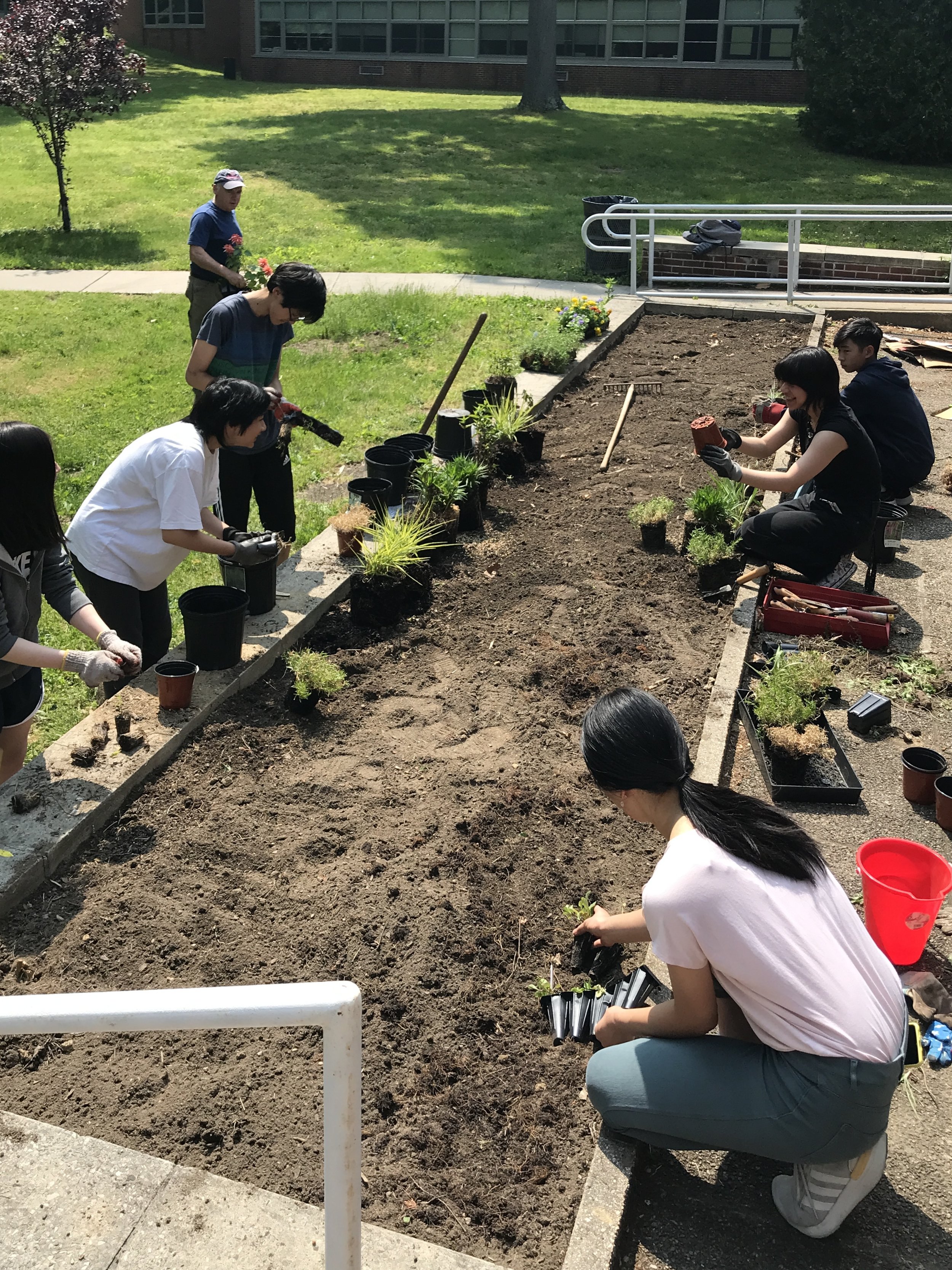
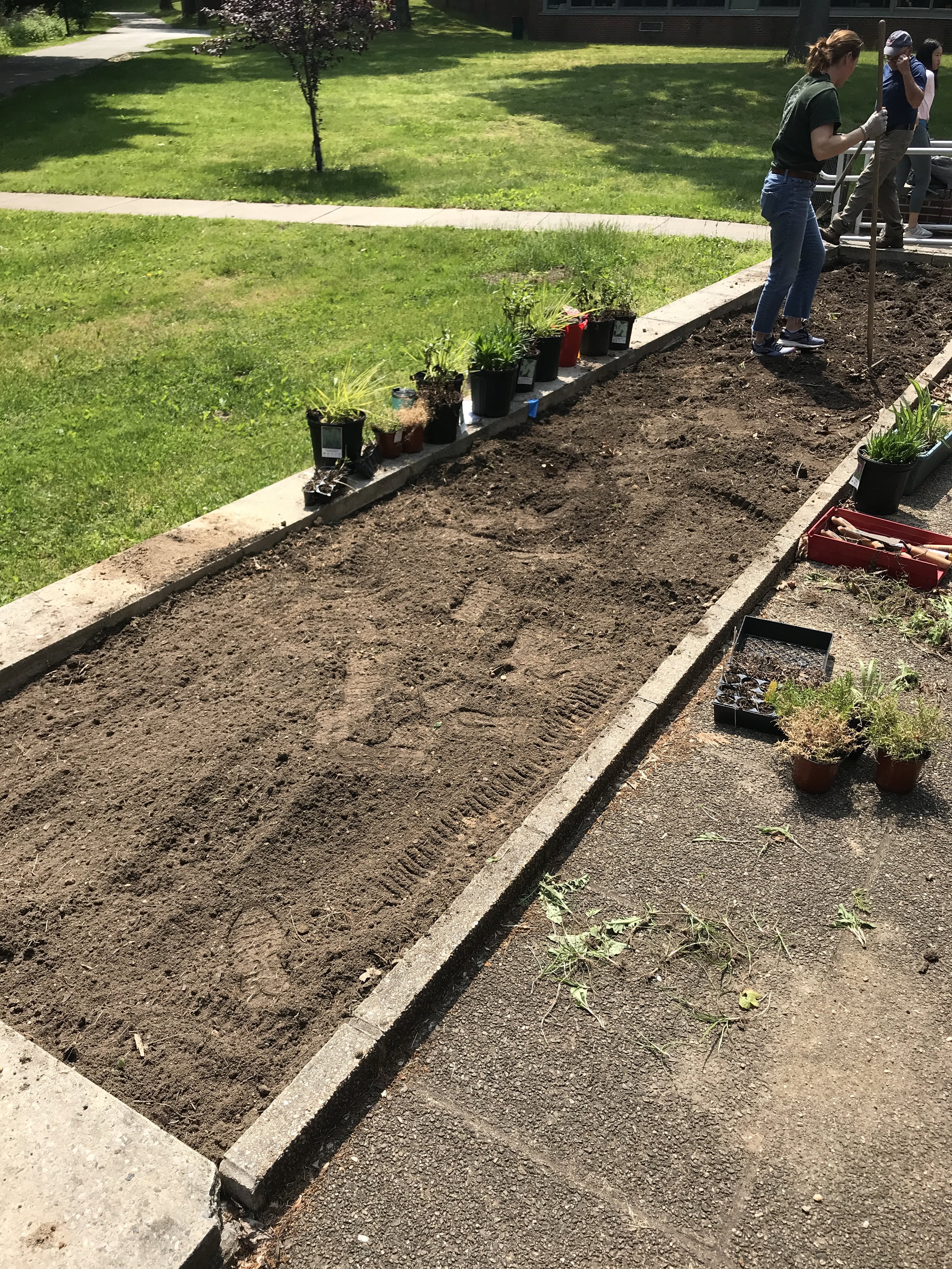
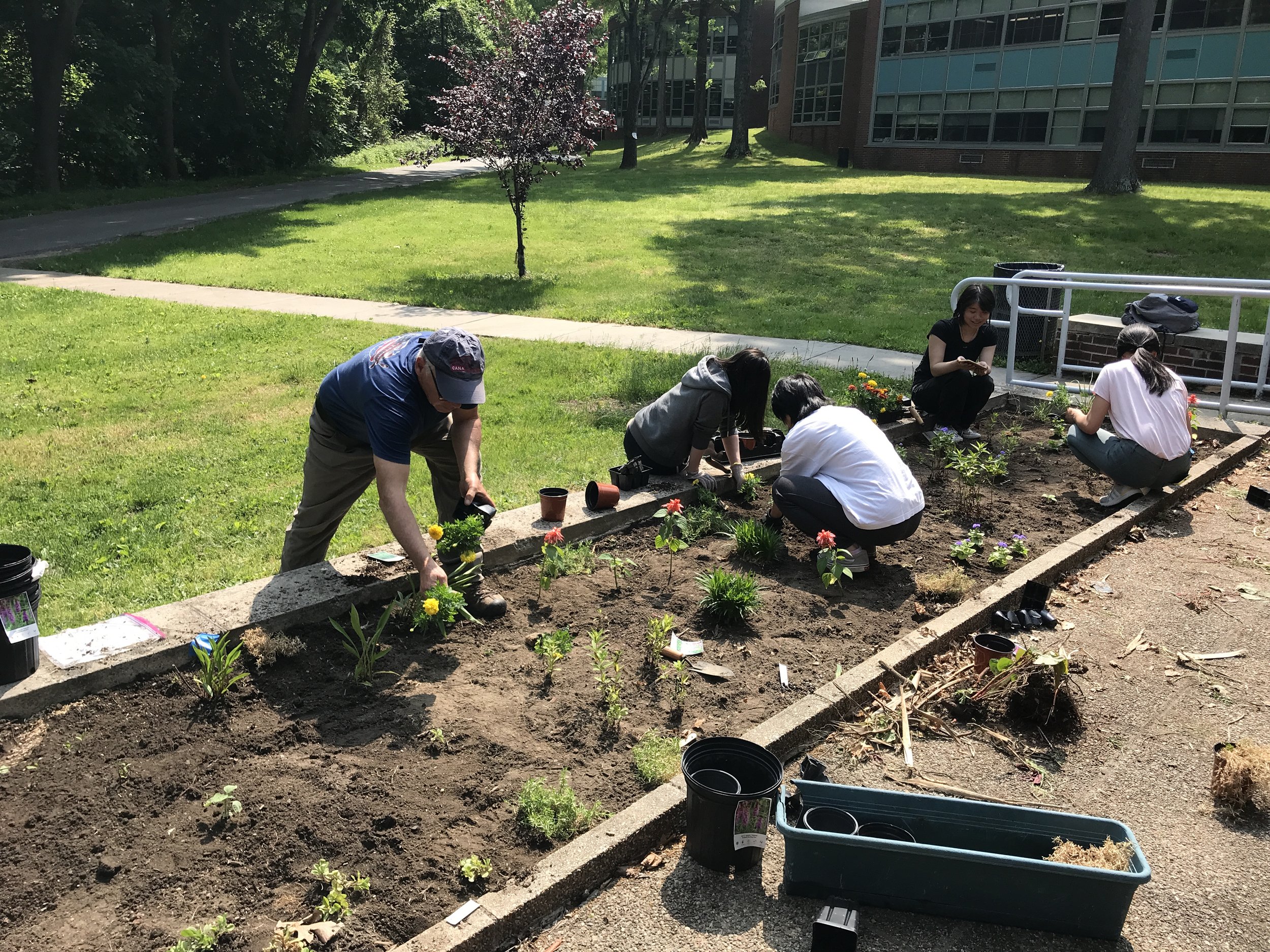
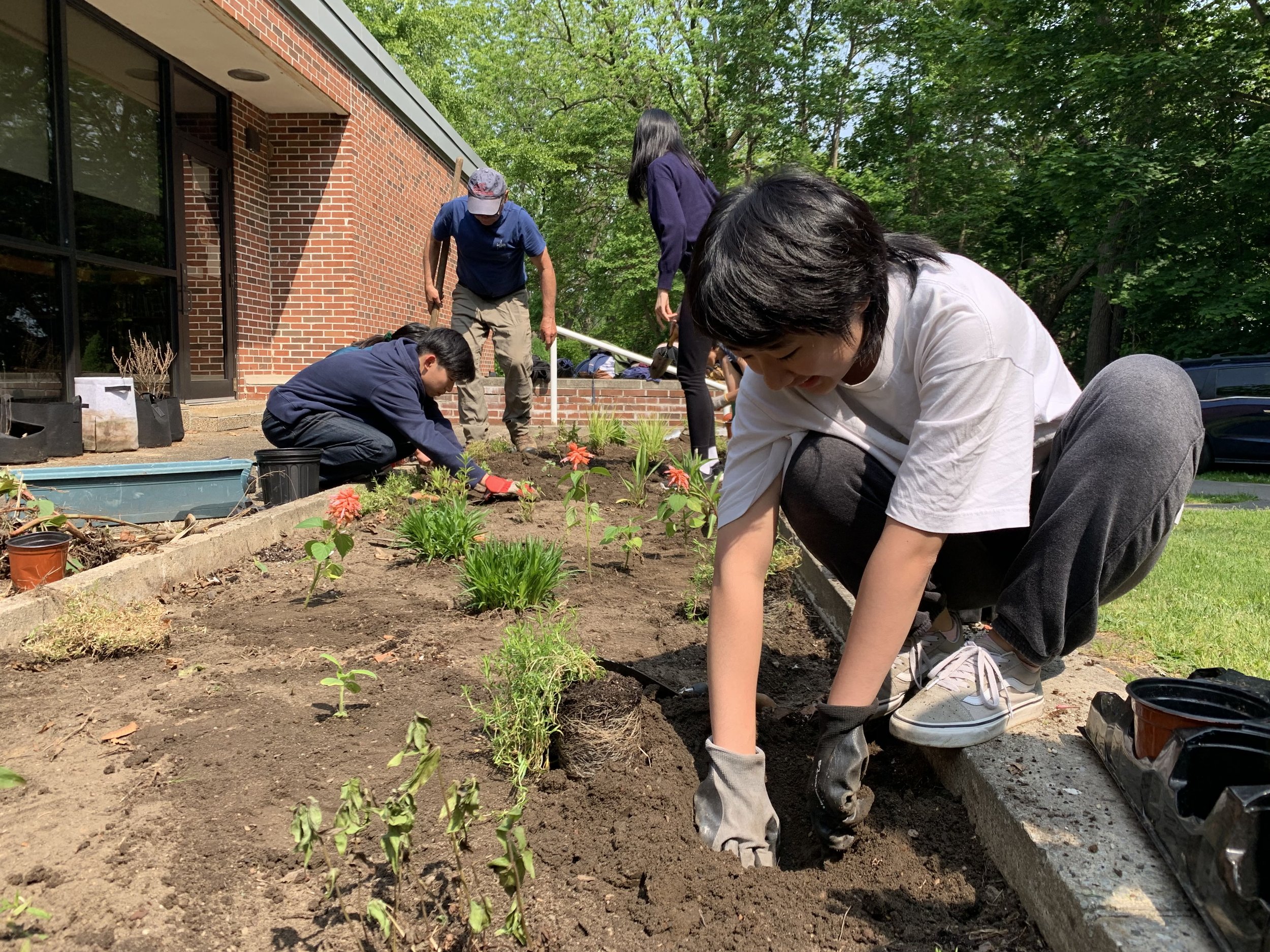
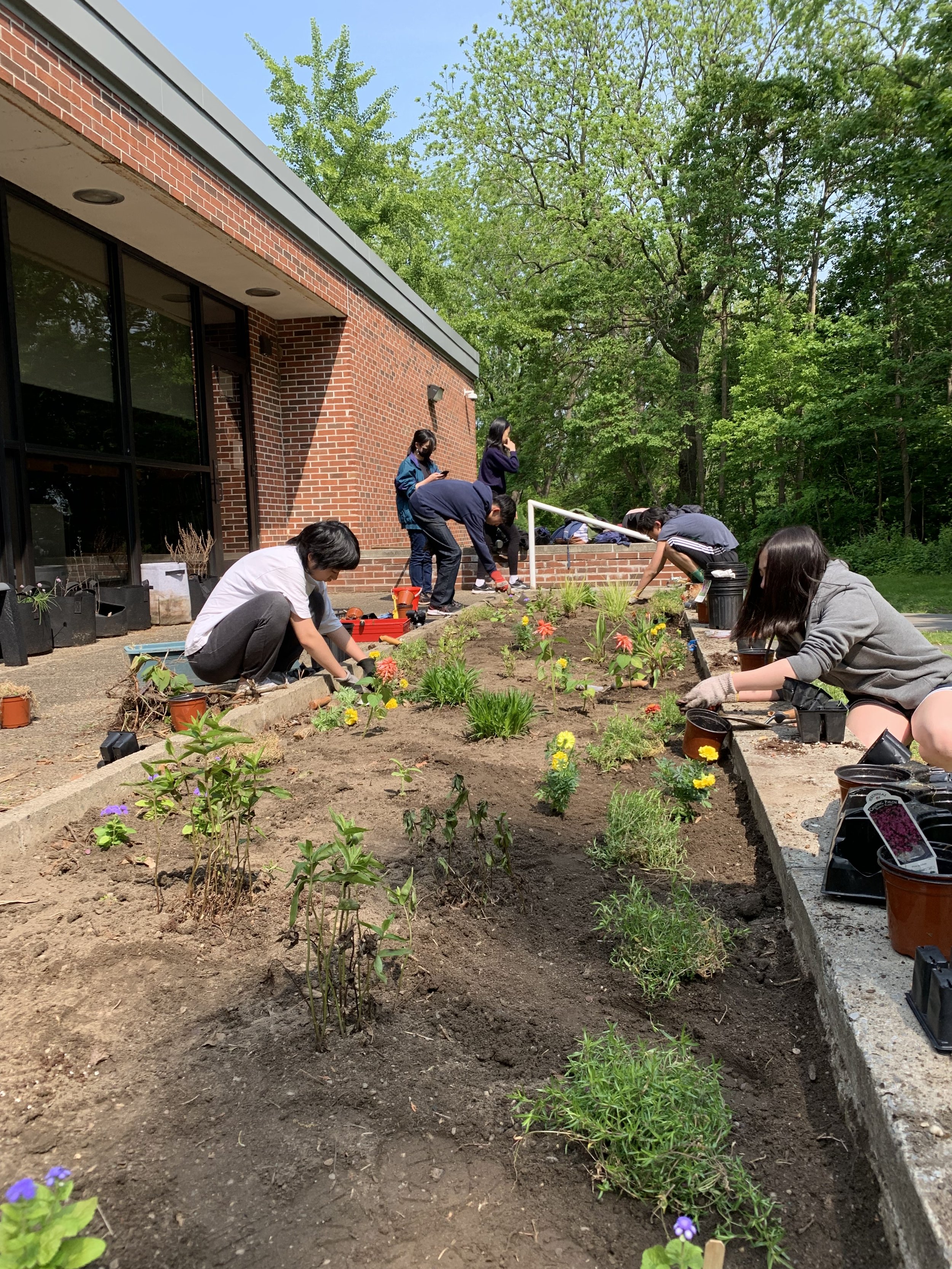
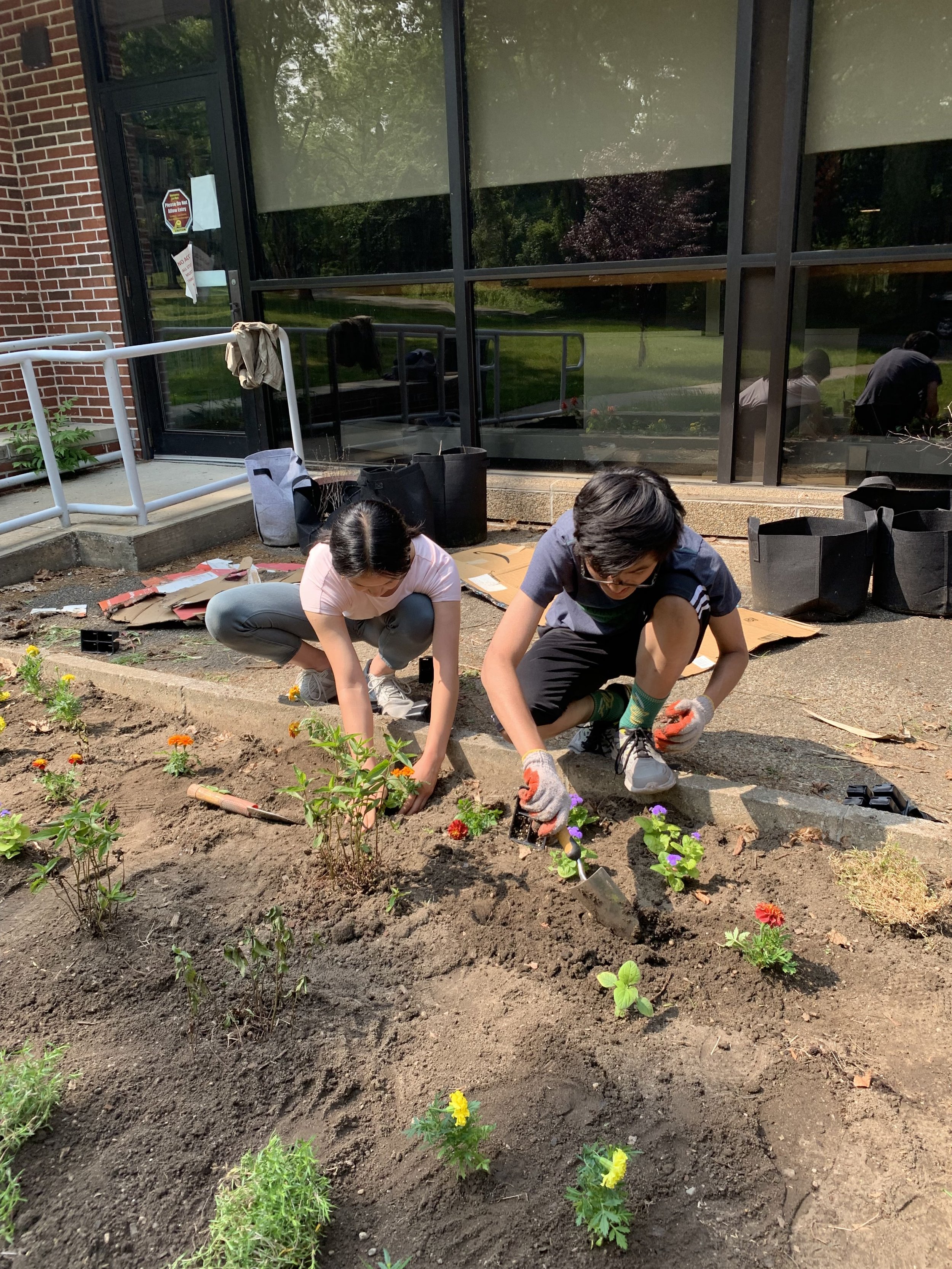
great neck high school environmental club
Located at Great Neck High School
Currently missing more info.
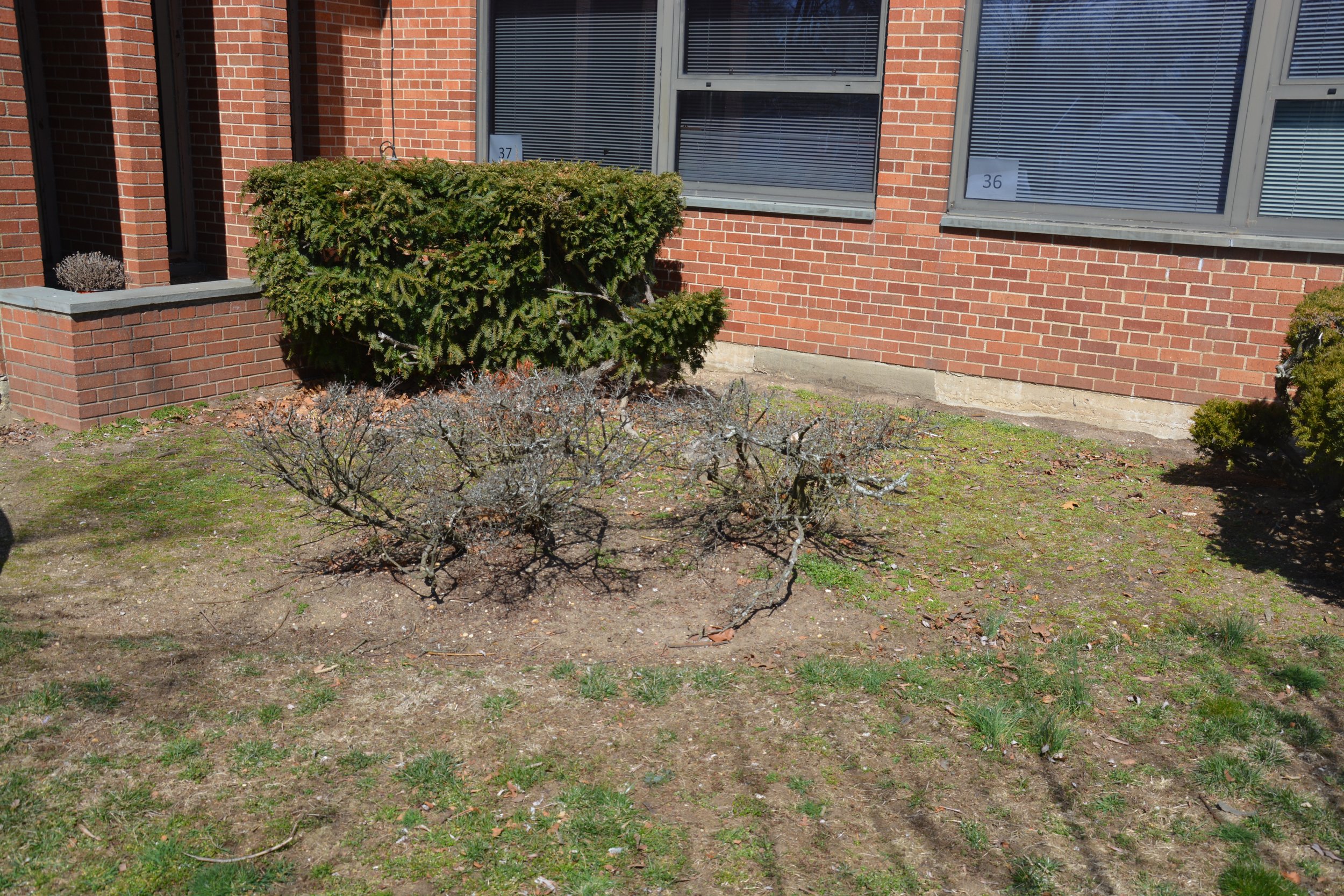
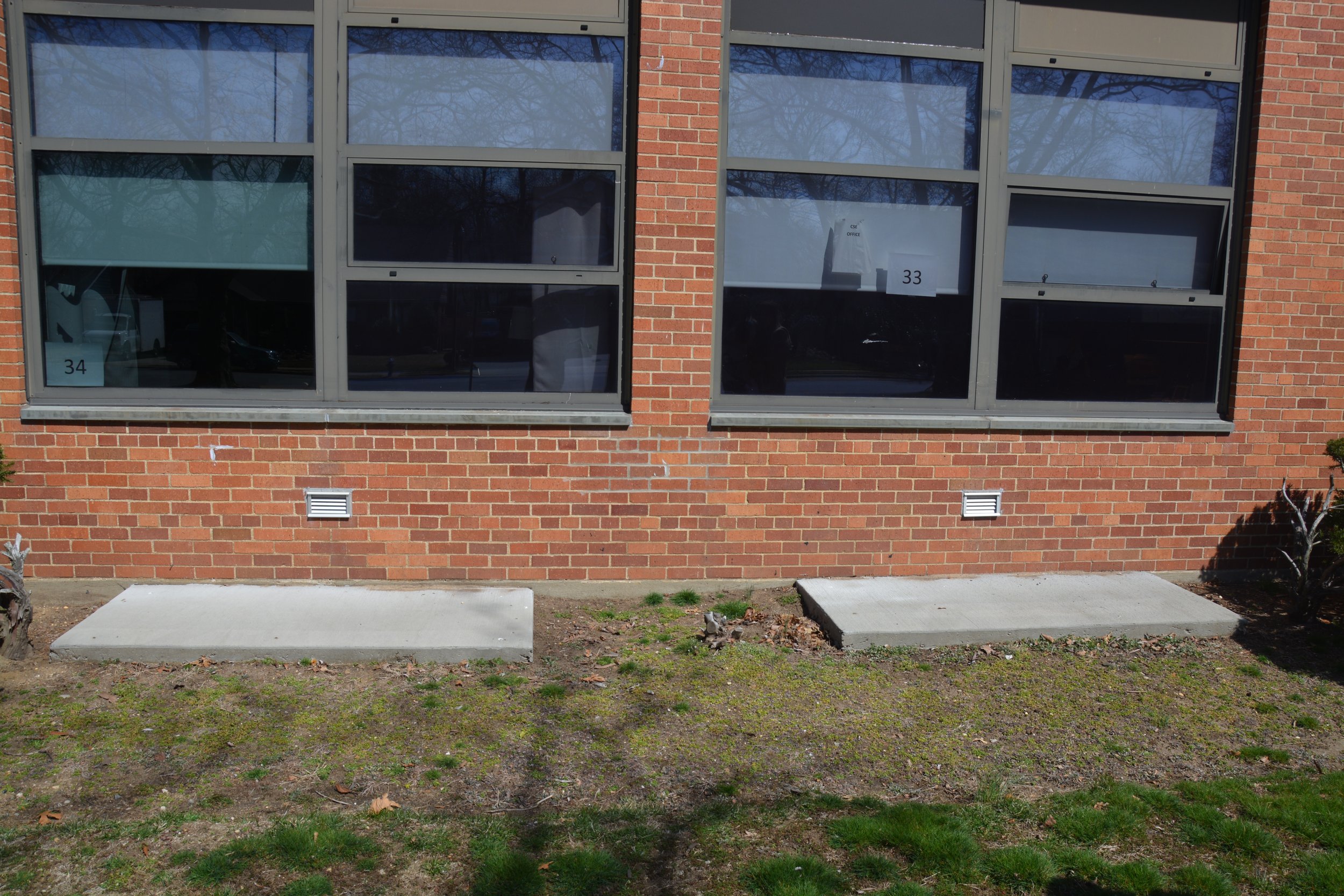
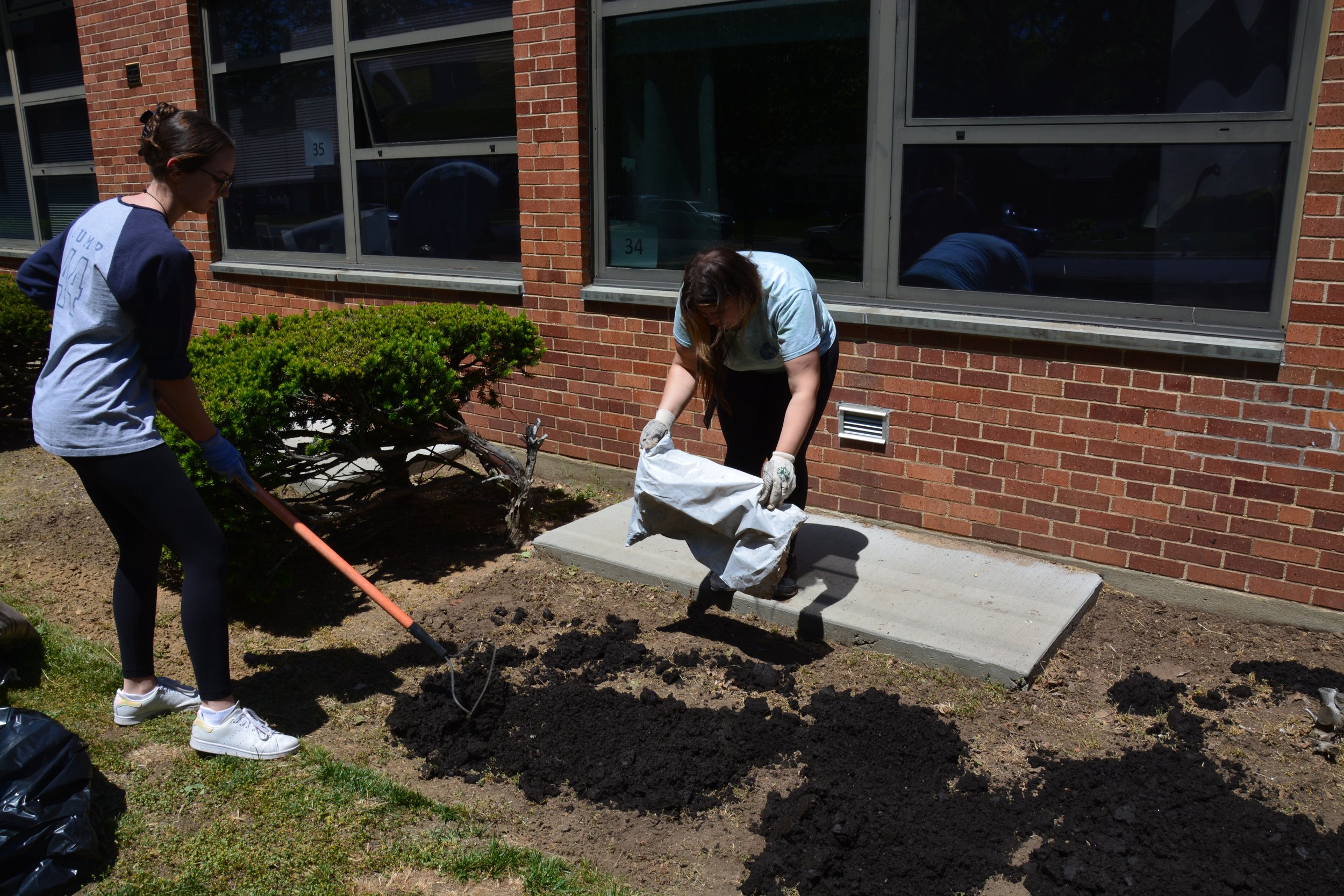
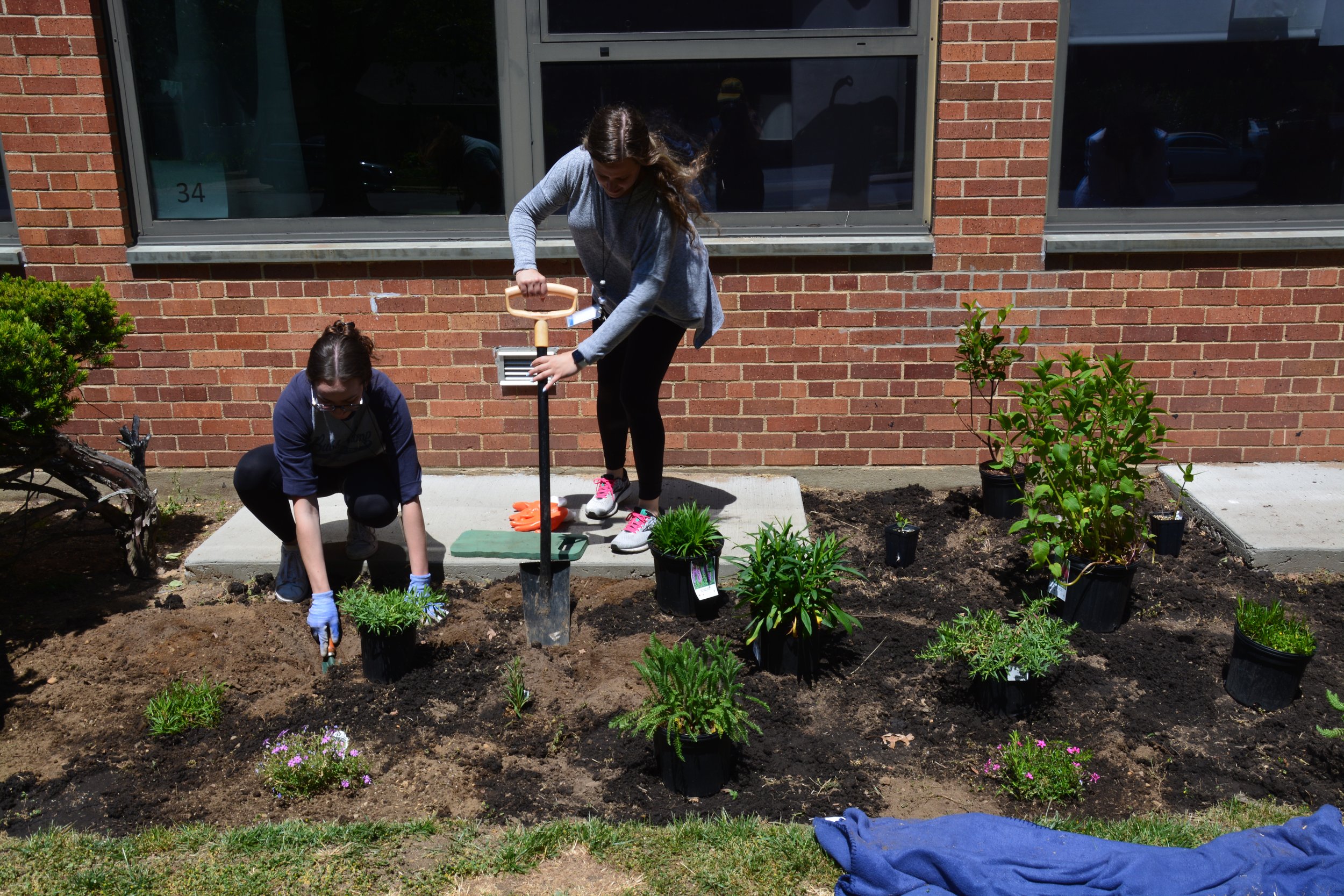
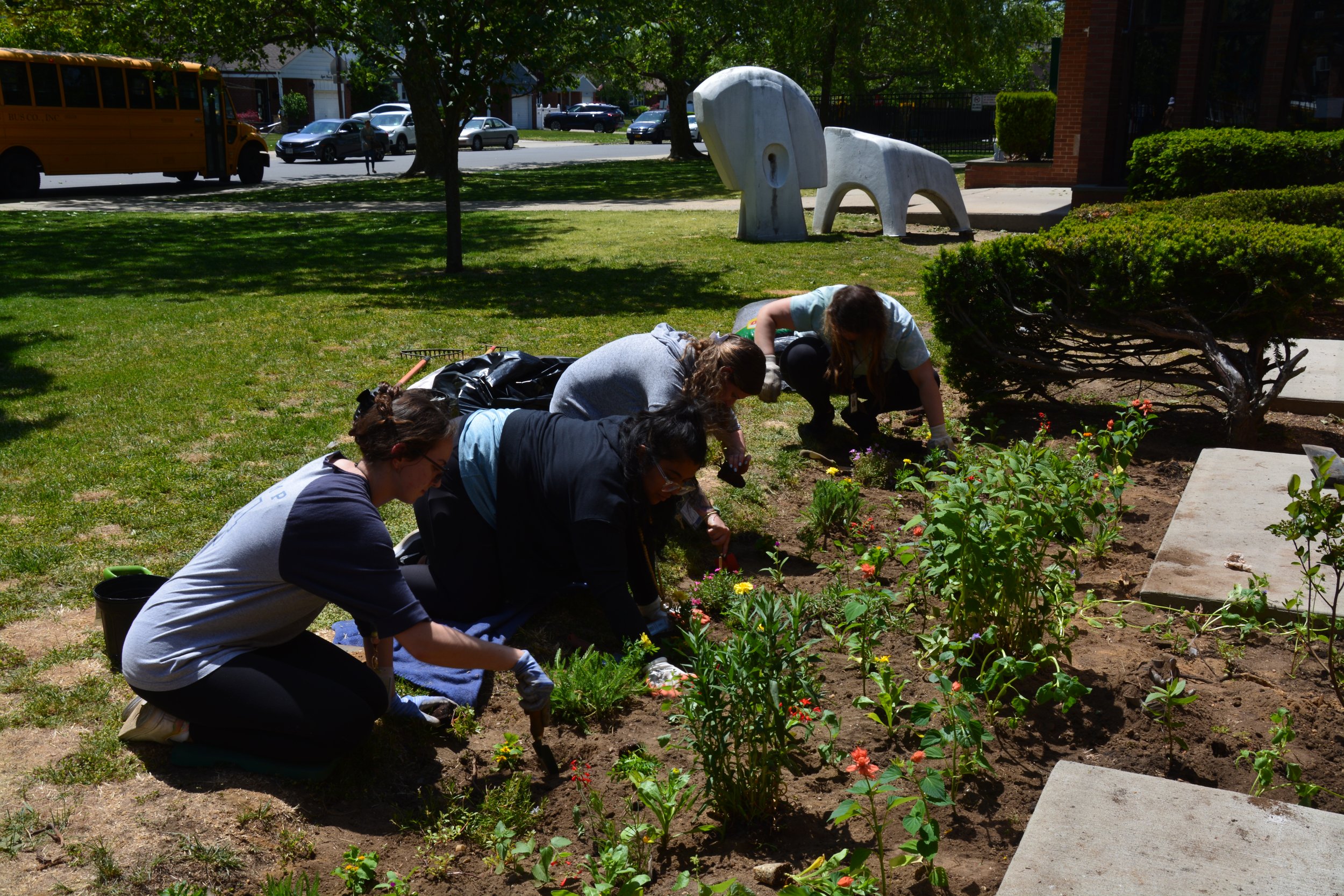
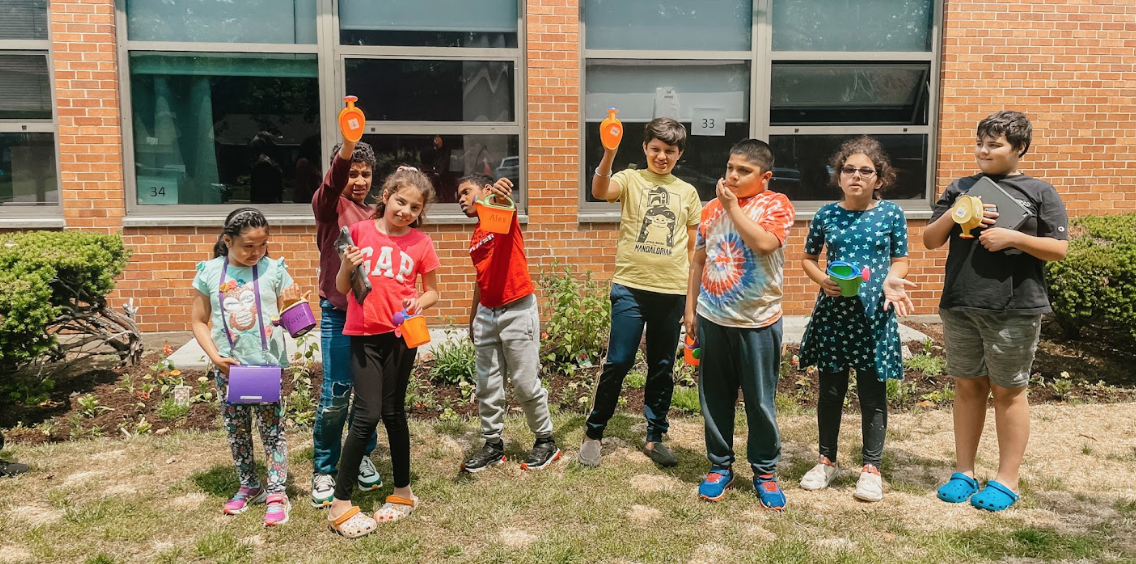
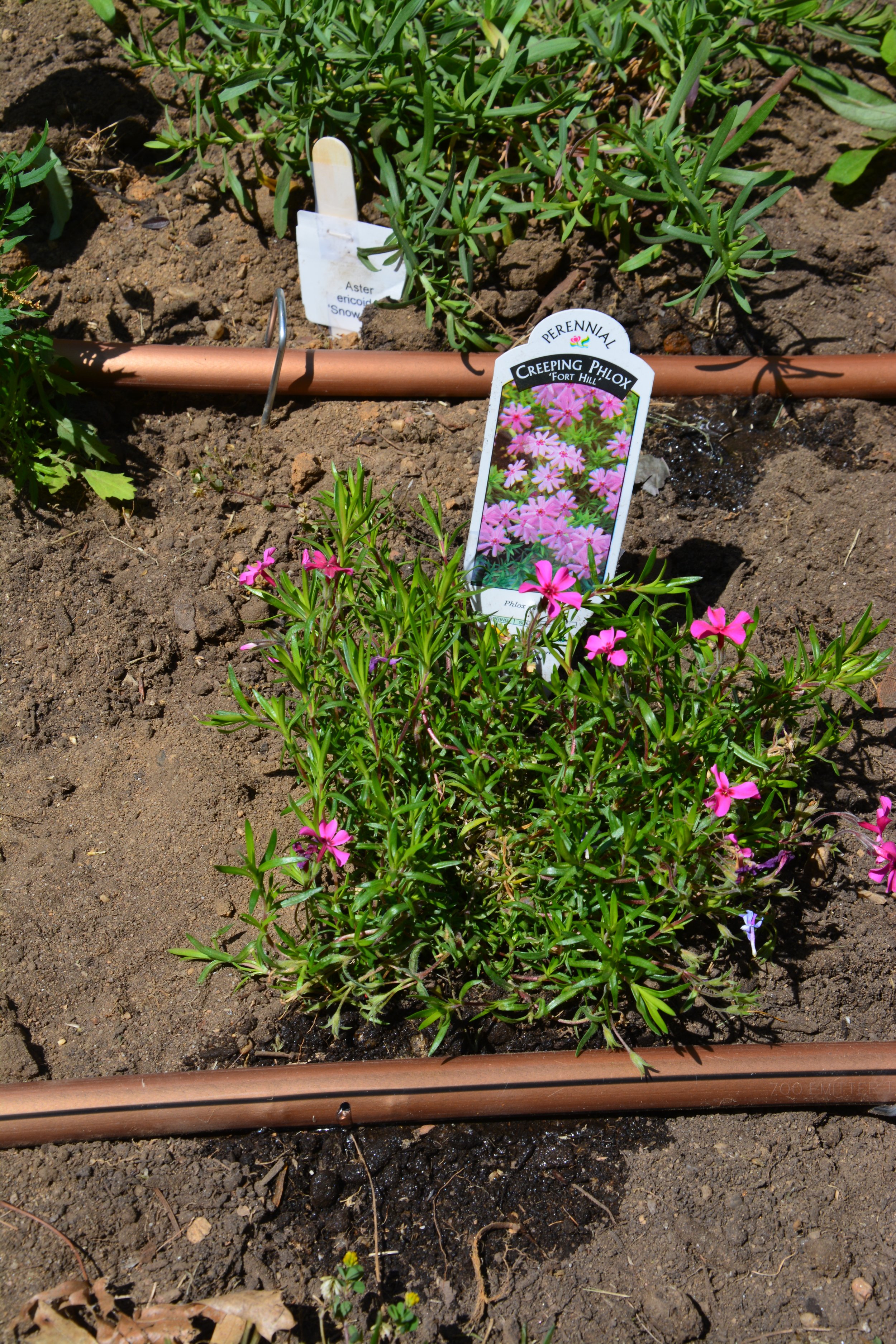
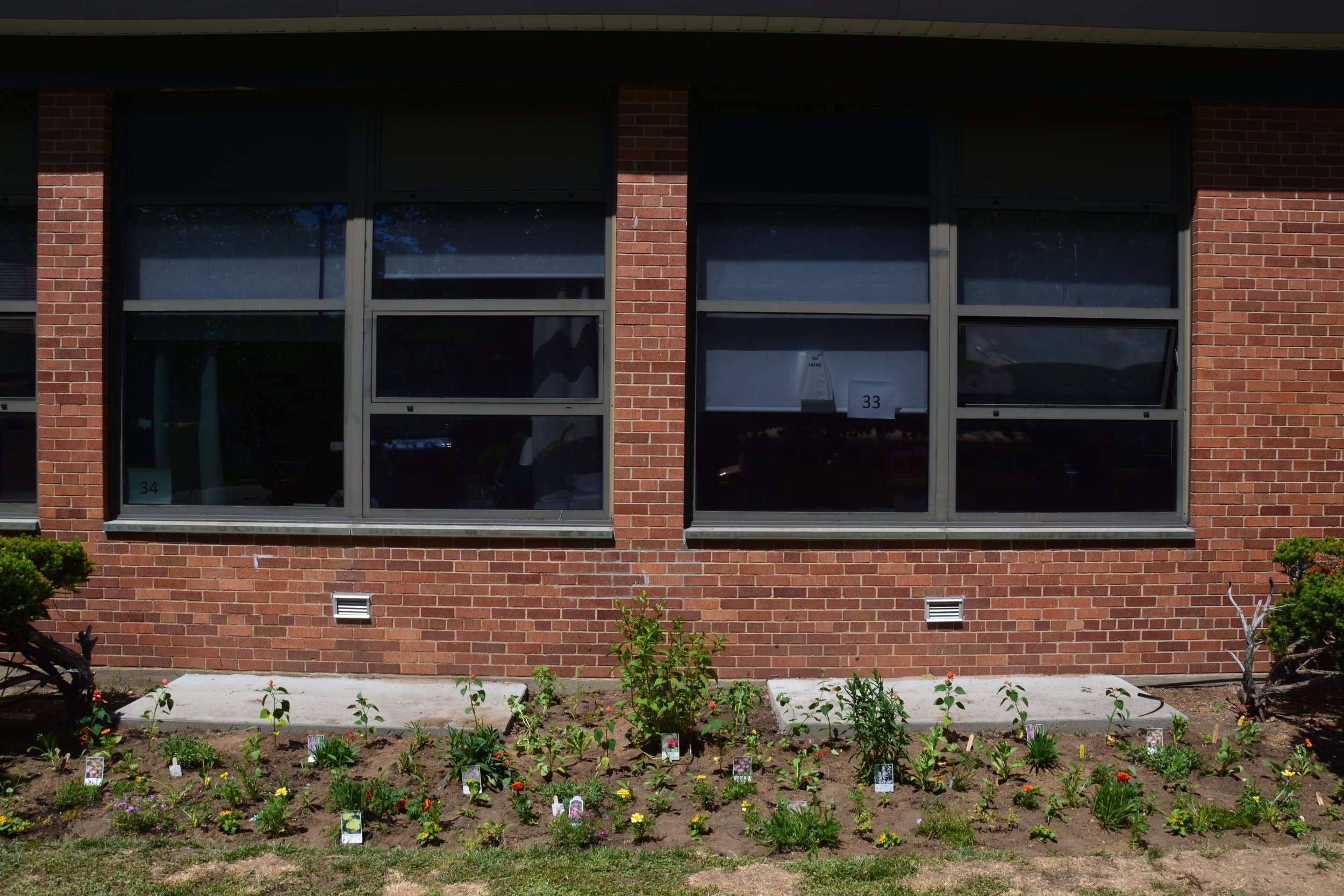
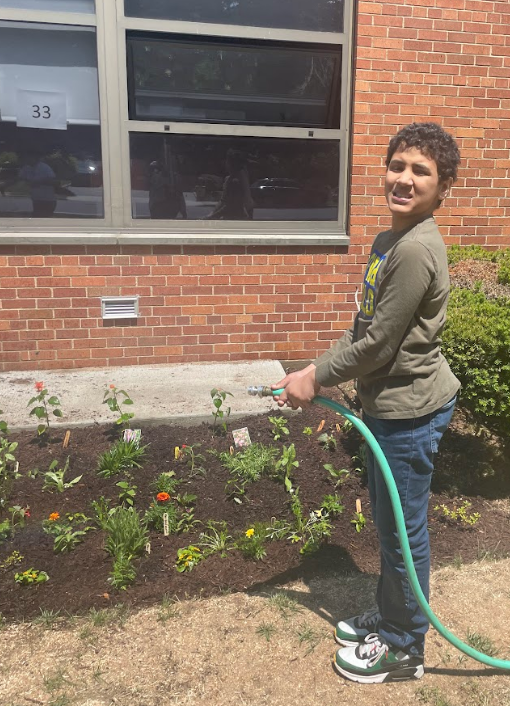
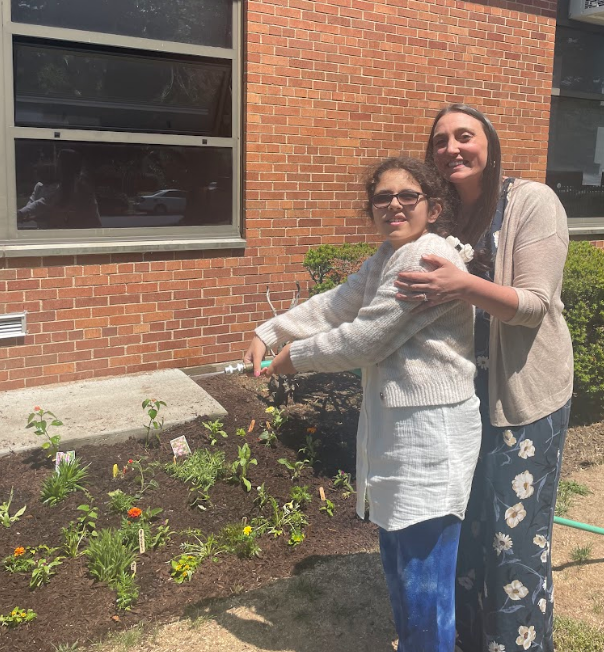
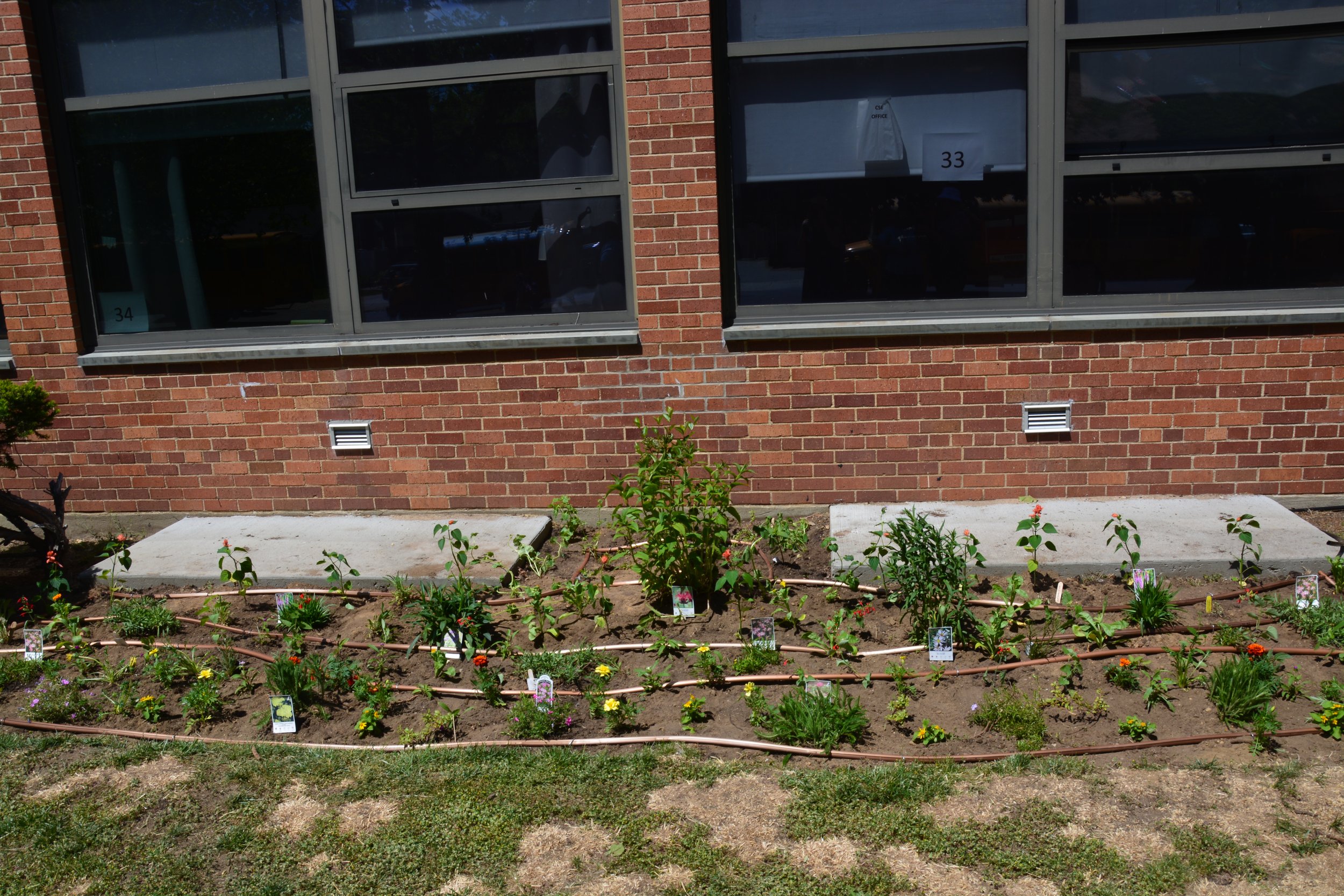
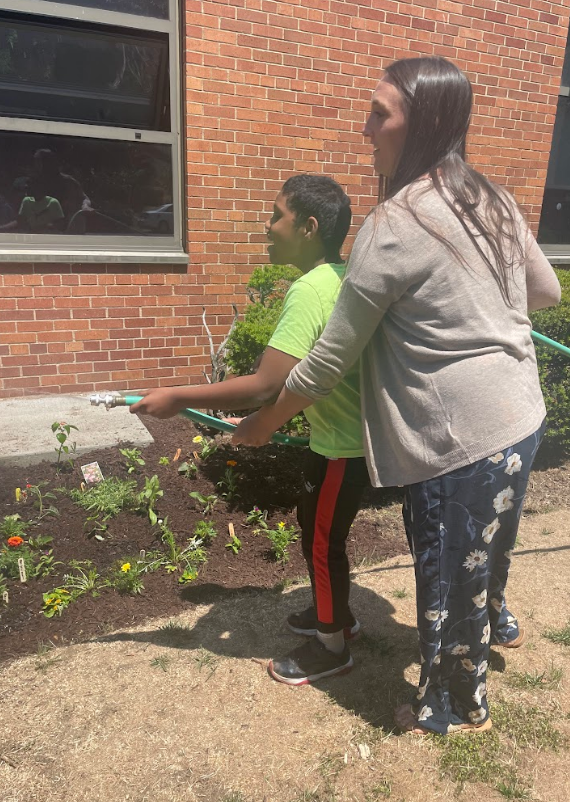
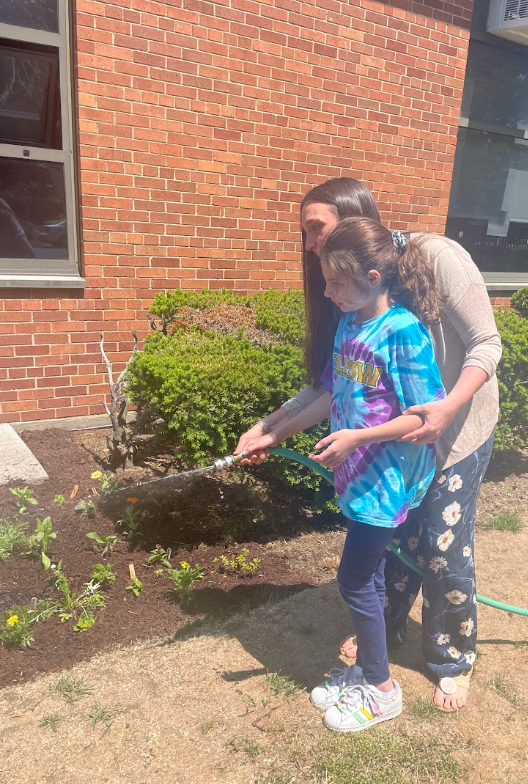
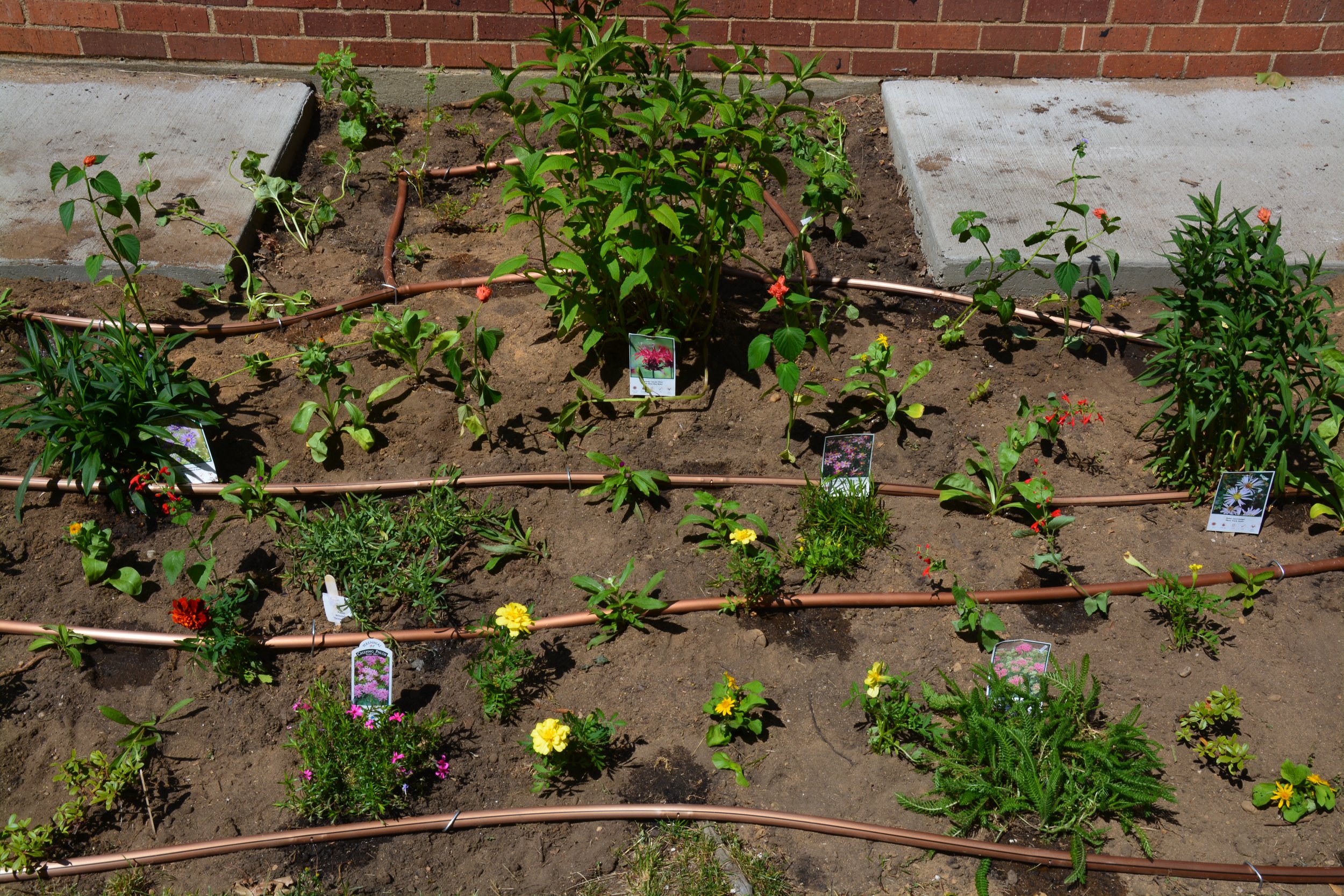
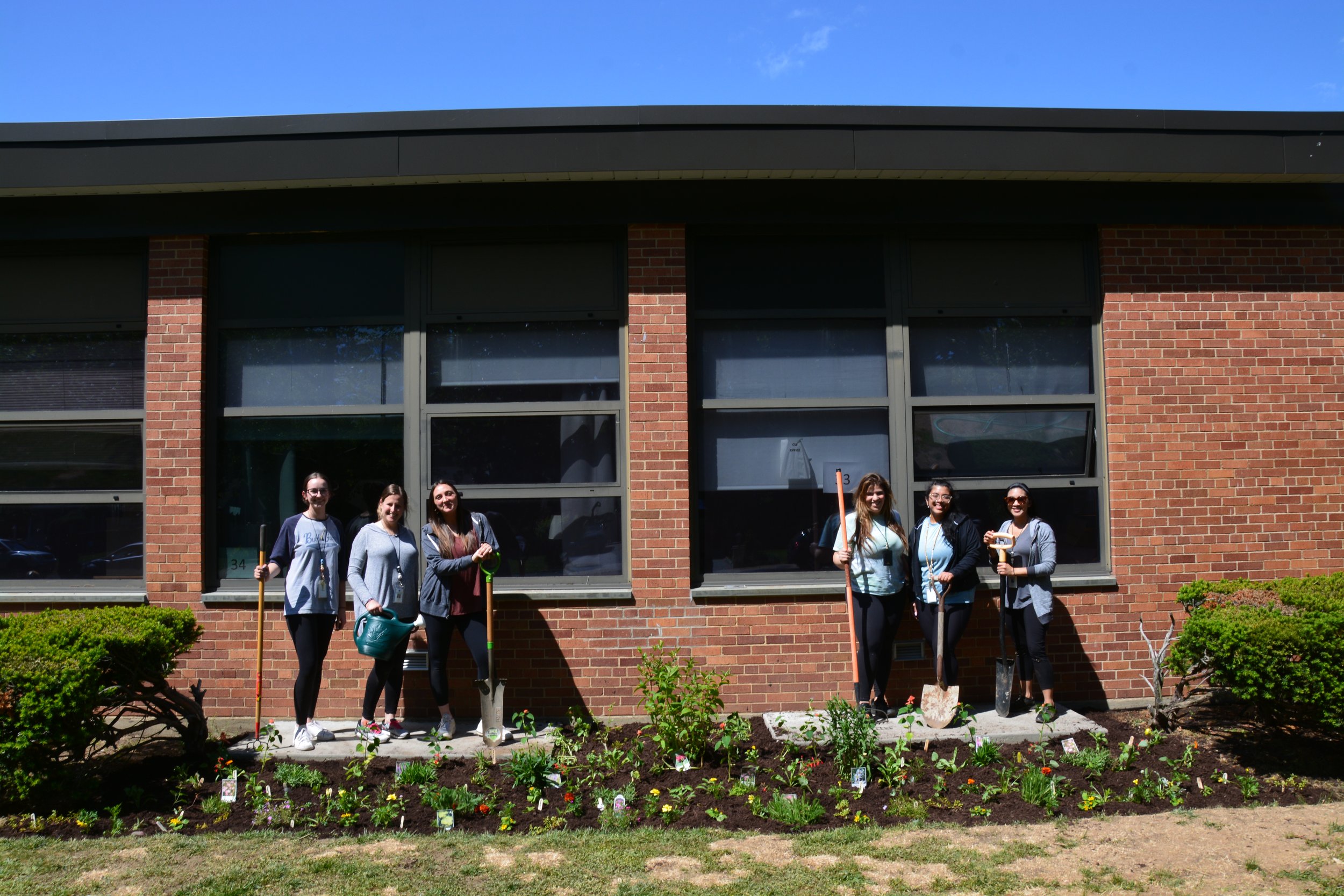
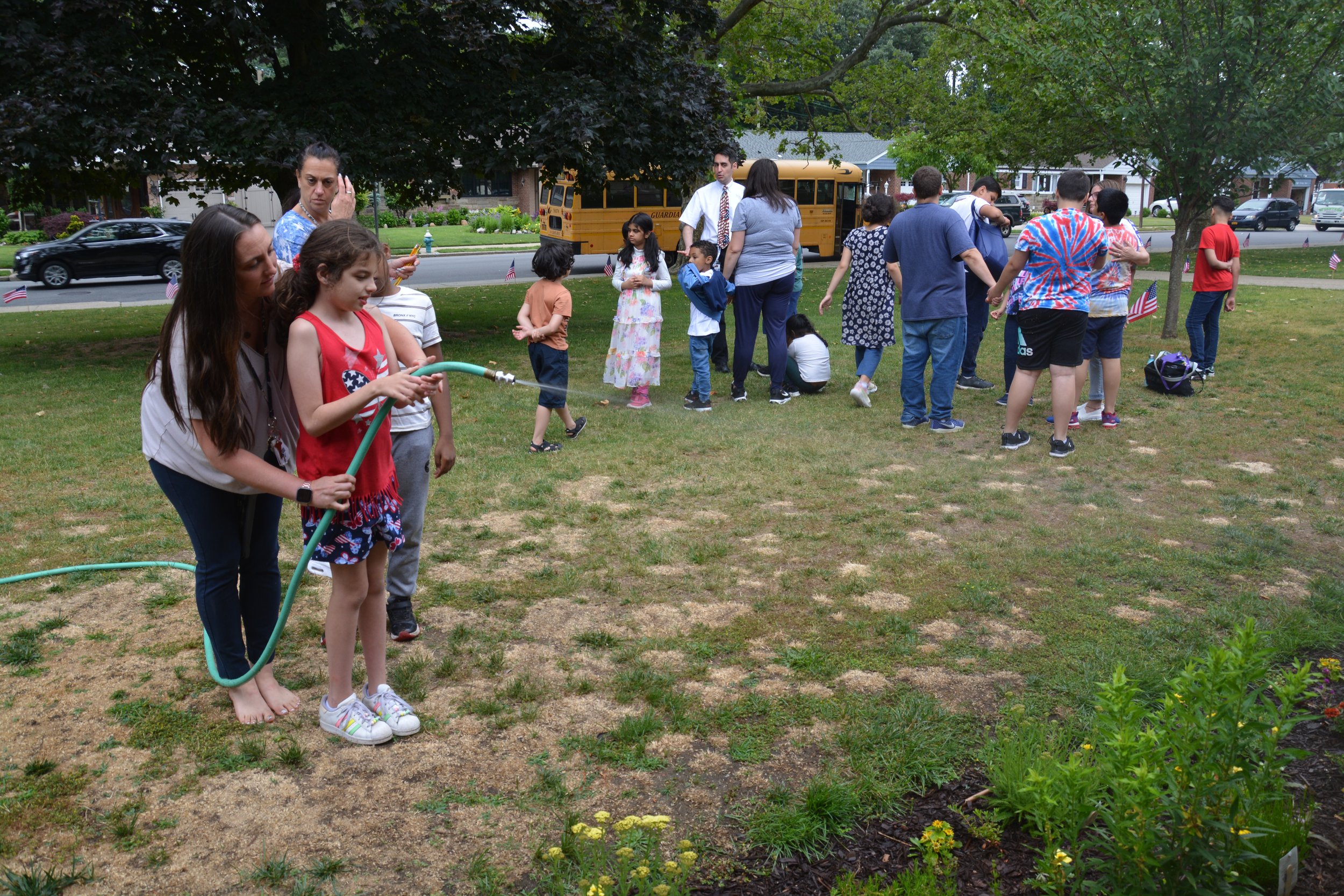
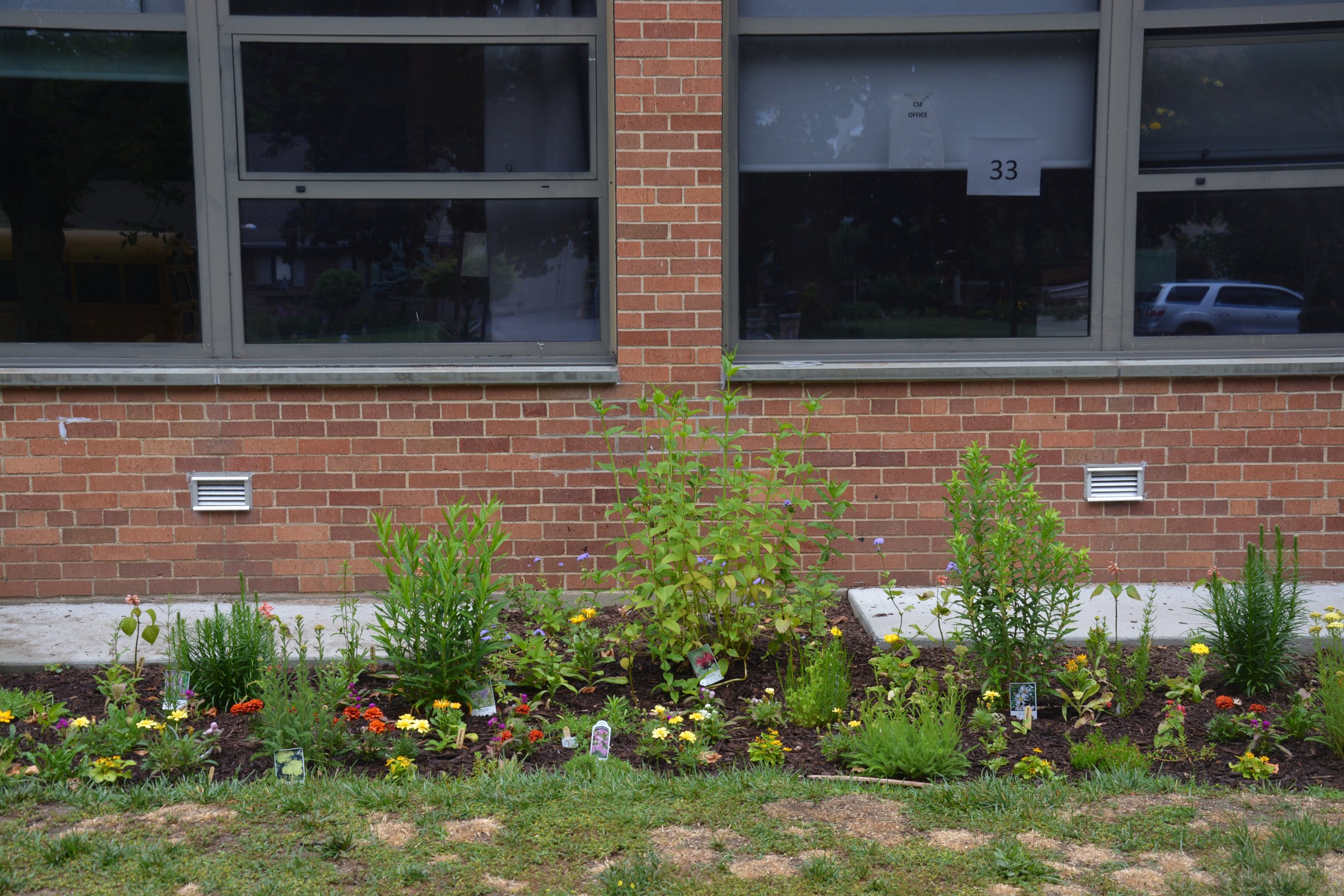
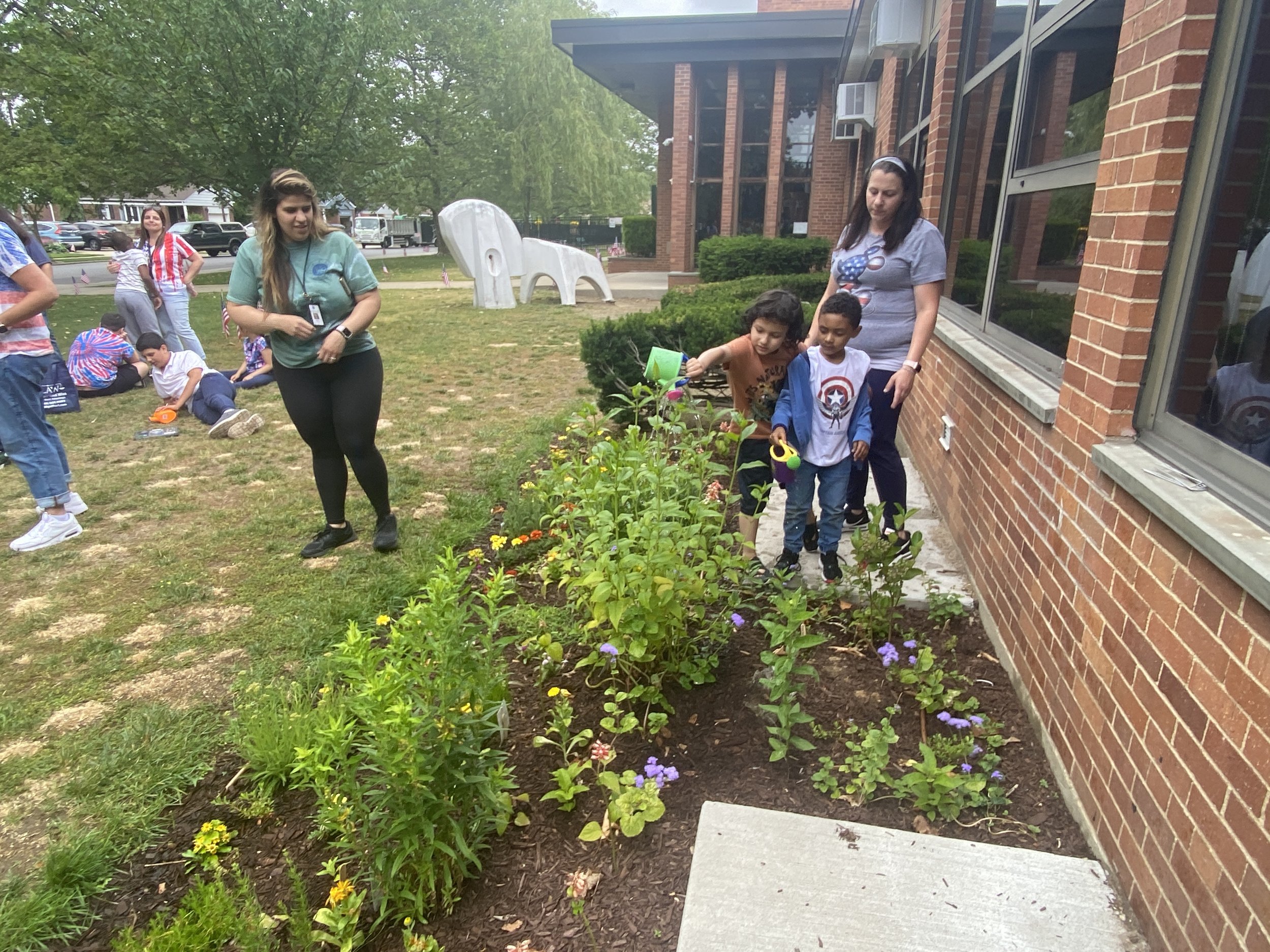
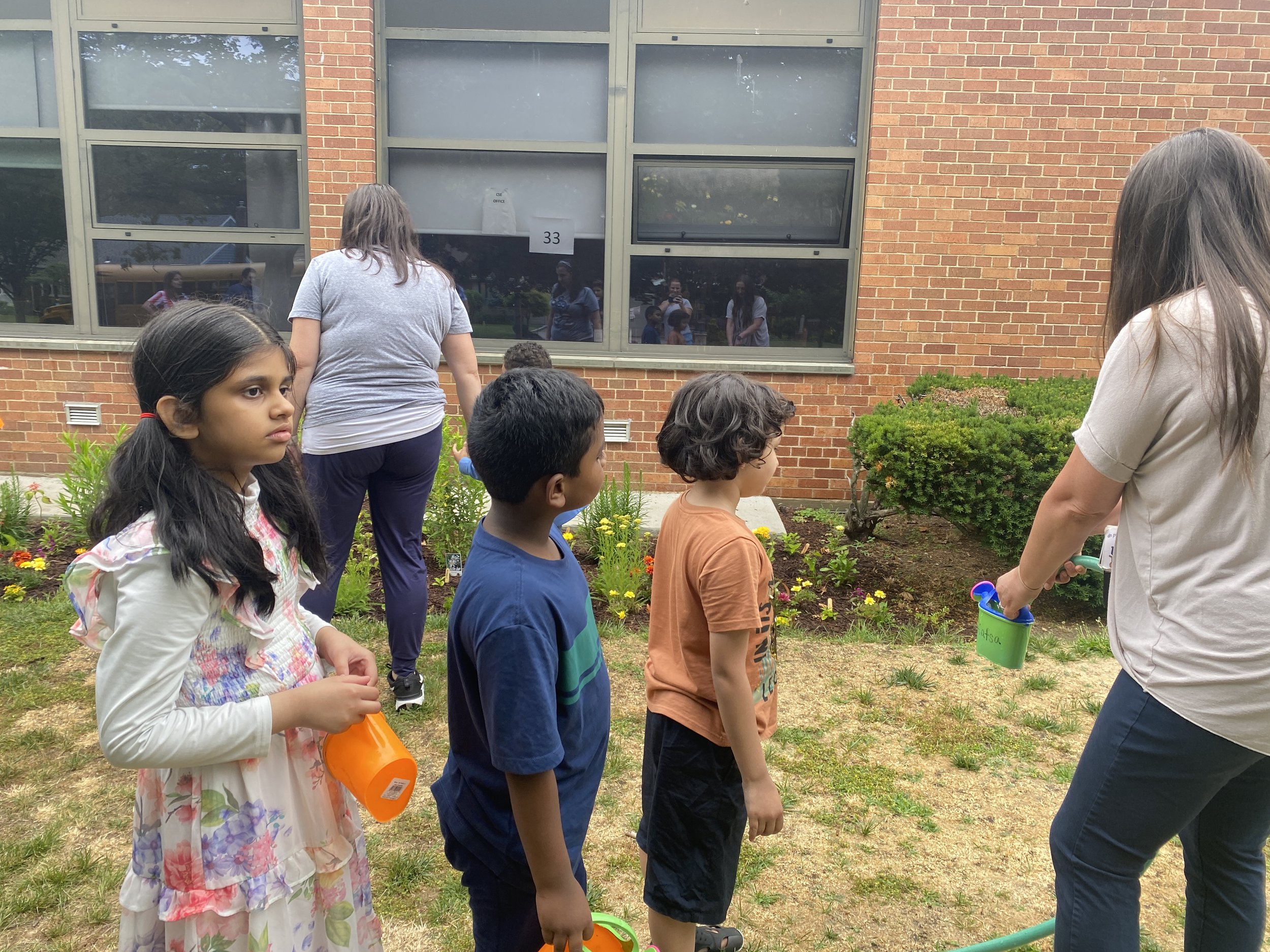
Willow road elementary school
Written by Dr. Kristina DiLauro
Our mission with the Gardens Program was to facilitate a sense of responsibility, foster a curiosity for learning, and motivate students to participate in their community. Educational goals include (1) providing all children educational opportunities in a garden and outdoors; (2) engaging children in special education with life skill activities; and (3) promoting social-emotional learning and skills through gardening.
We believe that our main success is student involvement. Elementary-aged students are excited and take pride in their participation in the garden. In this process, the students have learned what plants need in order to grow, what insects are good and bad for the garden, and the life cycle of plants. They truly enjoy watering the flowers and tending to the garden. In addition to the irrigation system and hose system, Ms. Jeanette Walters purchased watering cans for all her students to help water the plants.
With the help of club moderators - Dr. Kristina DiLauro, Speech-Language Pathologist, and Ms. Jamey Schechter, Social Worker, the Willow Road Best Buddies Club, which features general education students in sixth grade and students in self-contained classes, worked on decorating rocks to outline the garden space. Additionally, Ms. Walters’ class painted rocks to help outline the garden.
We had a few students comment on the bees in the garden. Due to our learning from ReWild, we know that Bees are an essential part of the ecosystem where plants and animals work together. We have a further understanding that animals and insects have an essential impact on the ecosystem and nature.

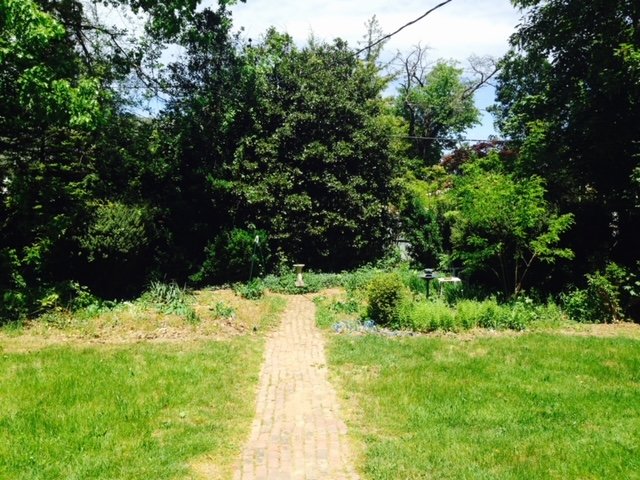
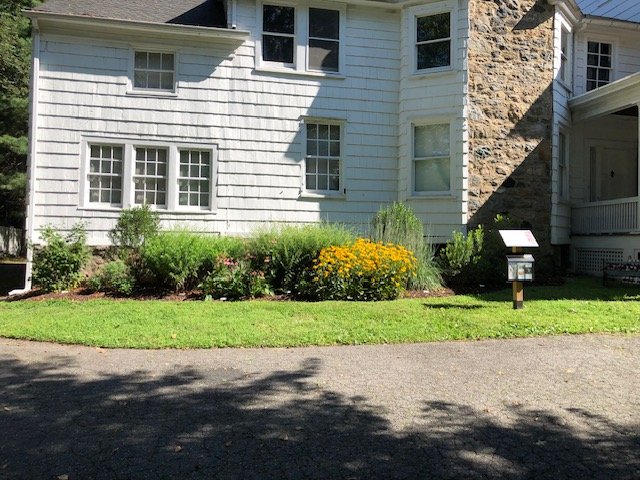
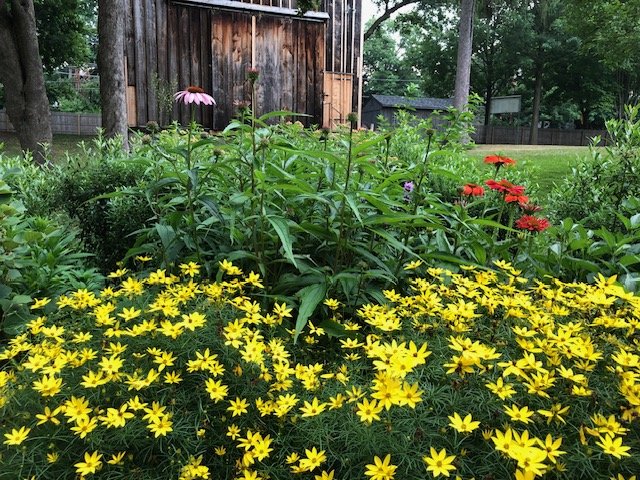
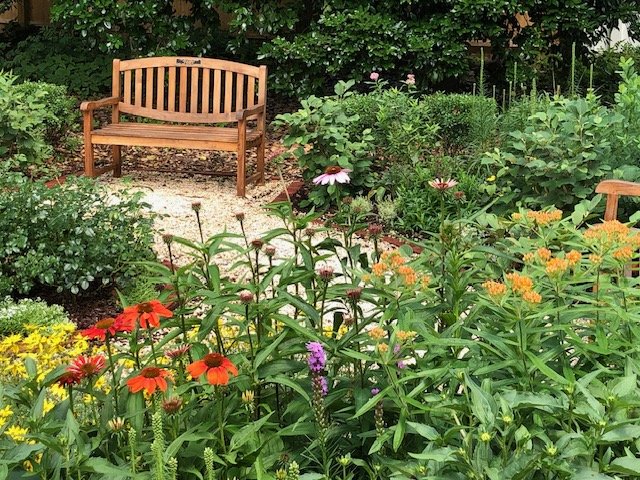
Sands-willets house
Located at The Cow Neck Peninsula Historical Society
Written by Betty Mintz
The Sands-Willets house falls under the umbrella of The Cow Neck Peninsula Historical Society. The historical society is a supporter of ReWild Long Island.
The Sands-Willets house ca. 1735 has been undergoing restoration and renovation of house and grounds over the past few years. We have been removing invasive plants and re-imagining spaces with native plants using sustainable garden practices. We currently have a bird friendly garden in association with North Shore Audubon, a shade garden and a 4 square colonial garden.
The historical society’s mission is to educate the community on local history and to understand a sense of place, how we interact with the house, grounds, and our peninsula, how we learn about ecosystems and species and its relationship to the site for a more sustainable future.
